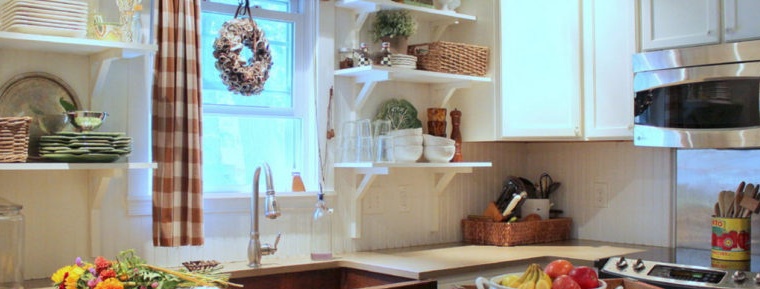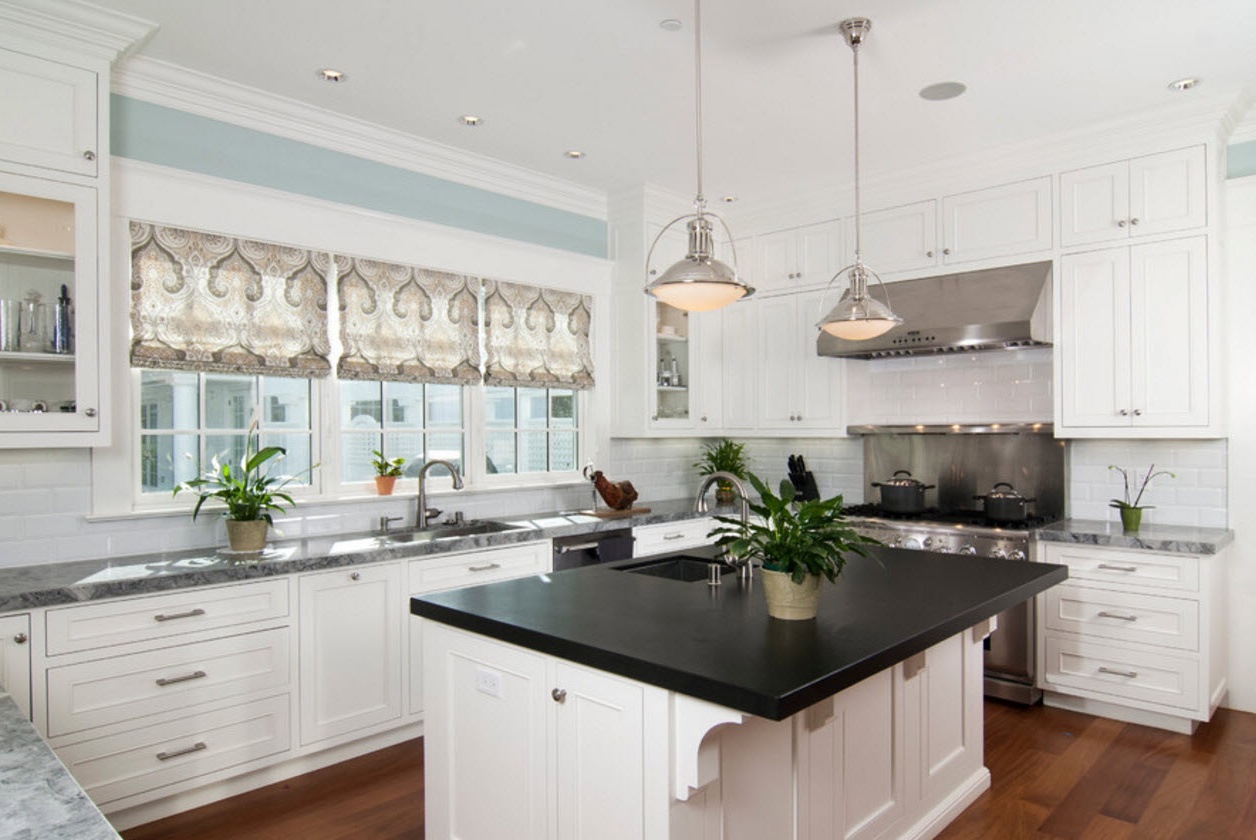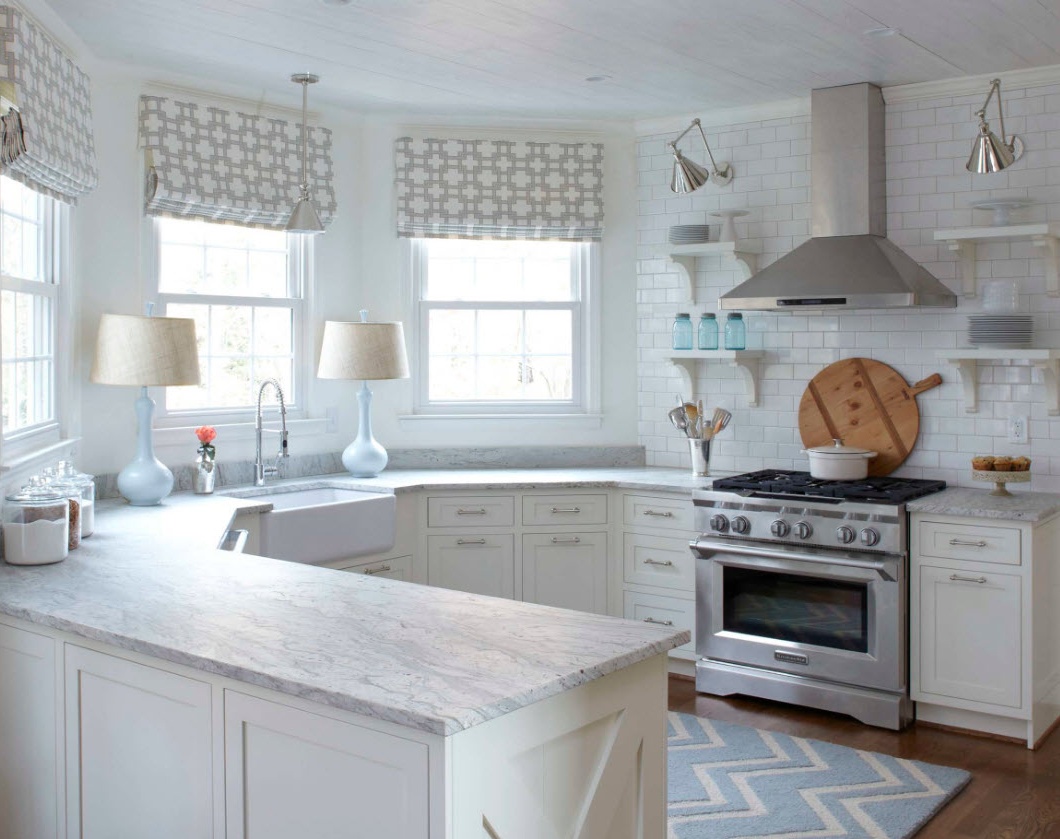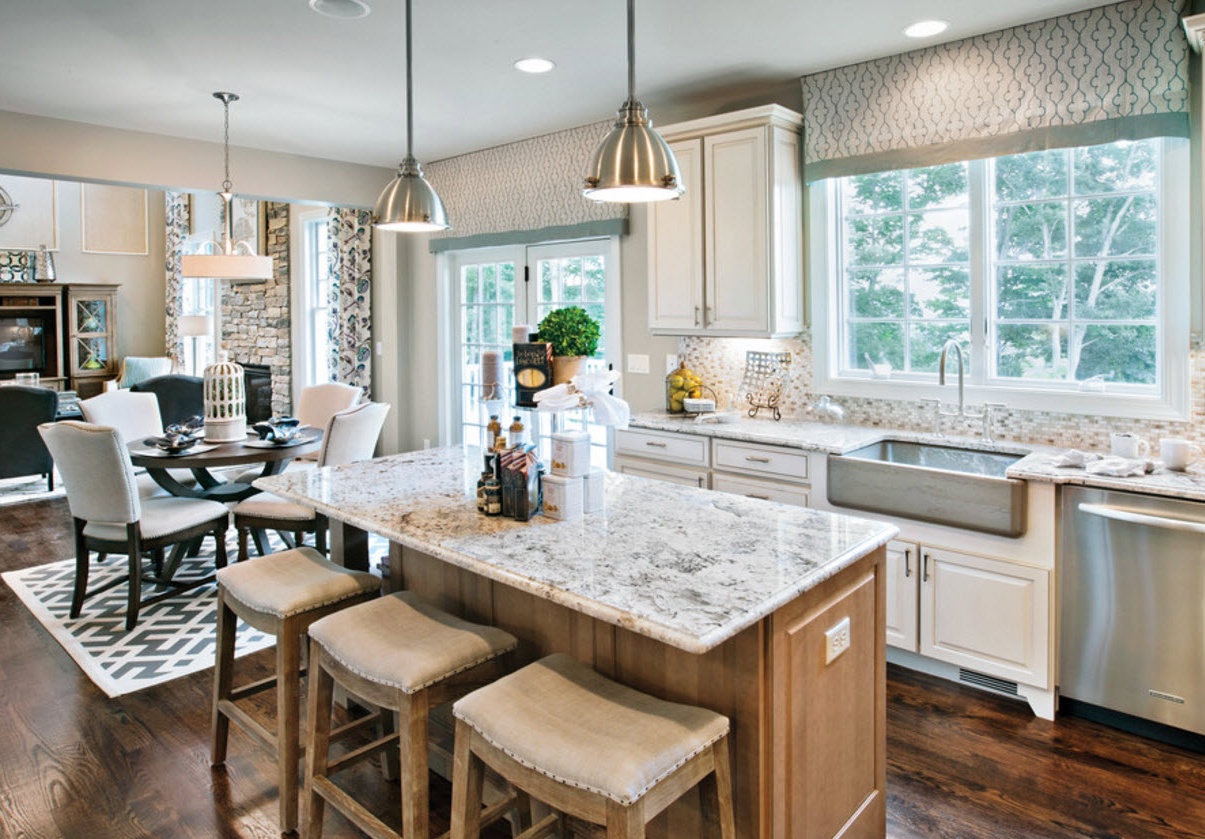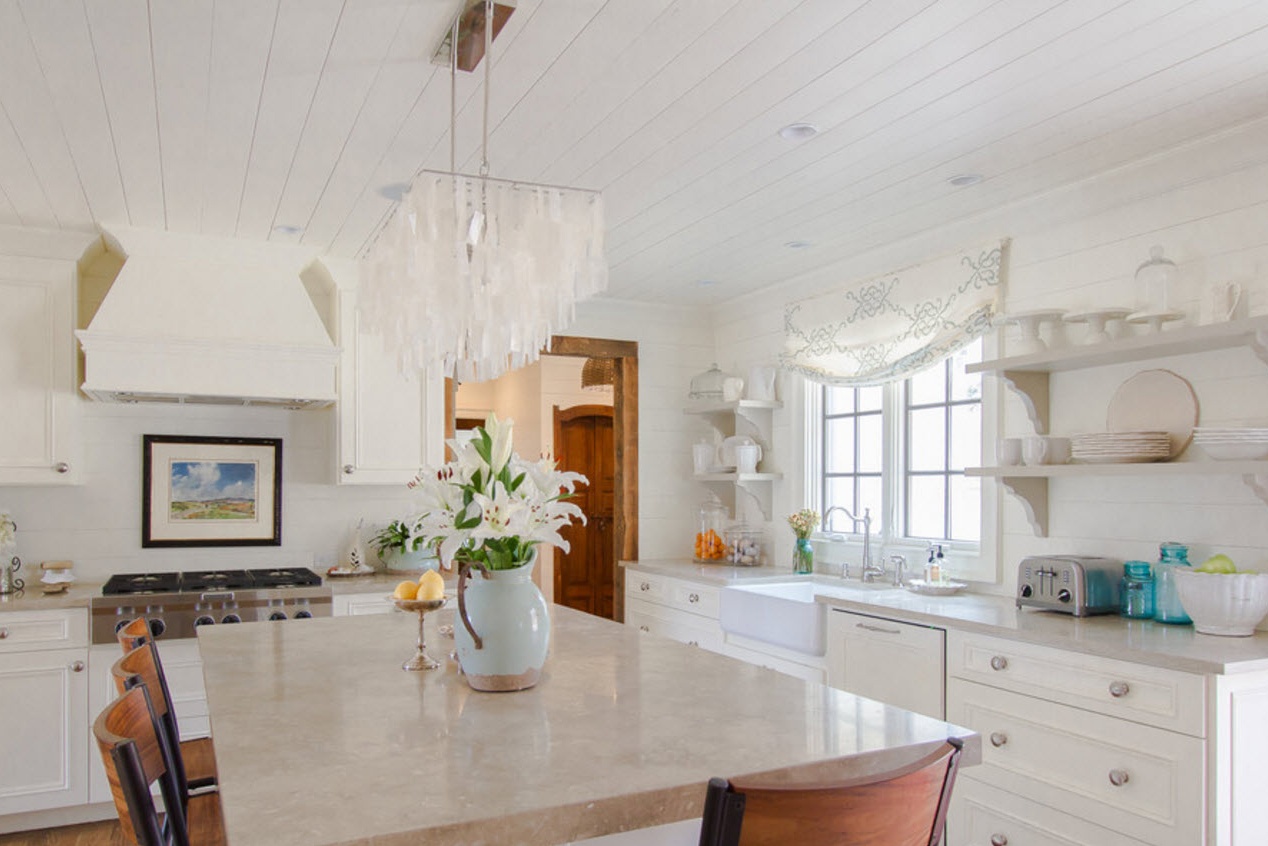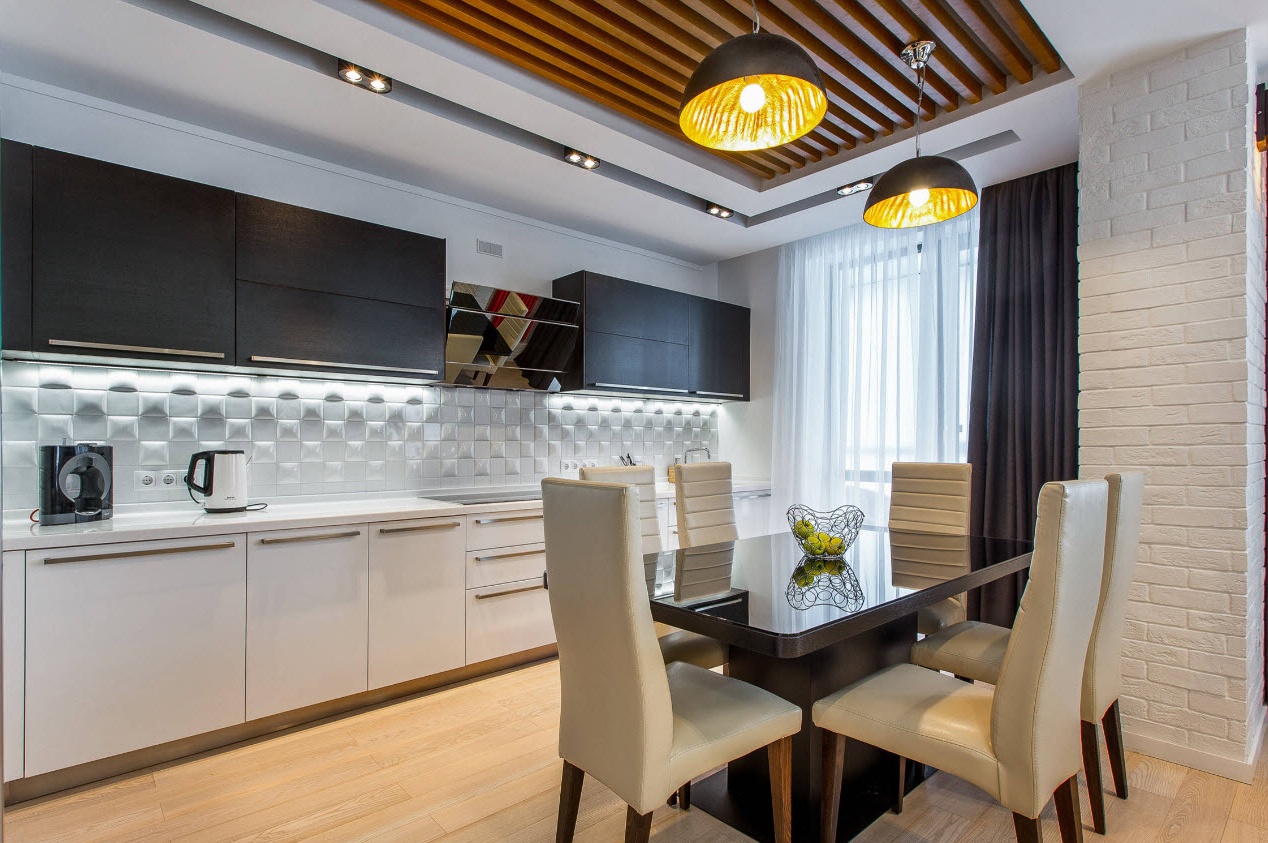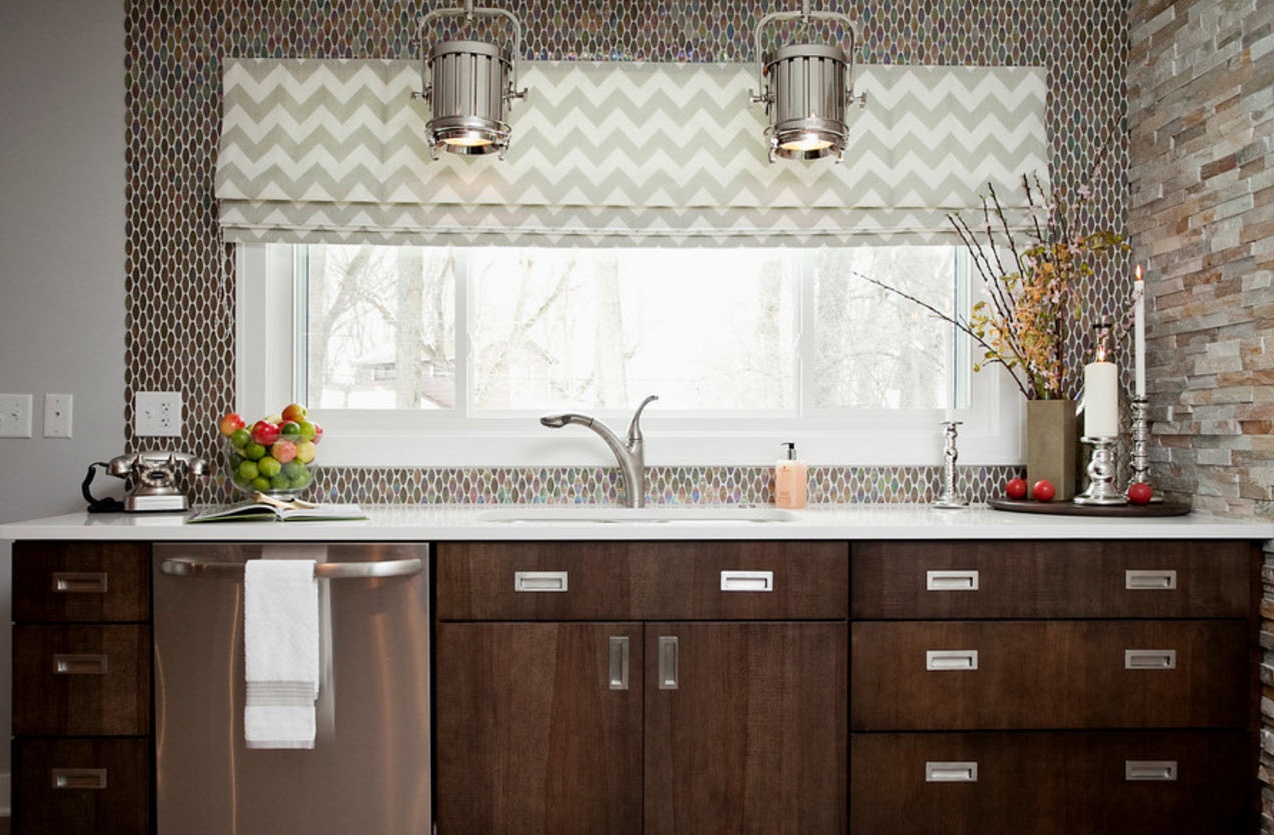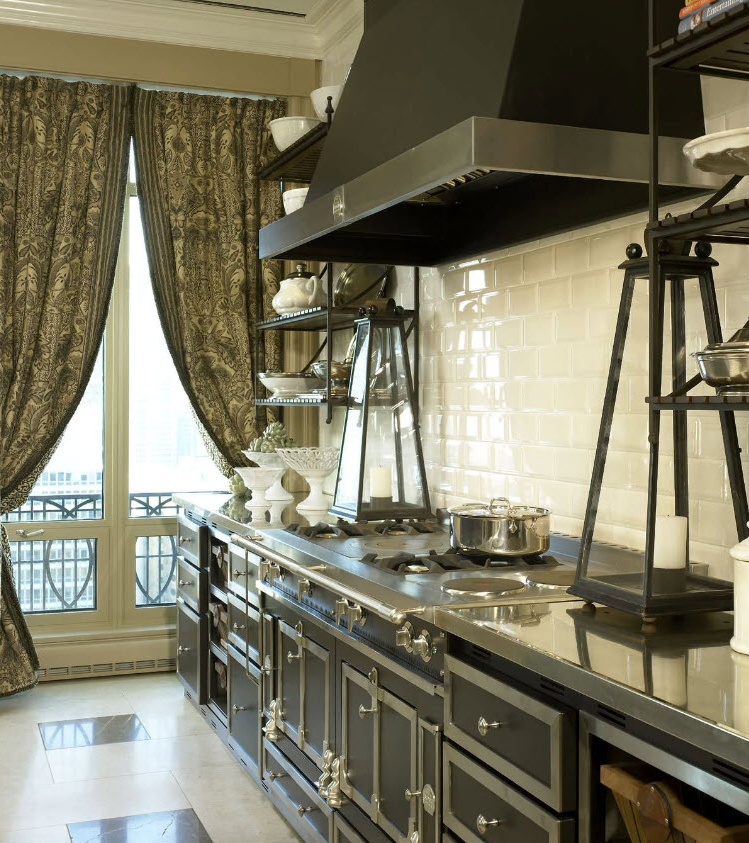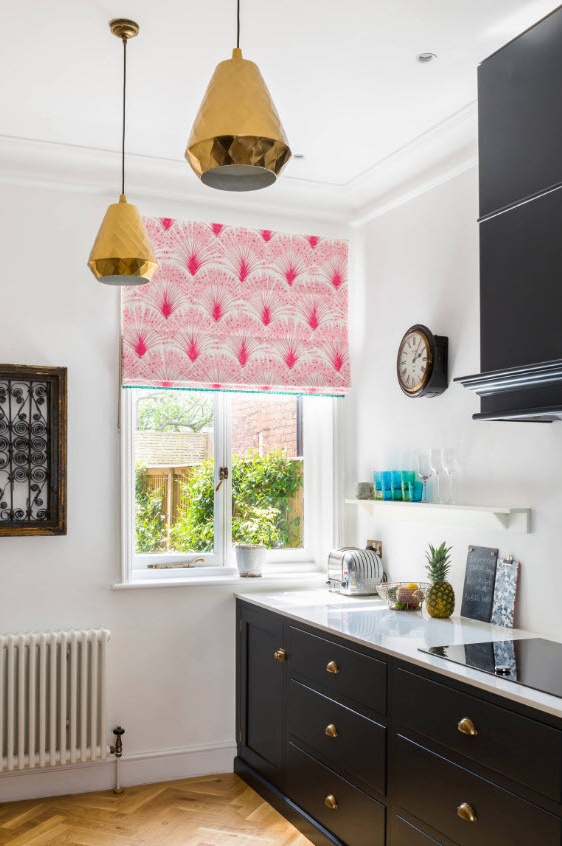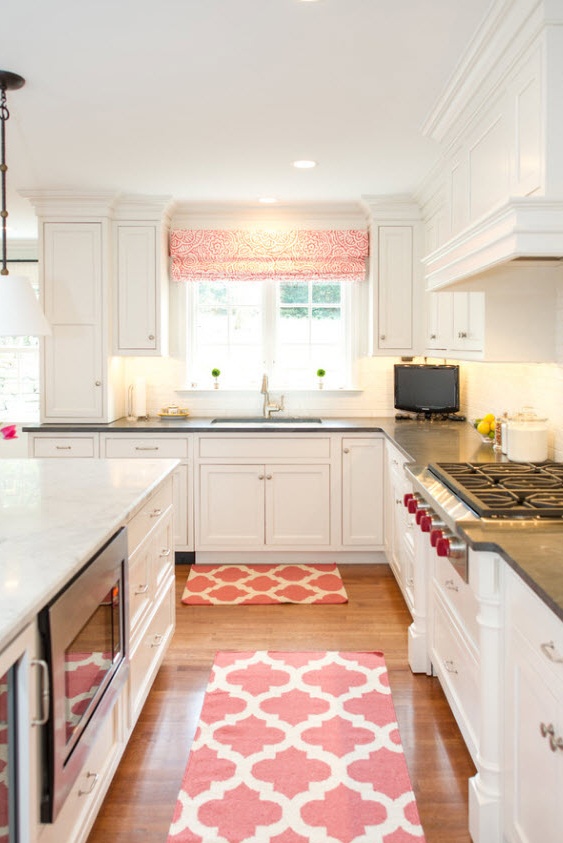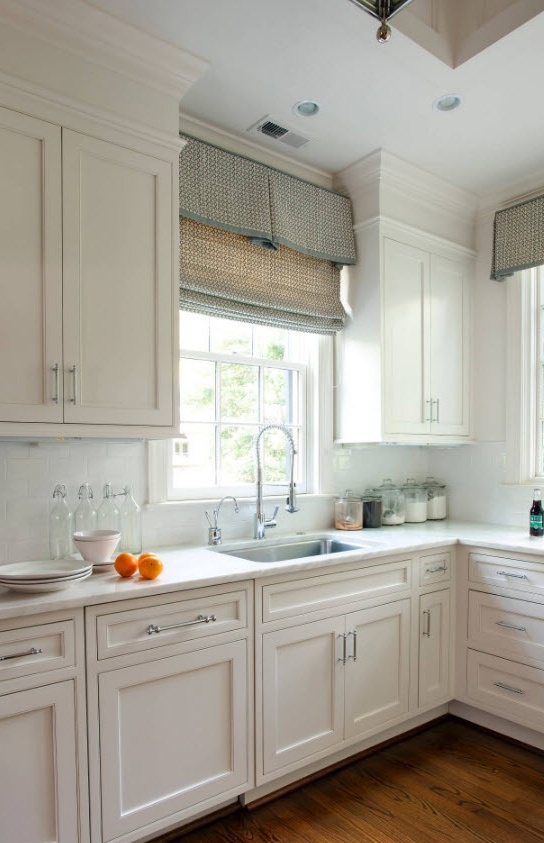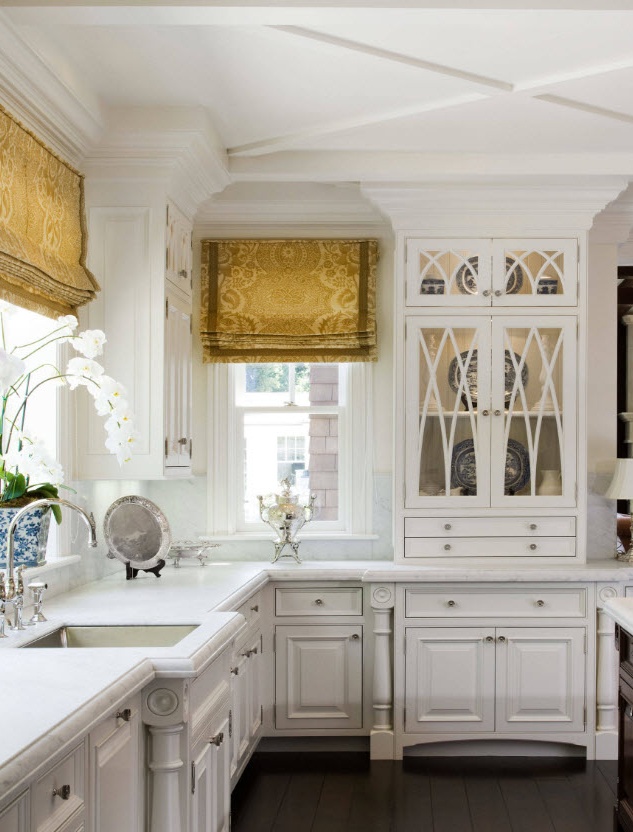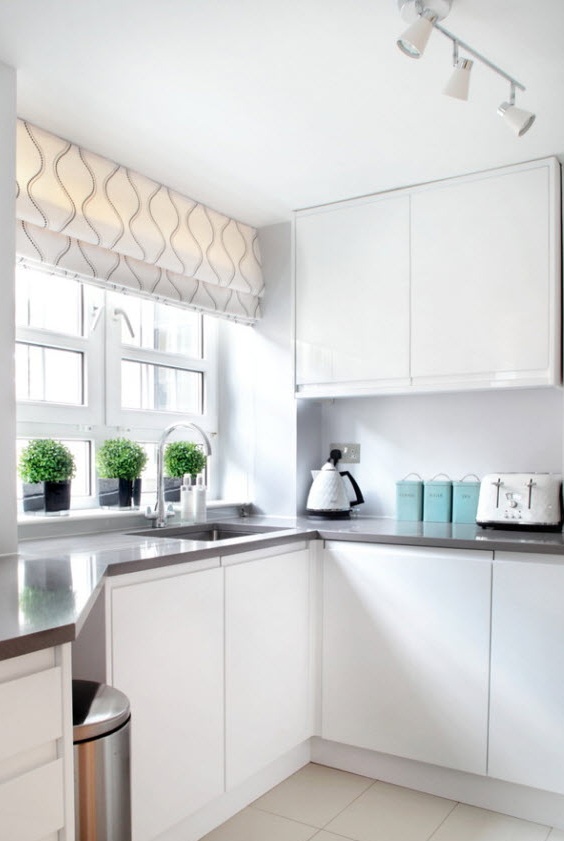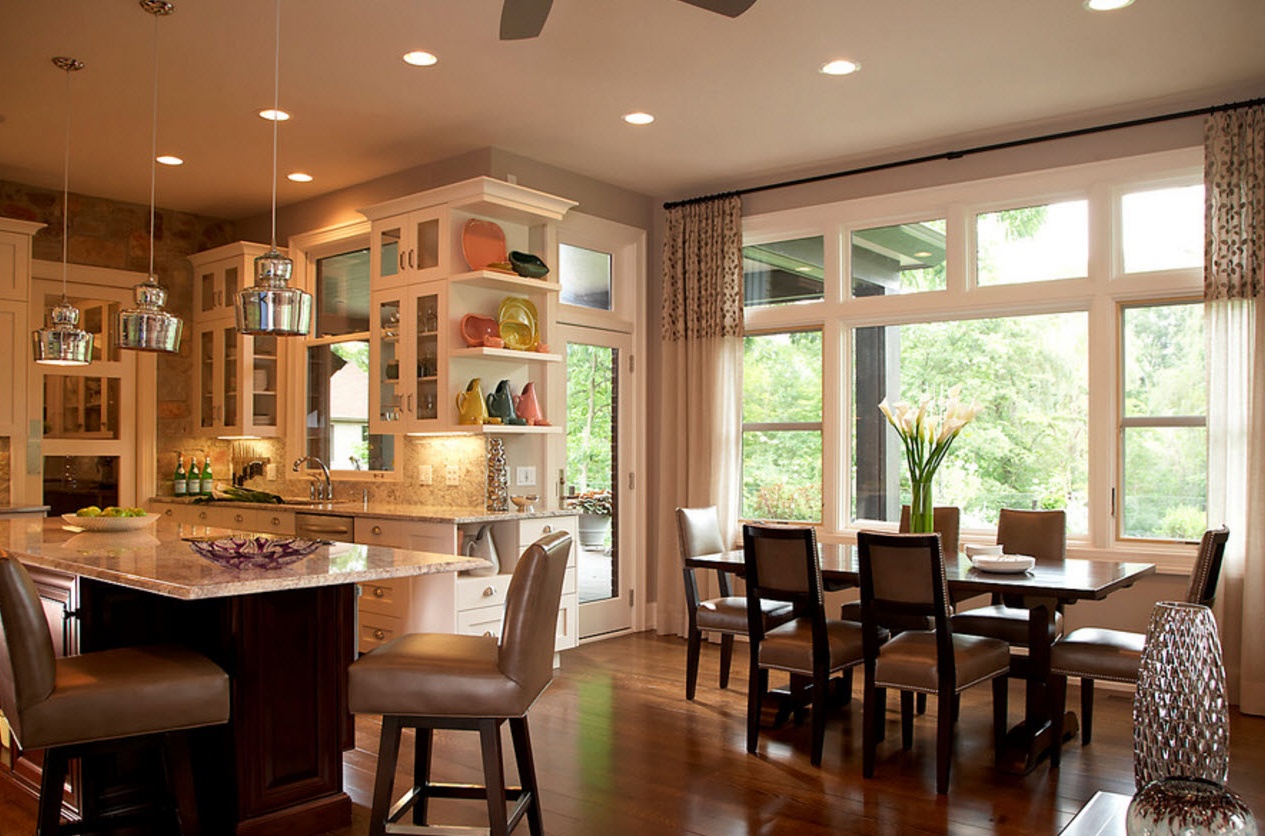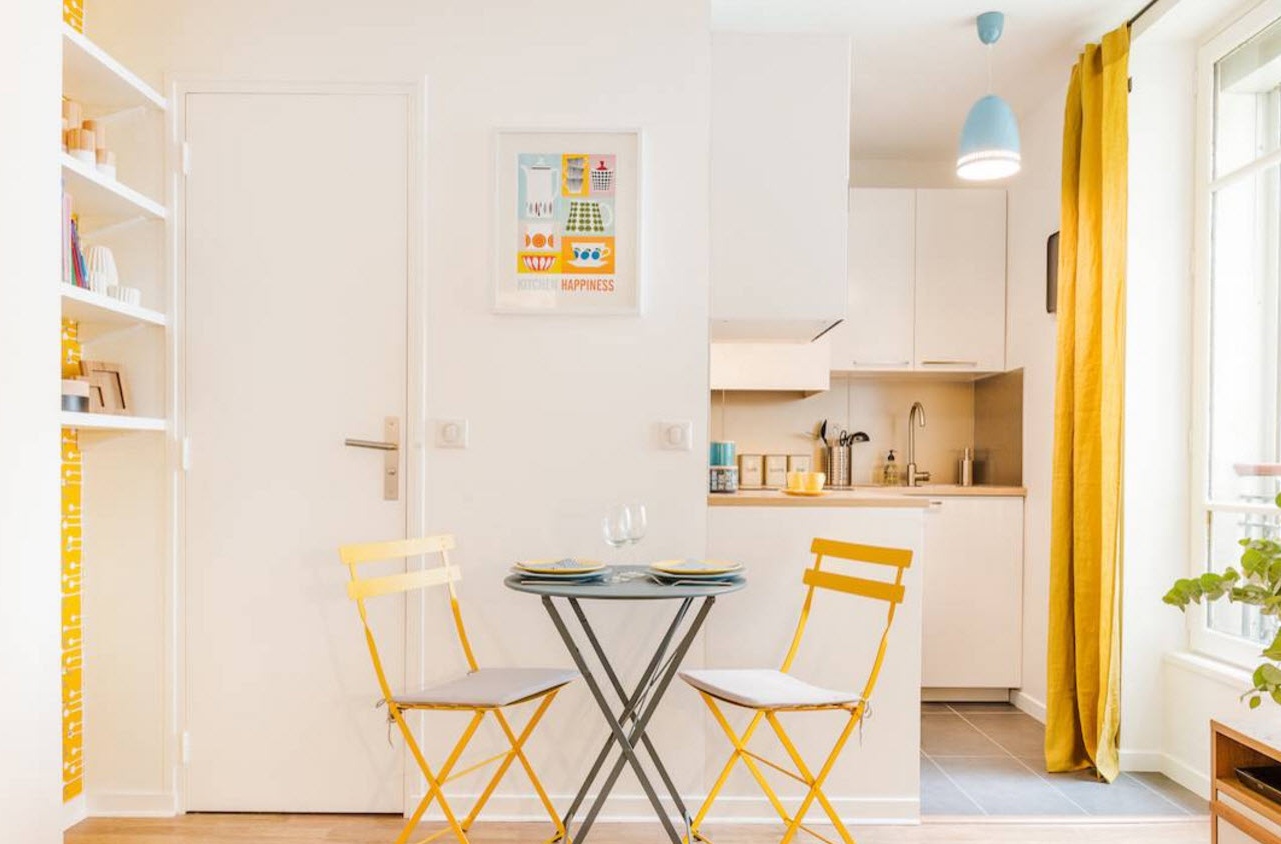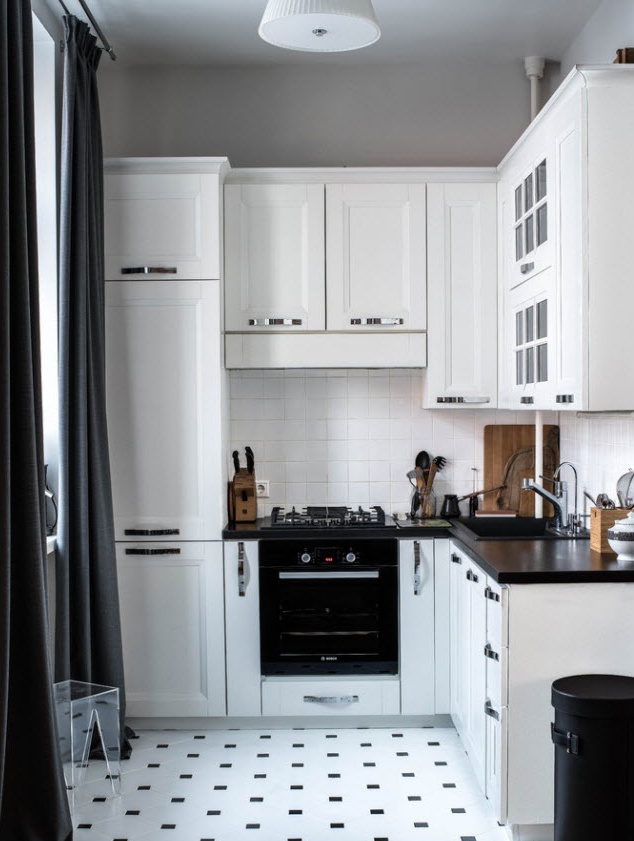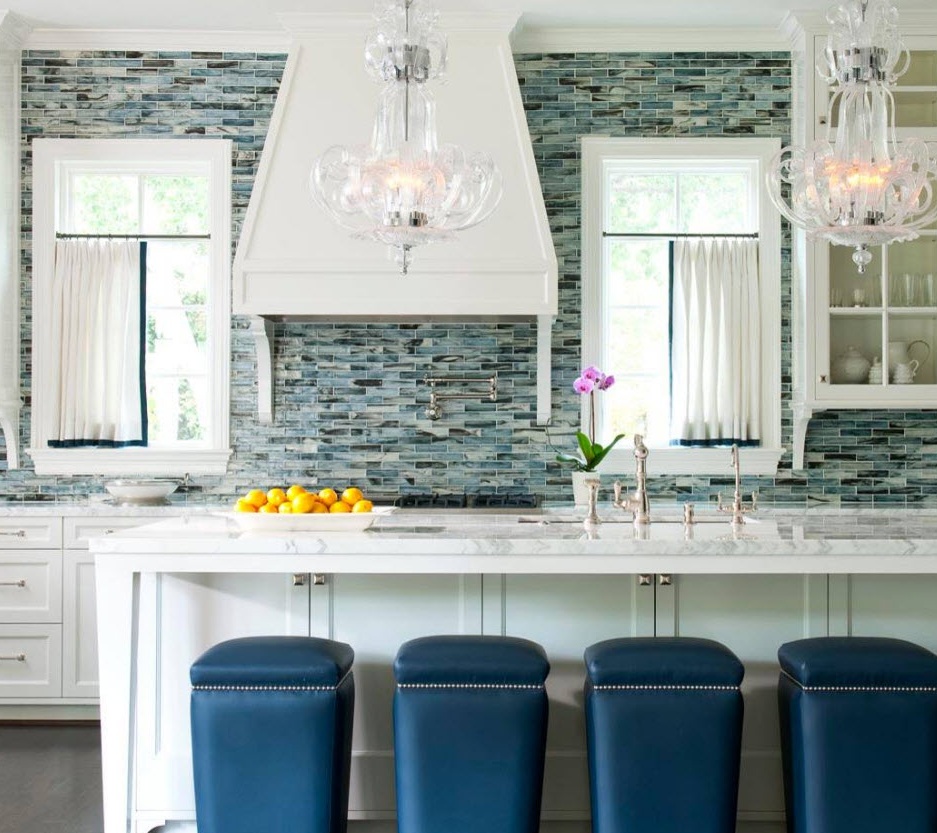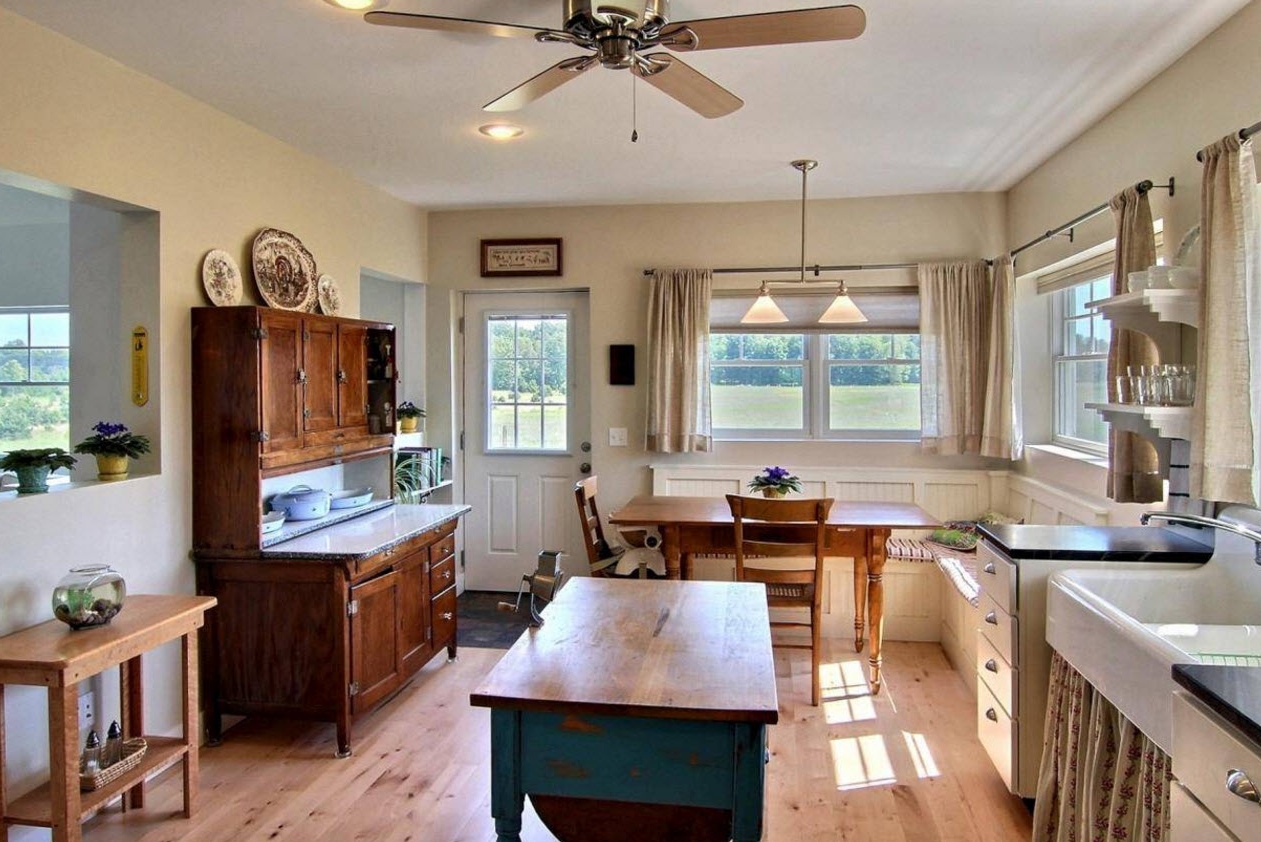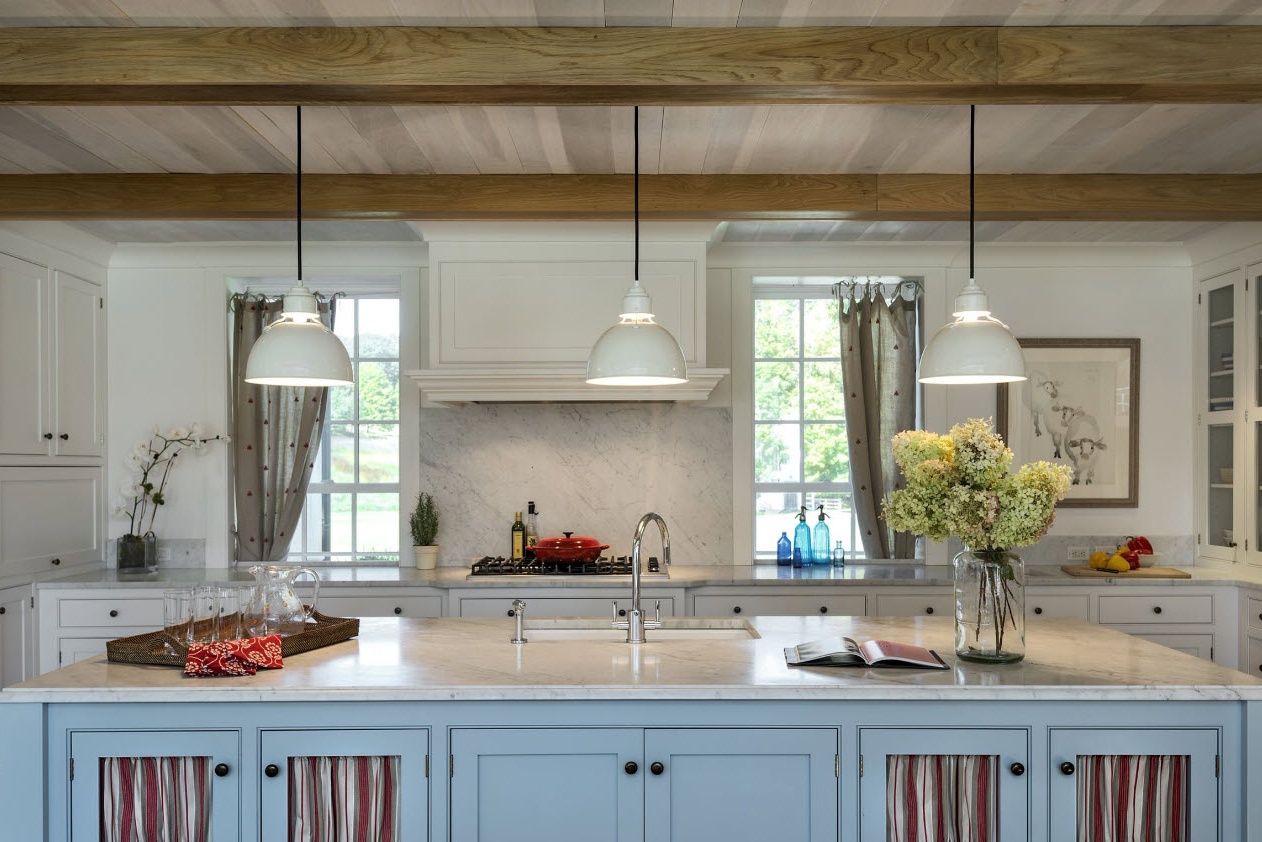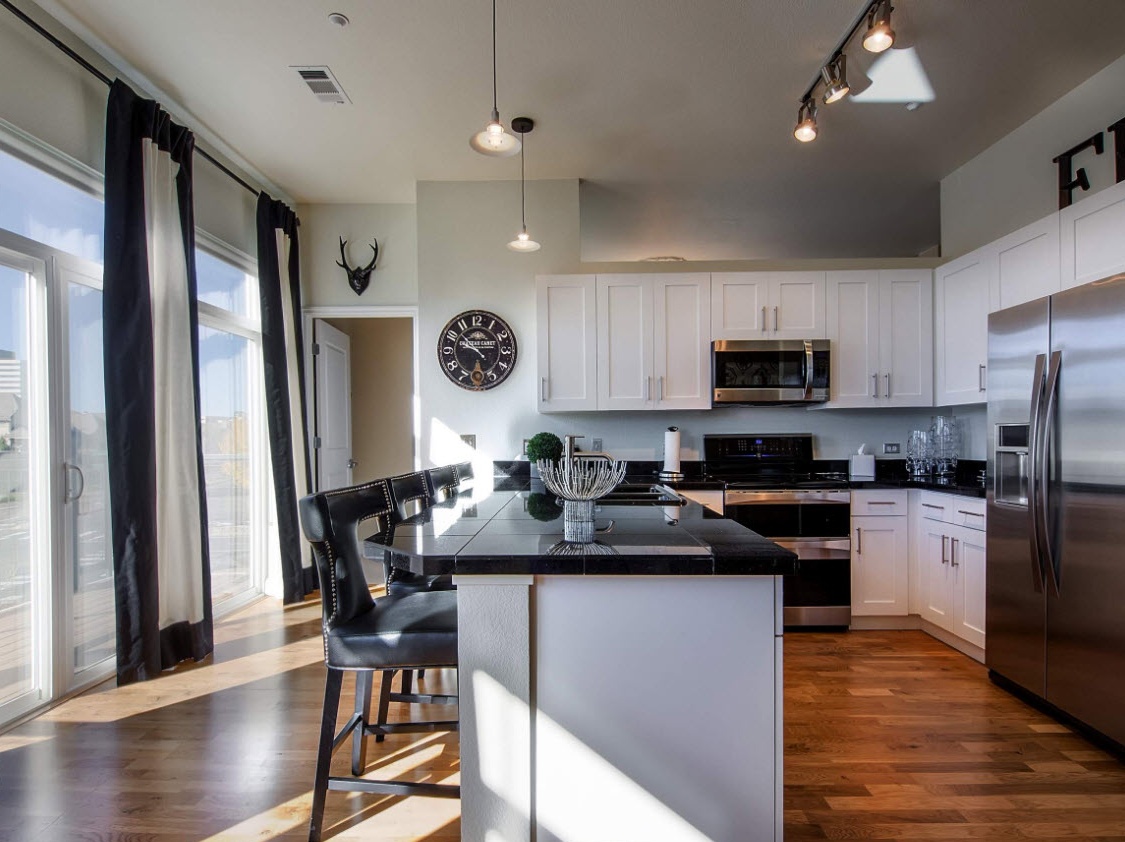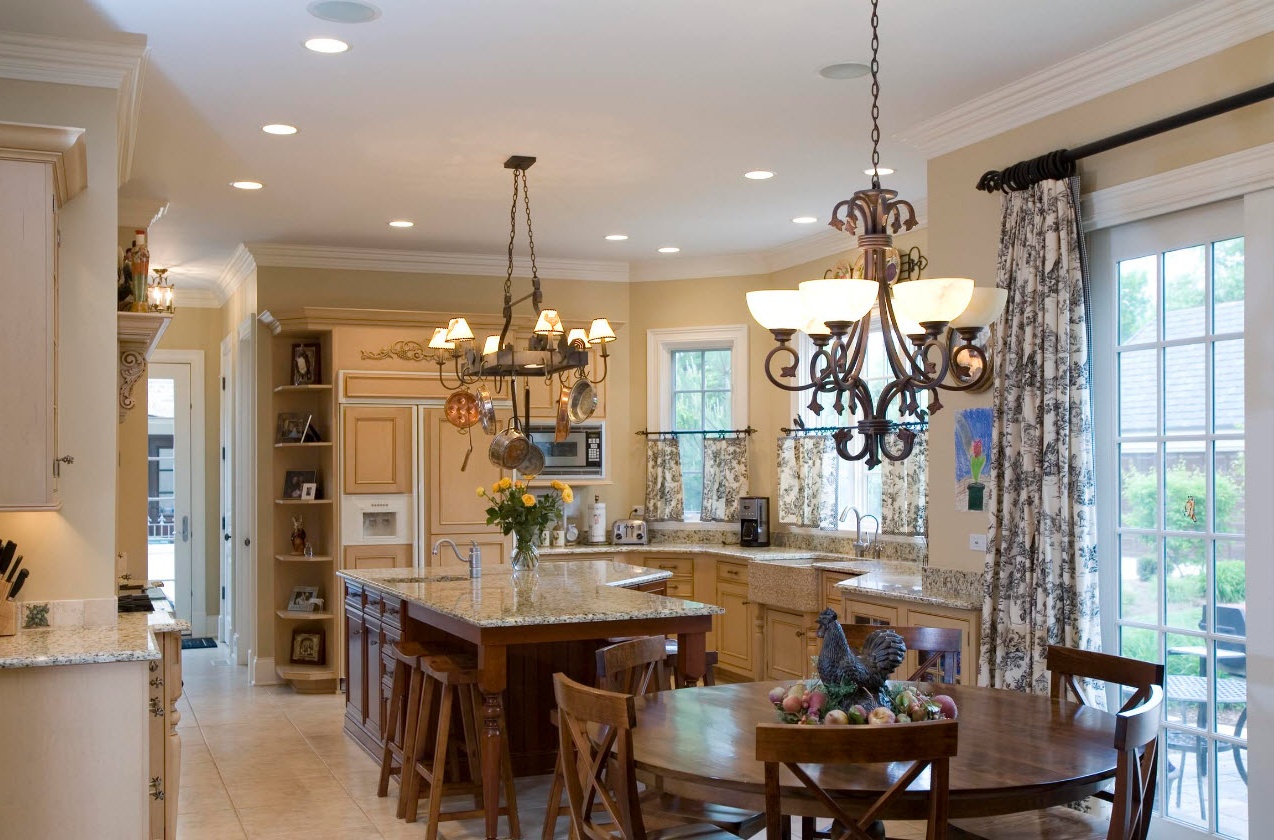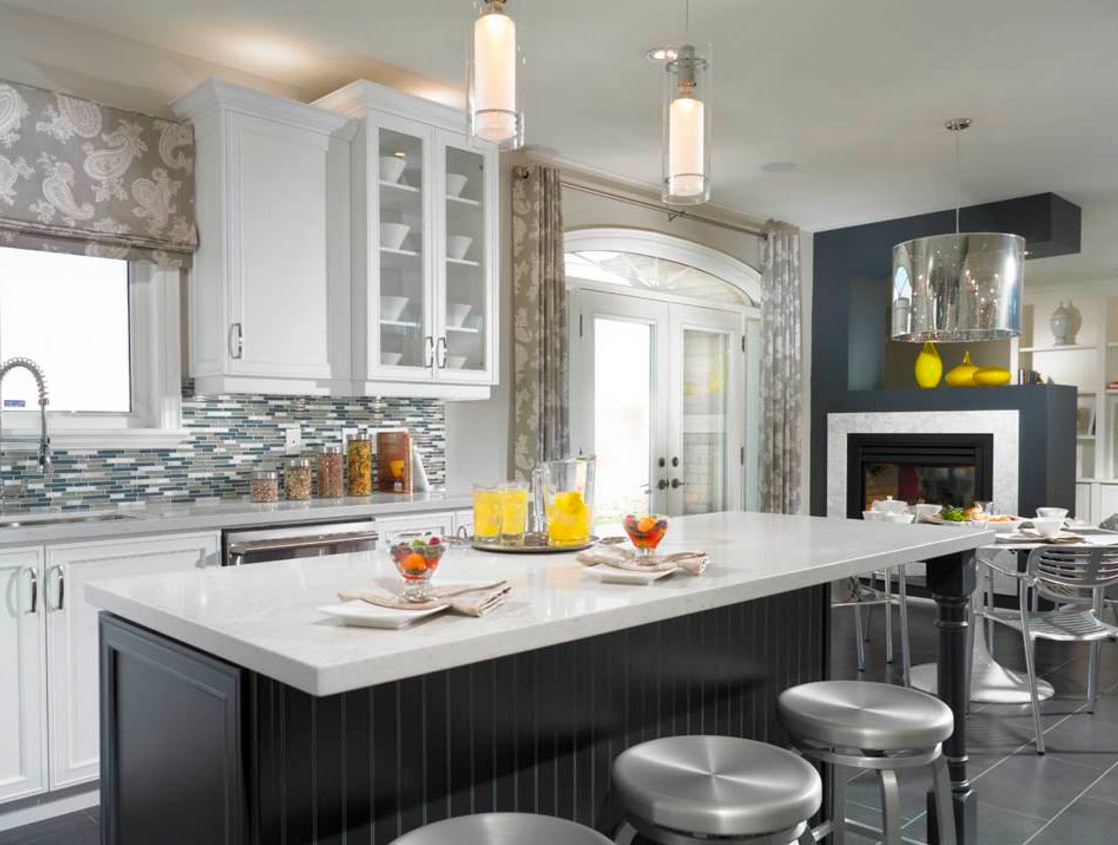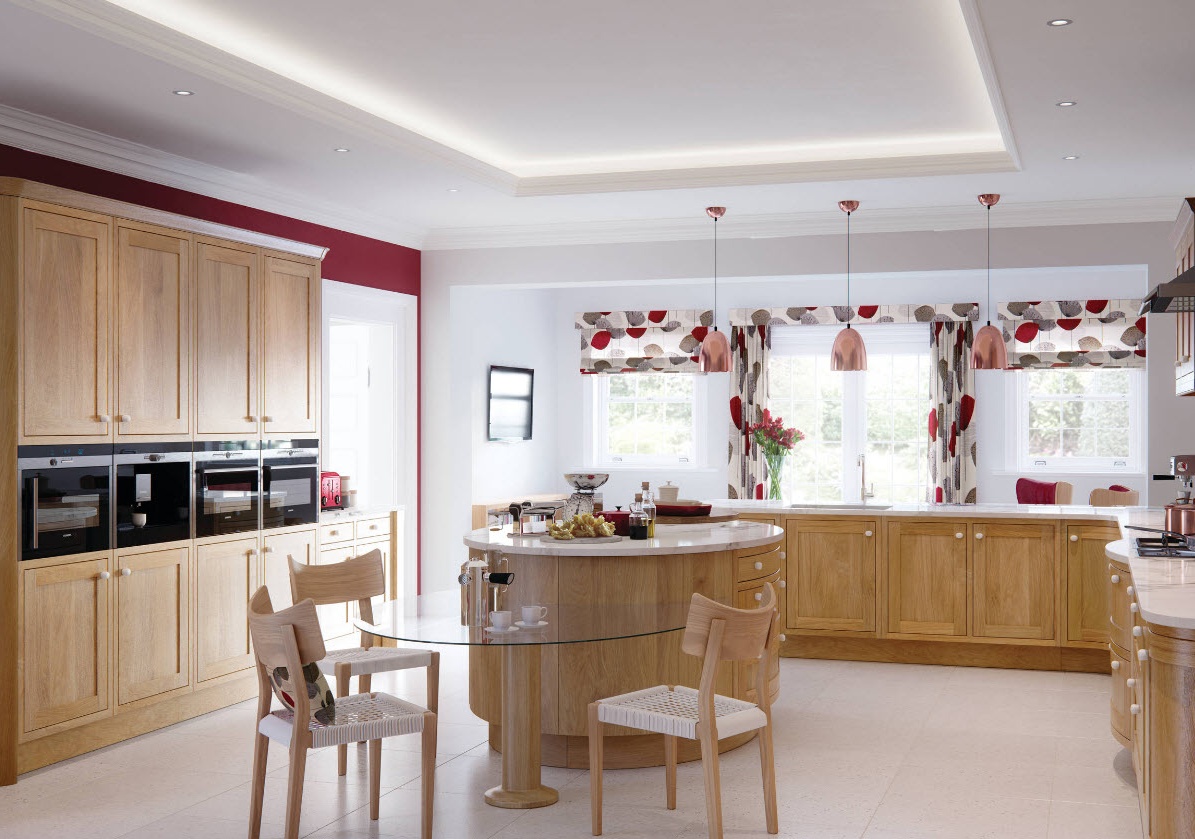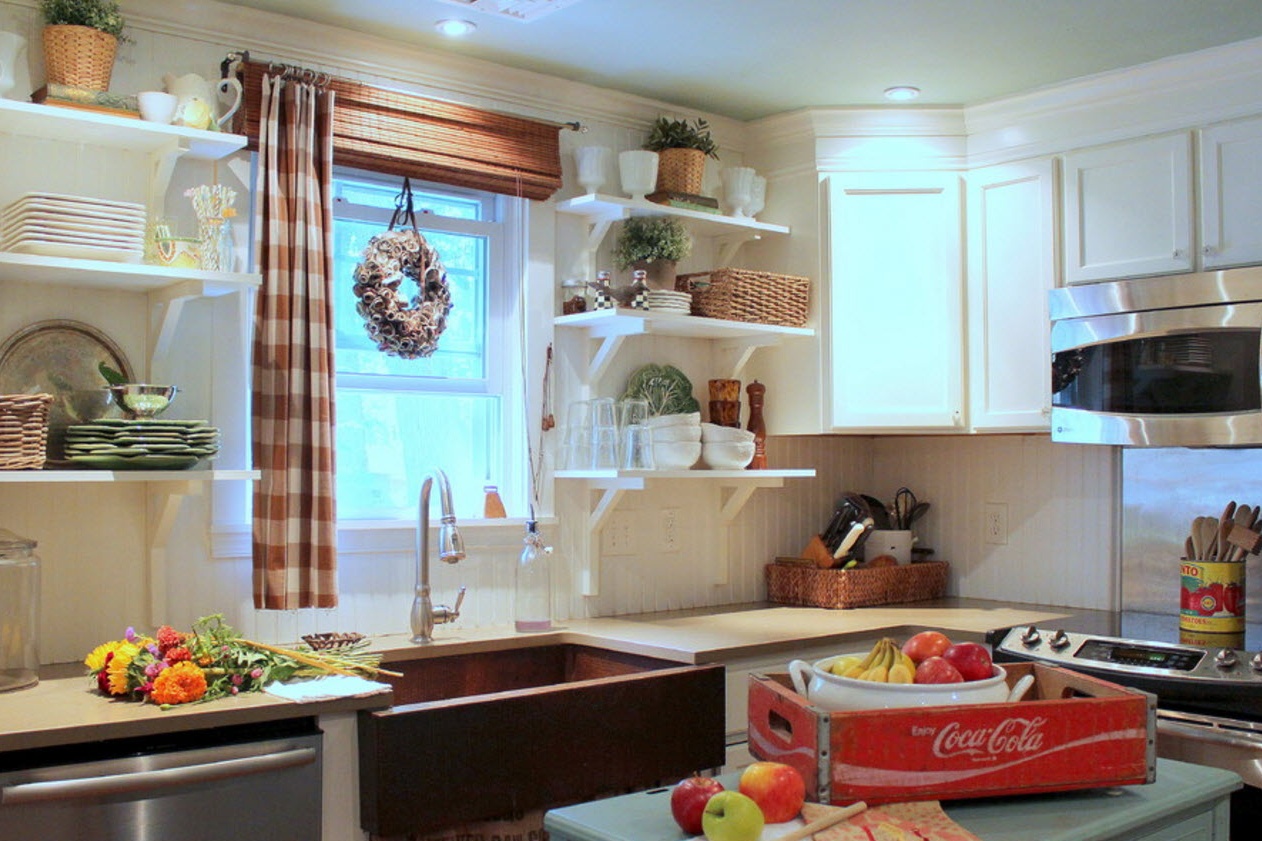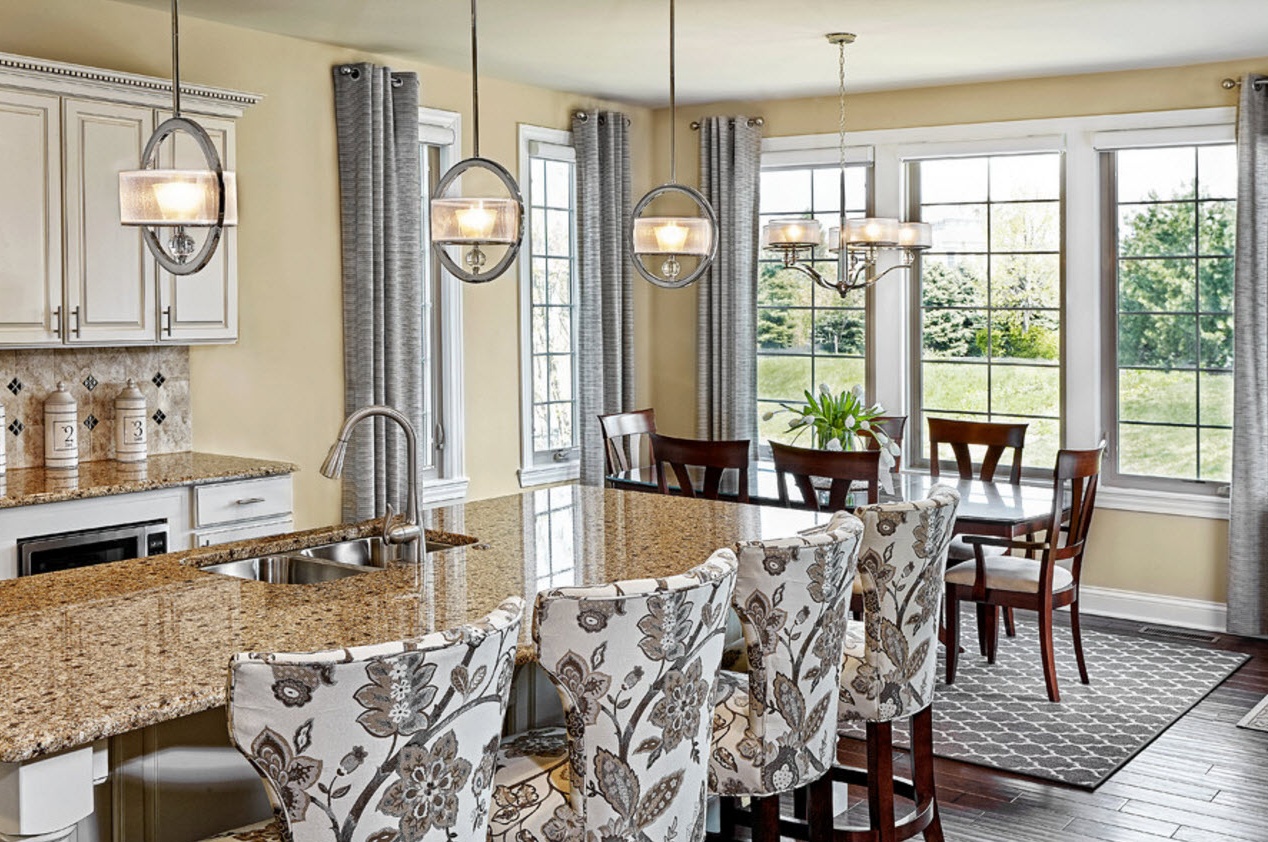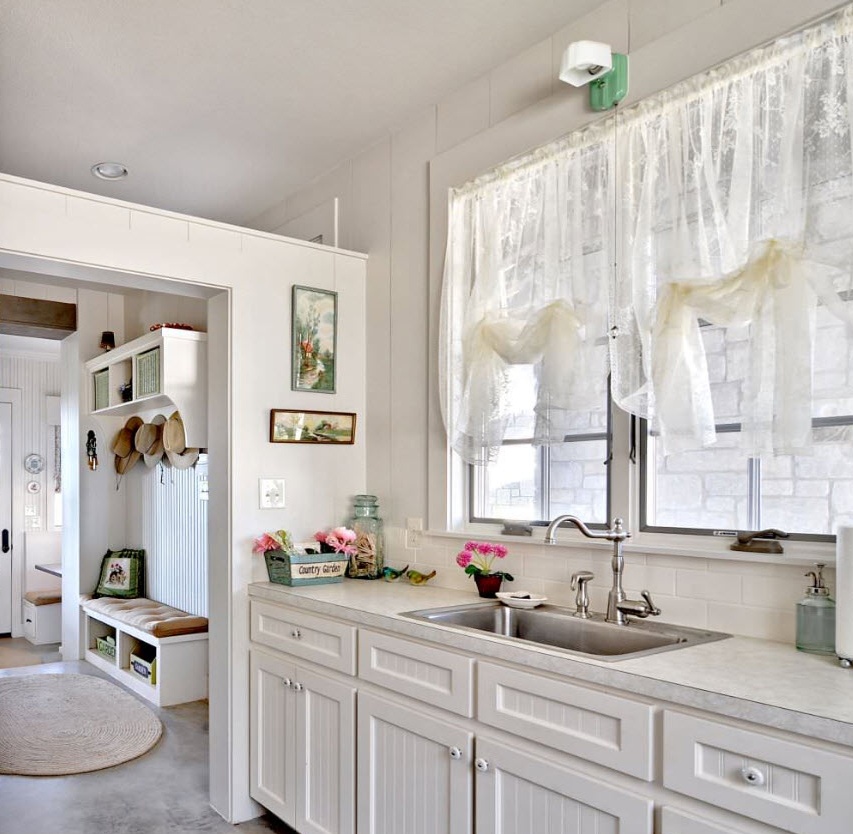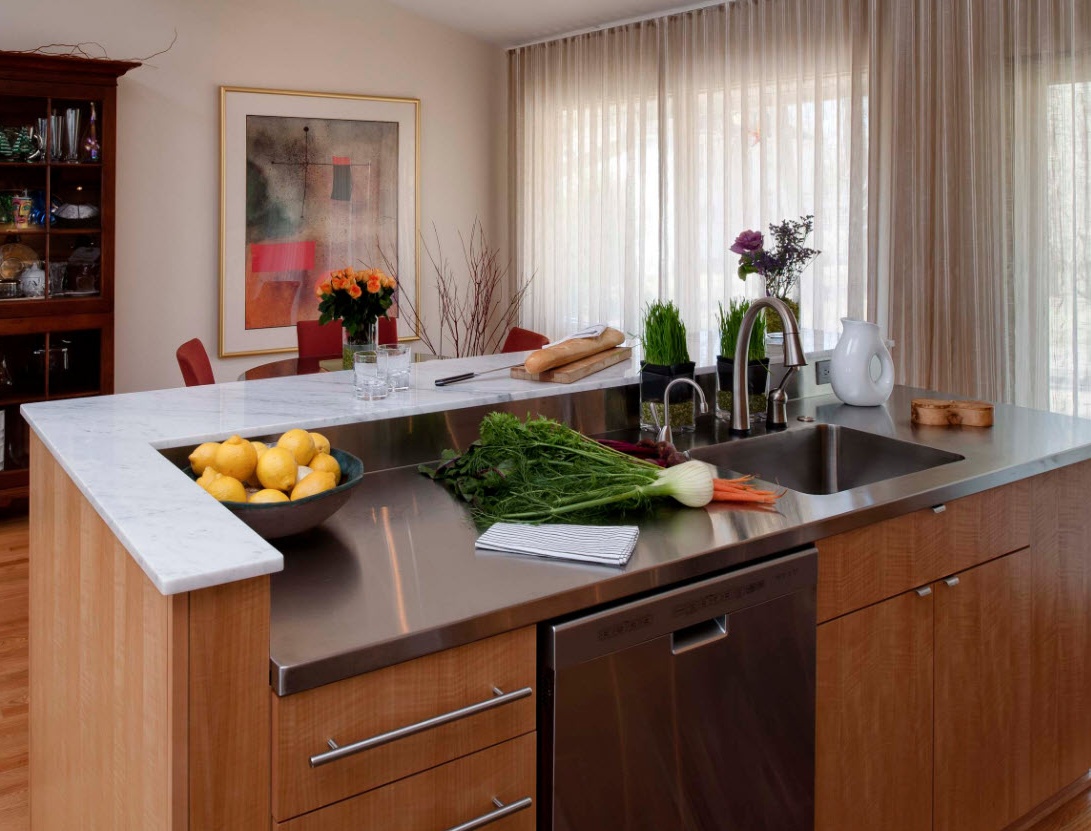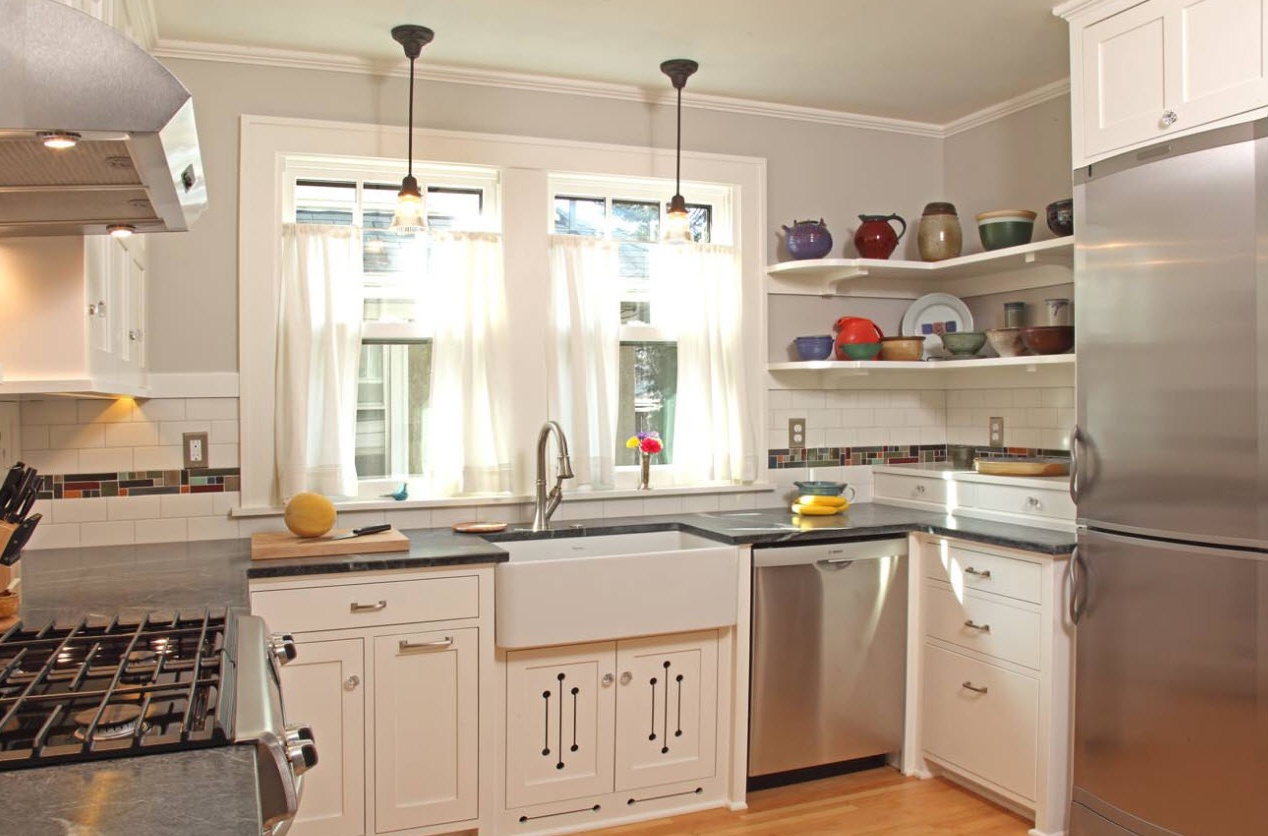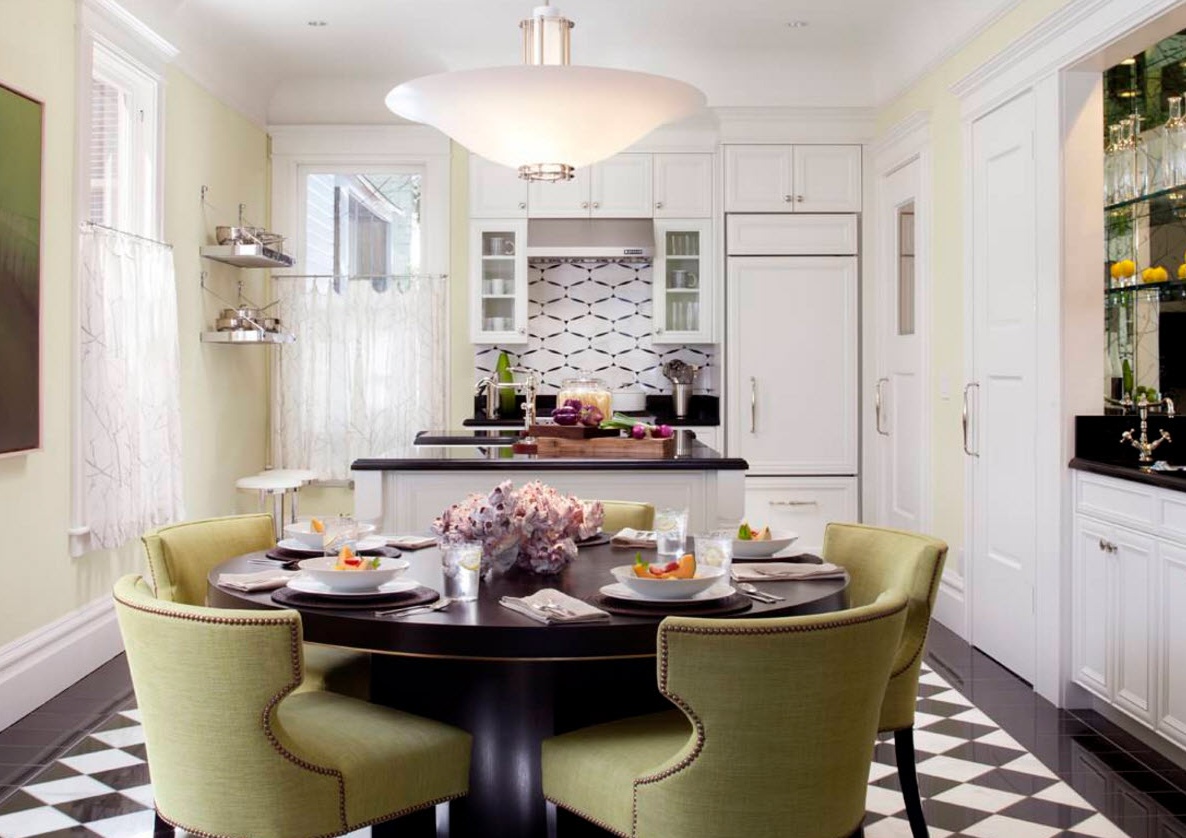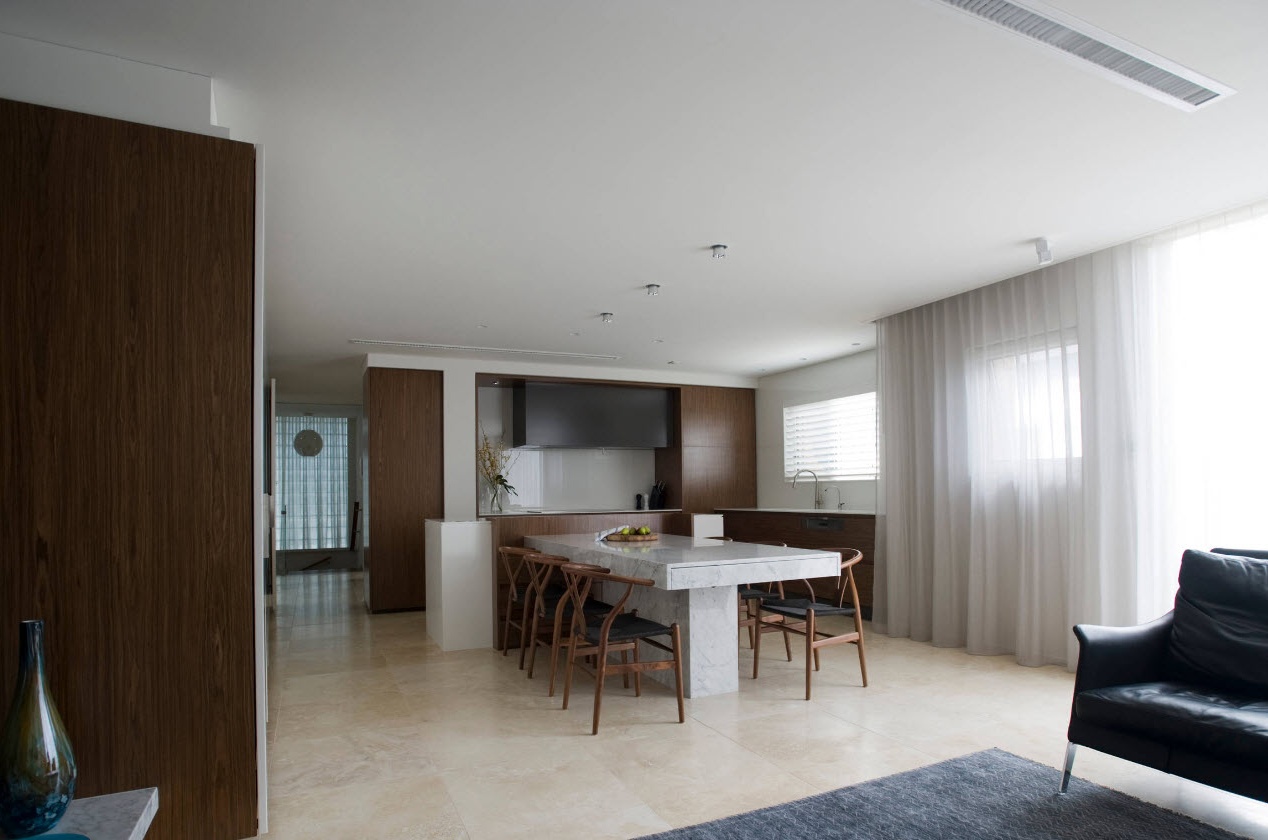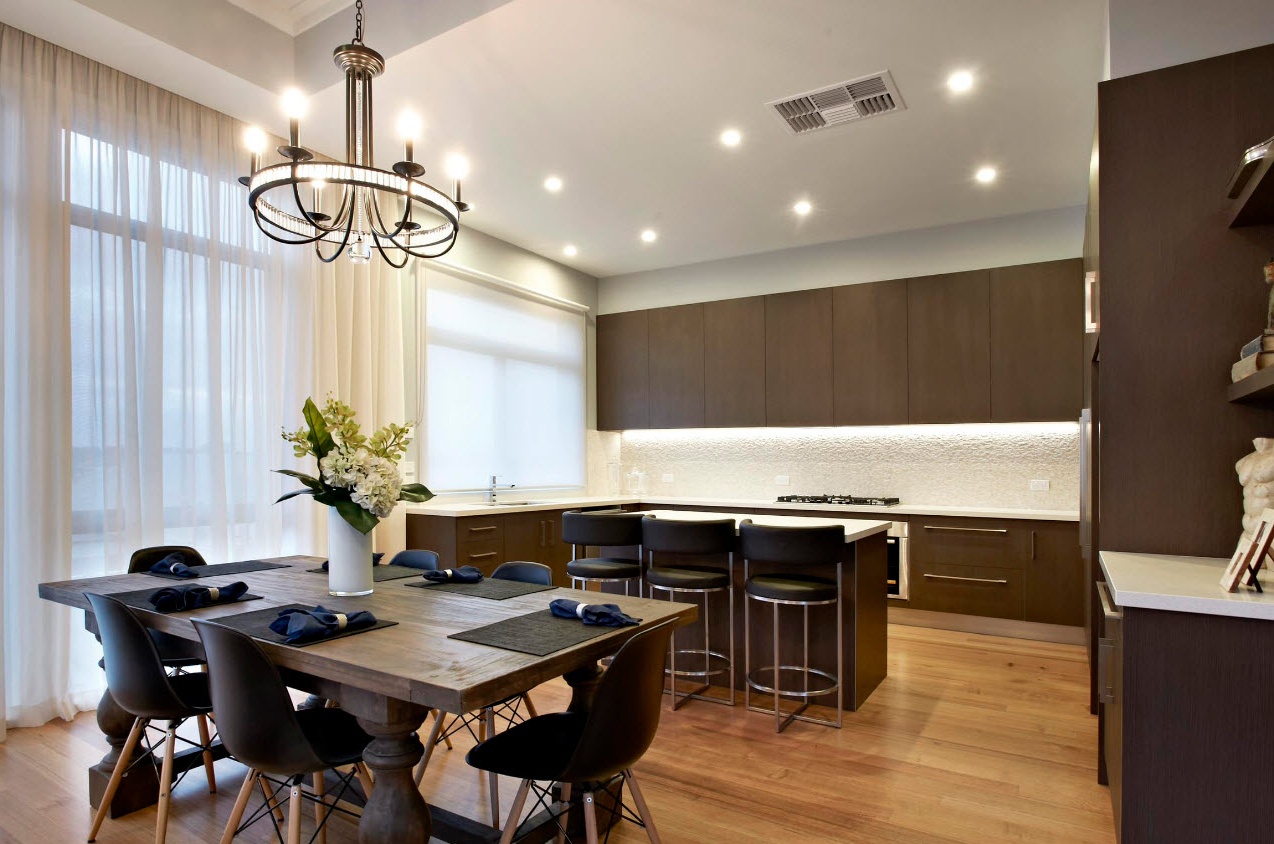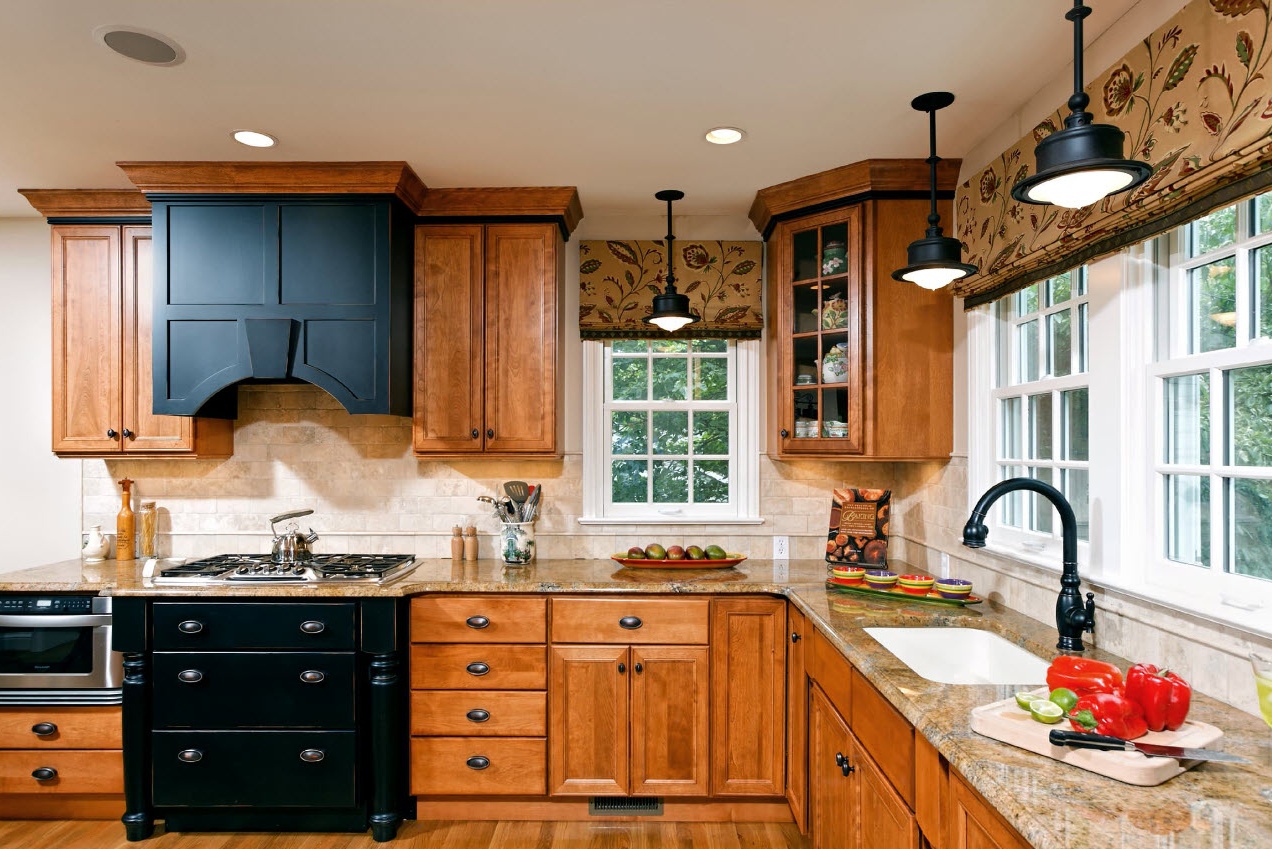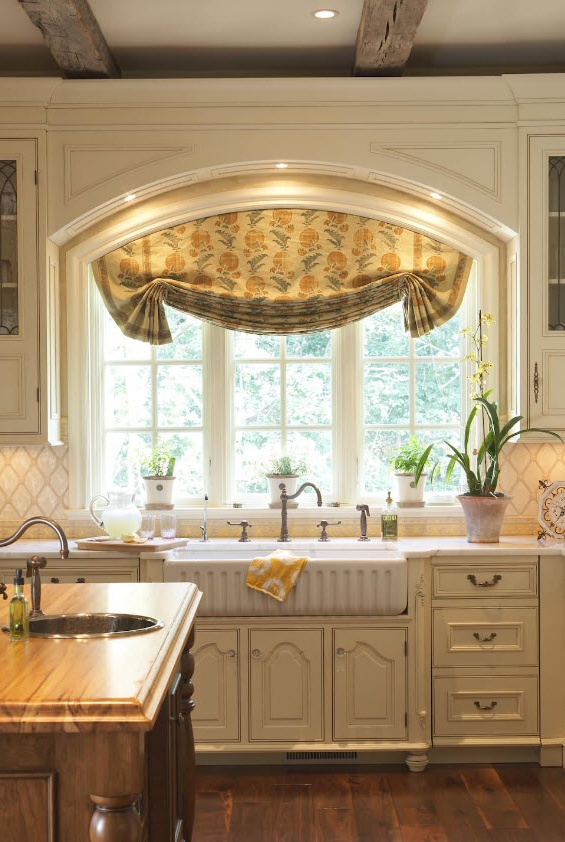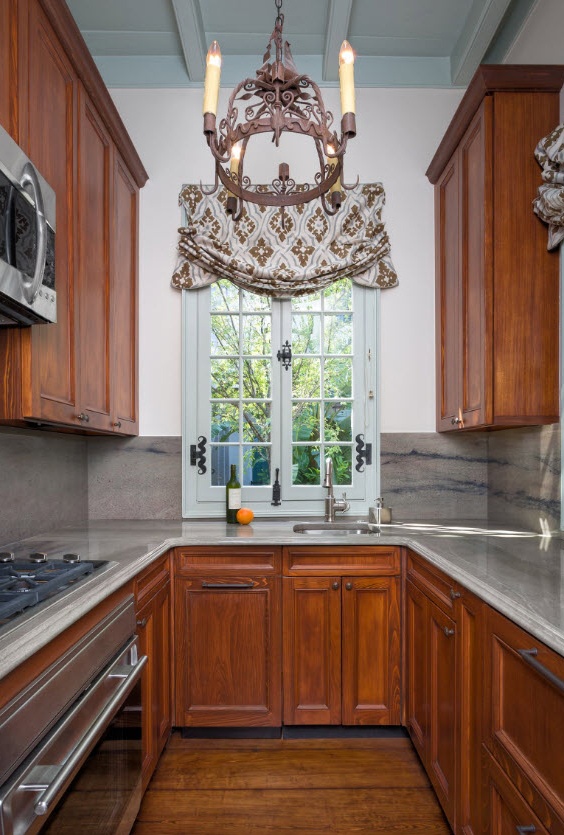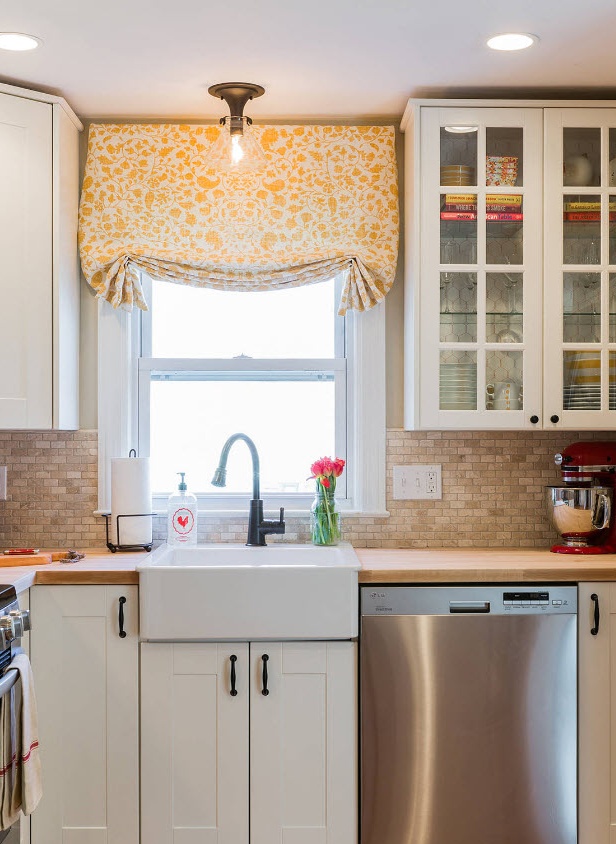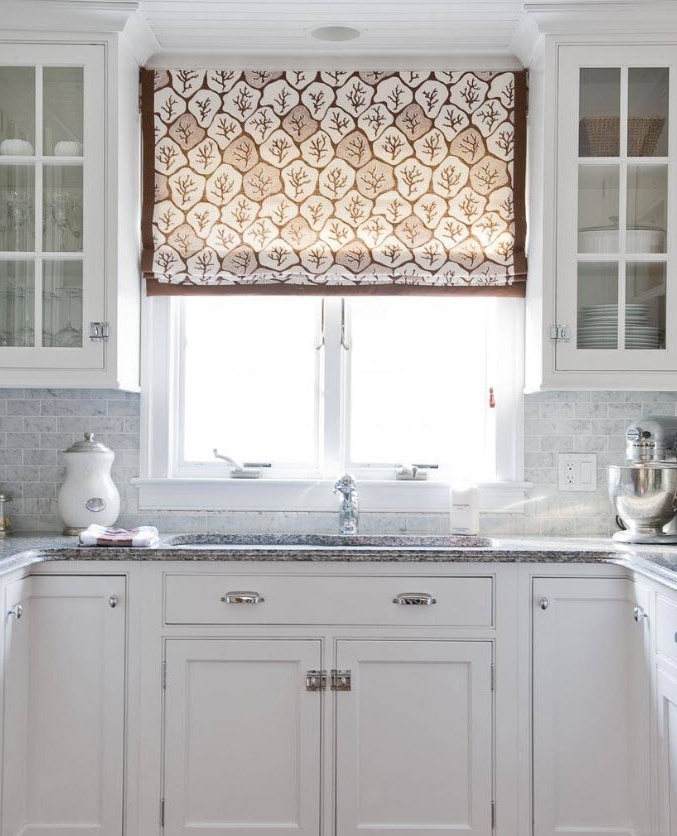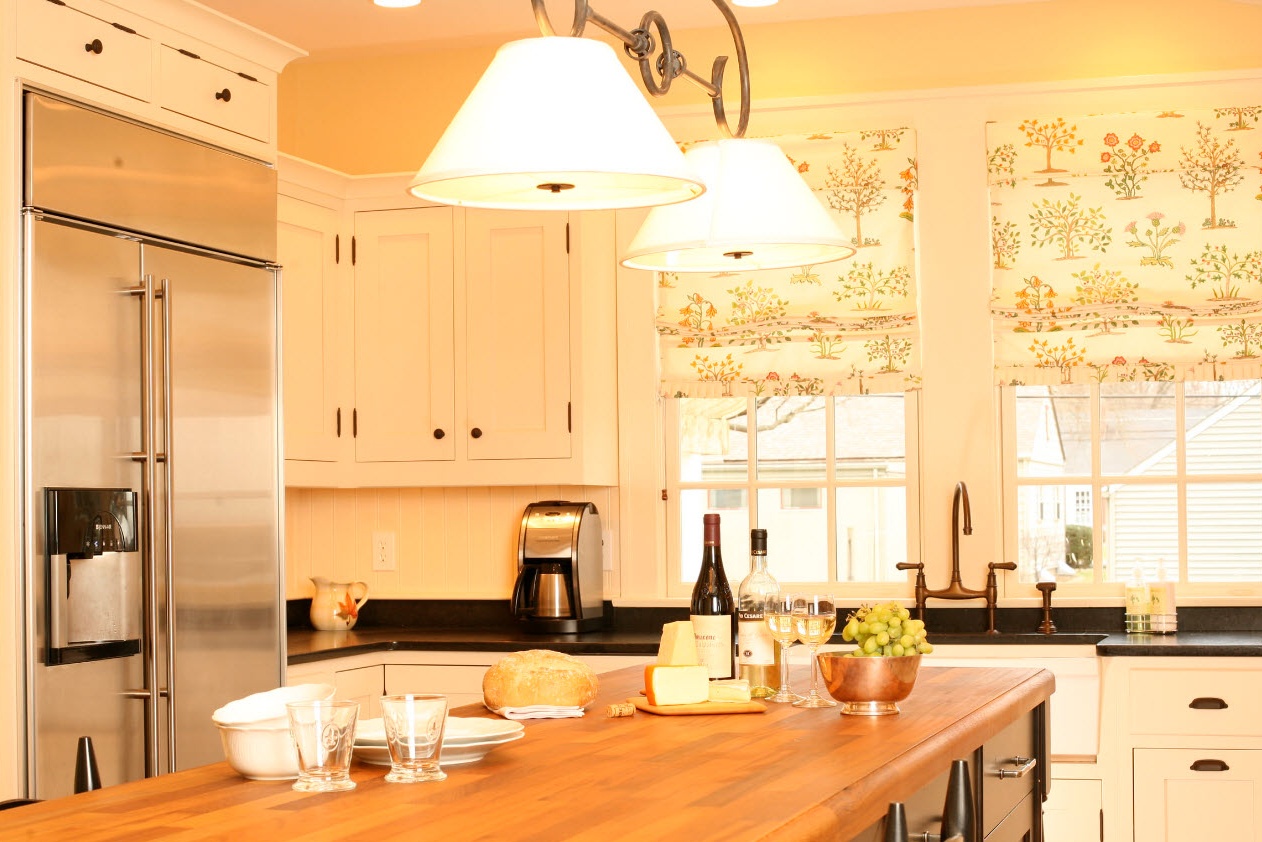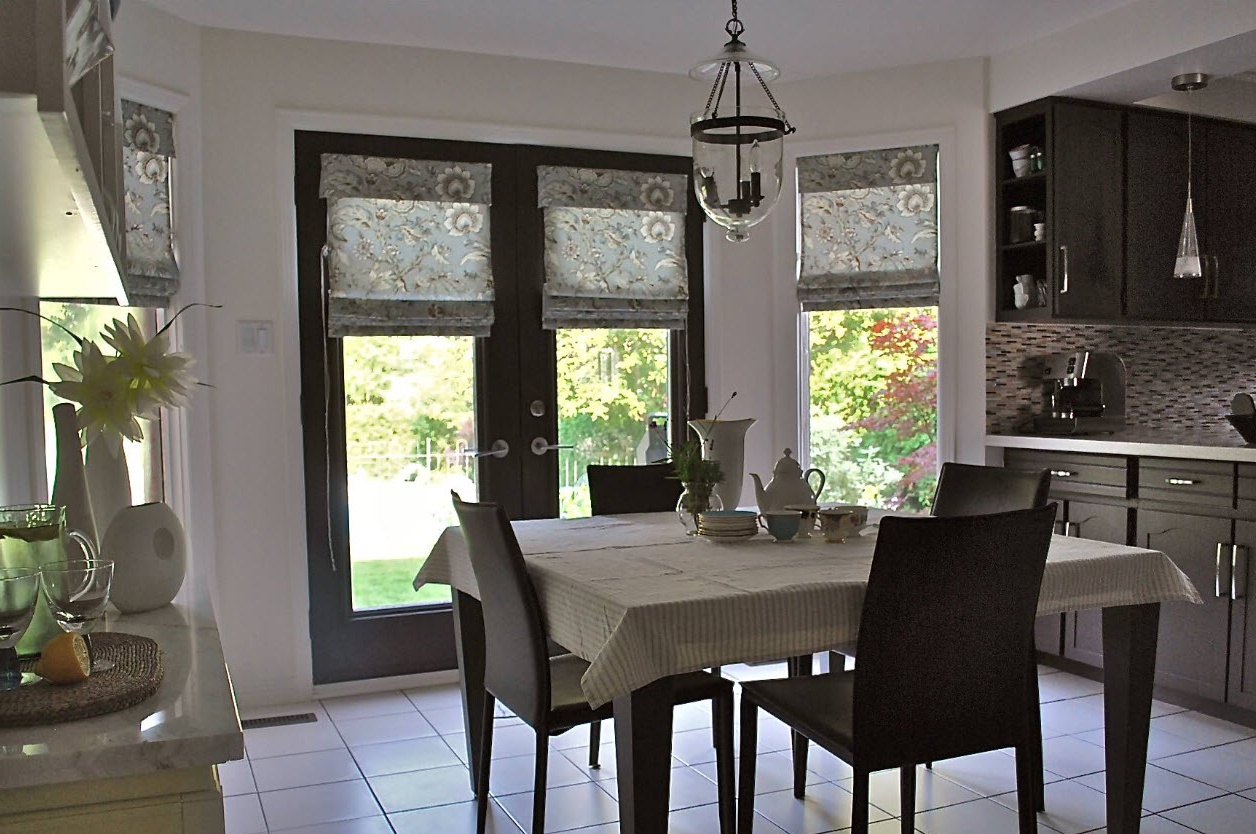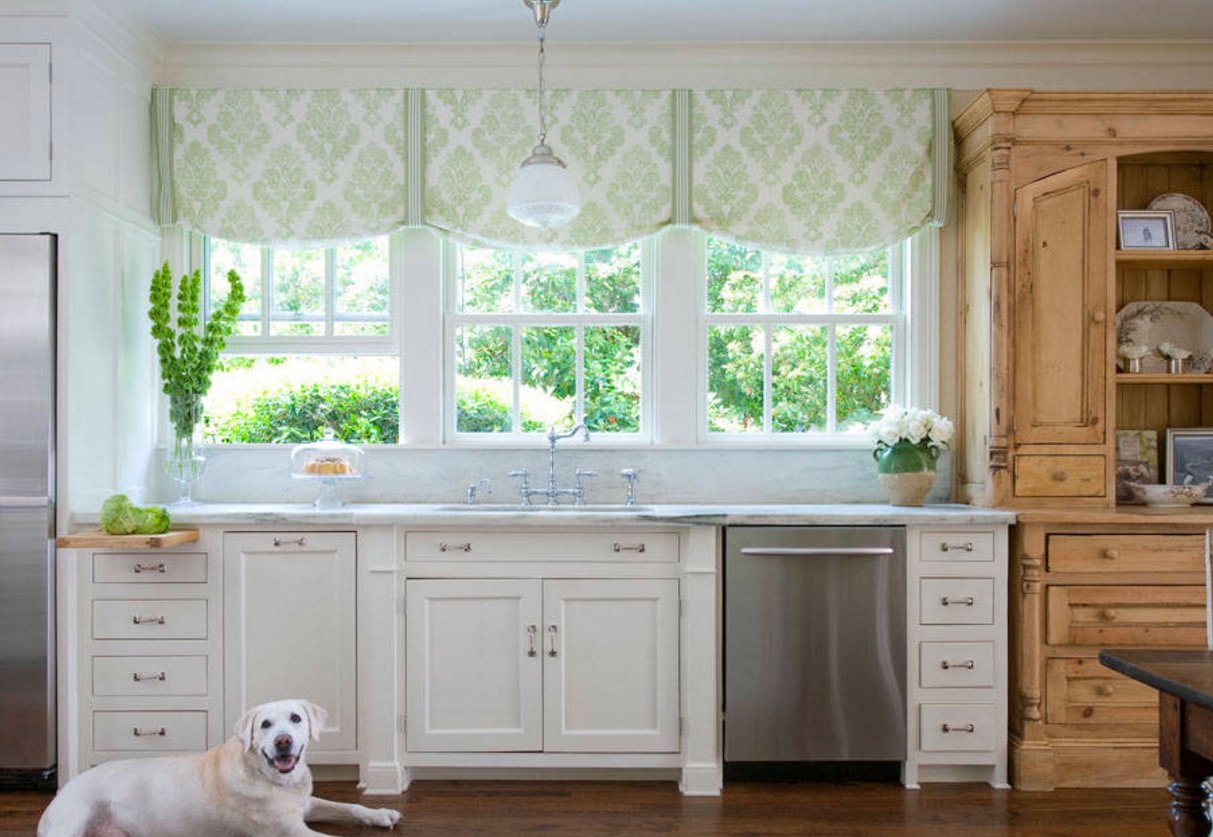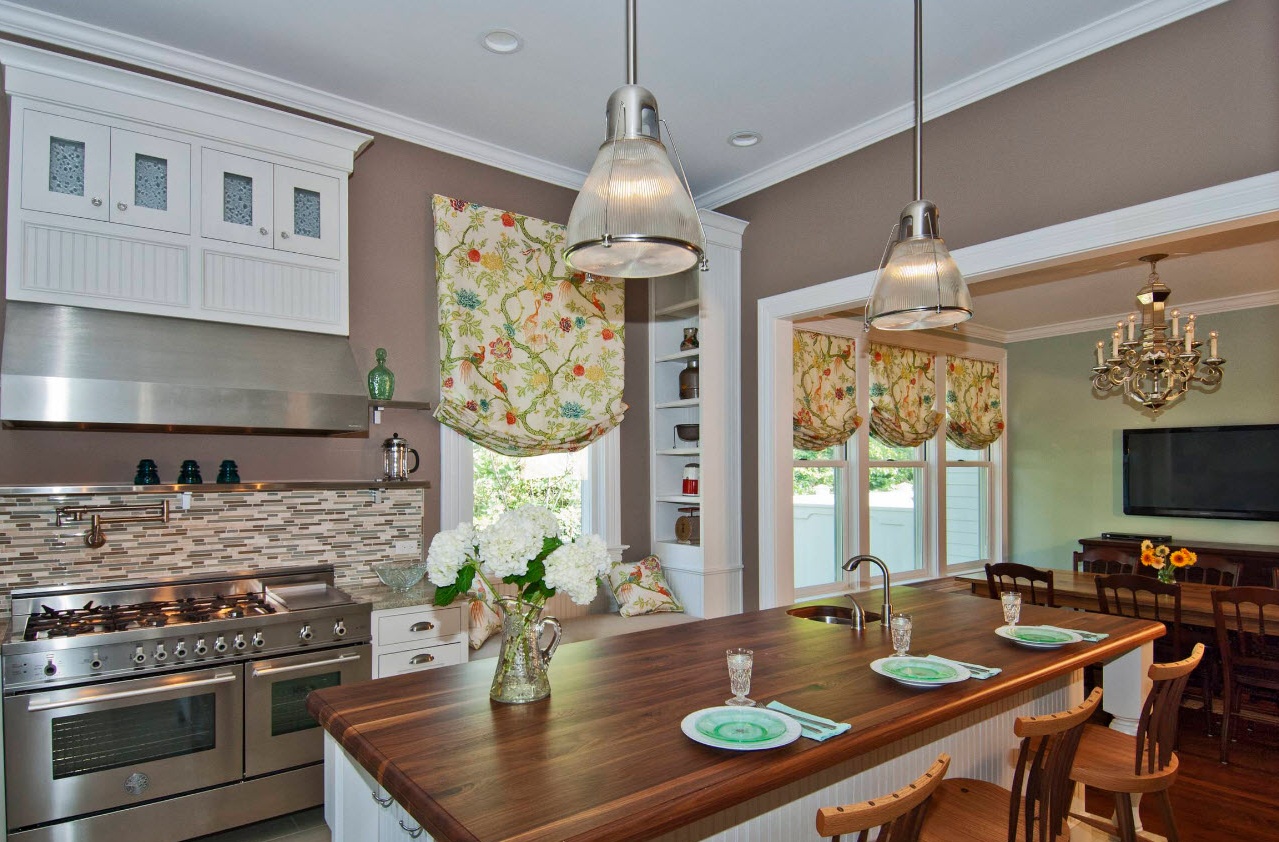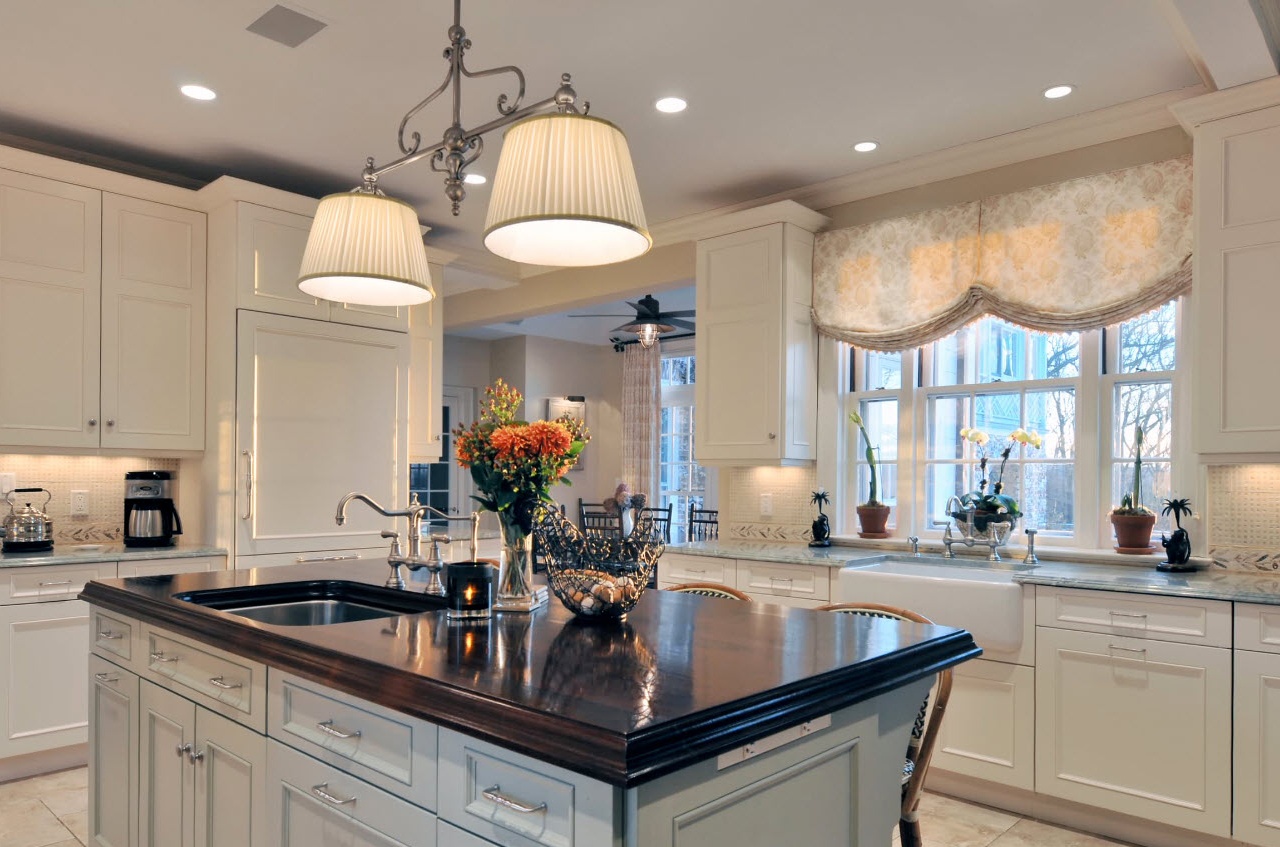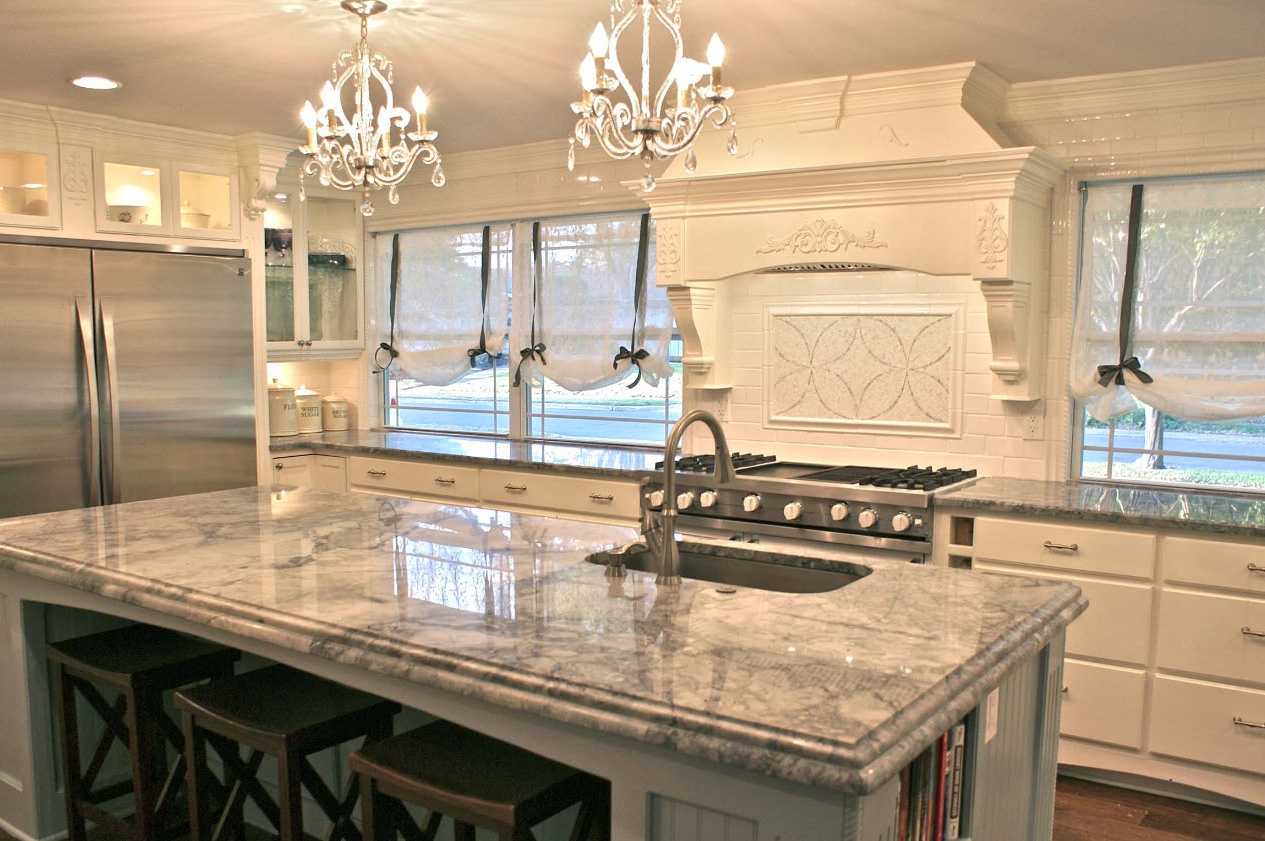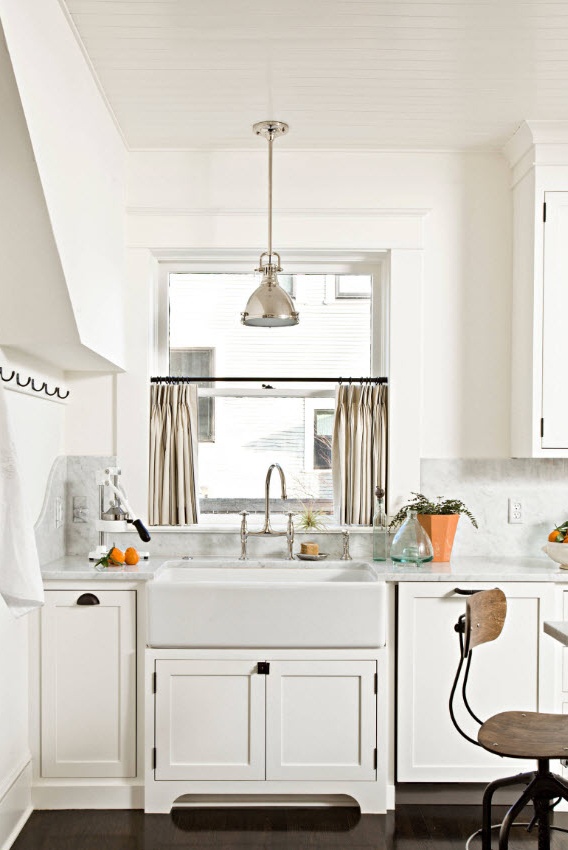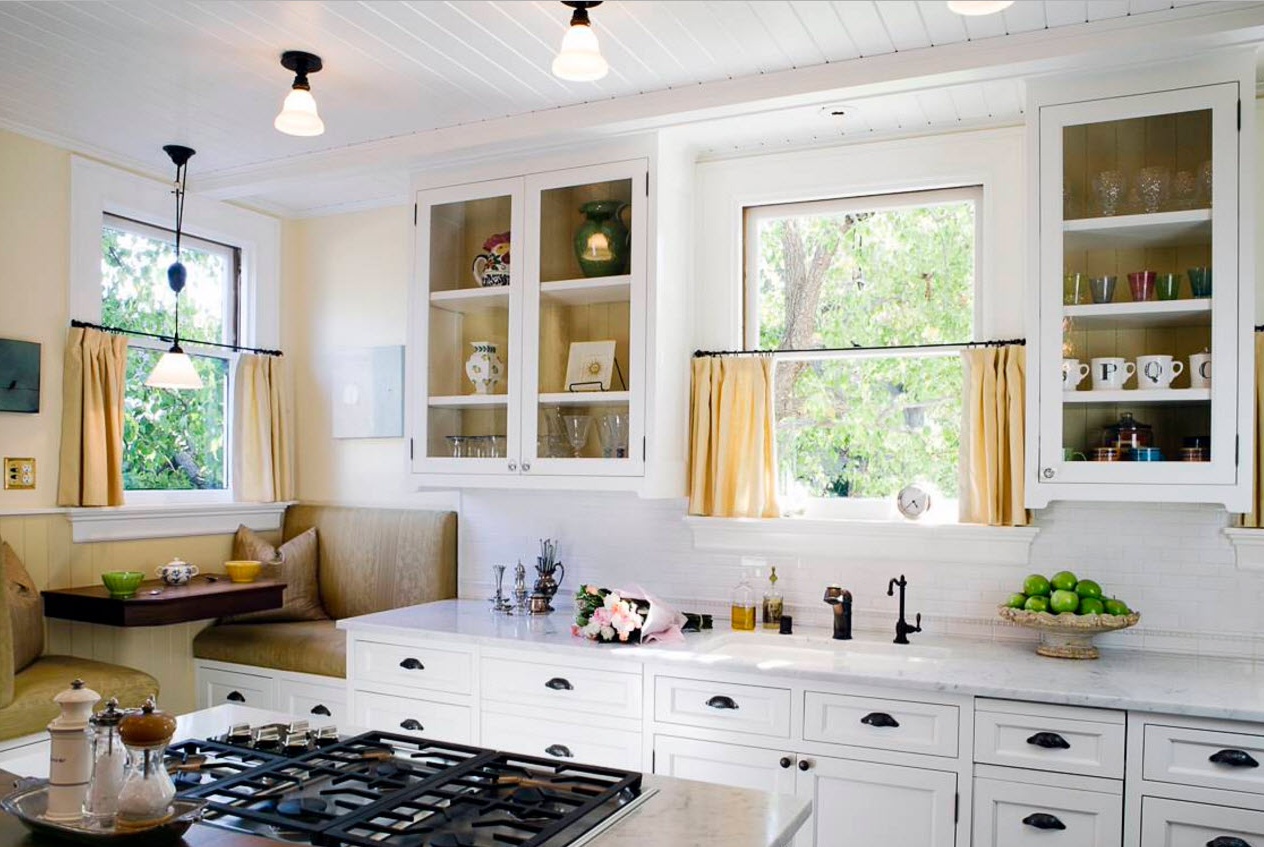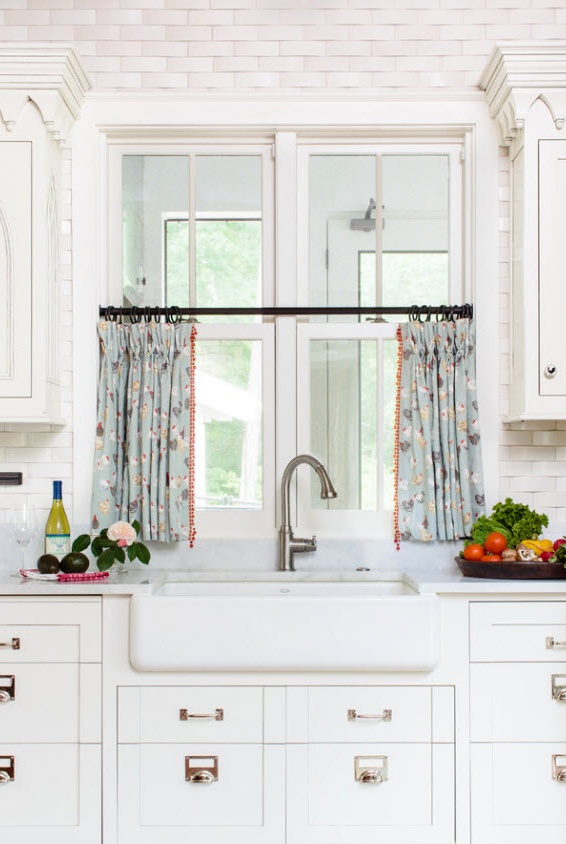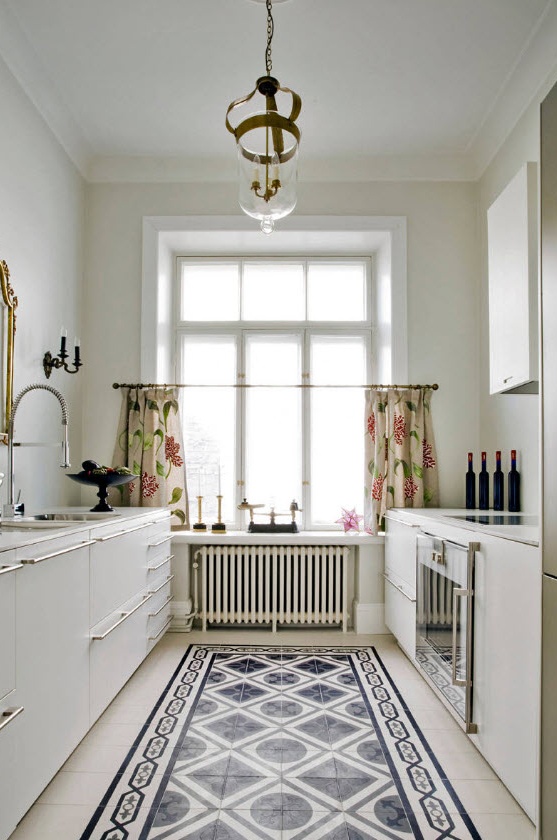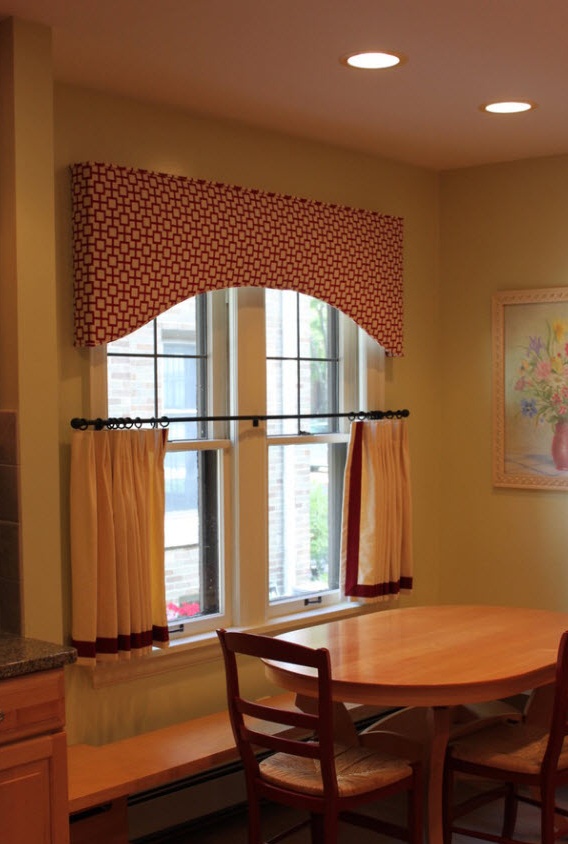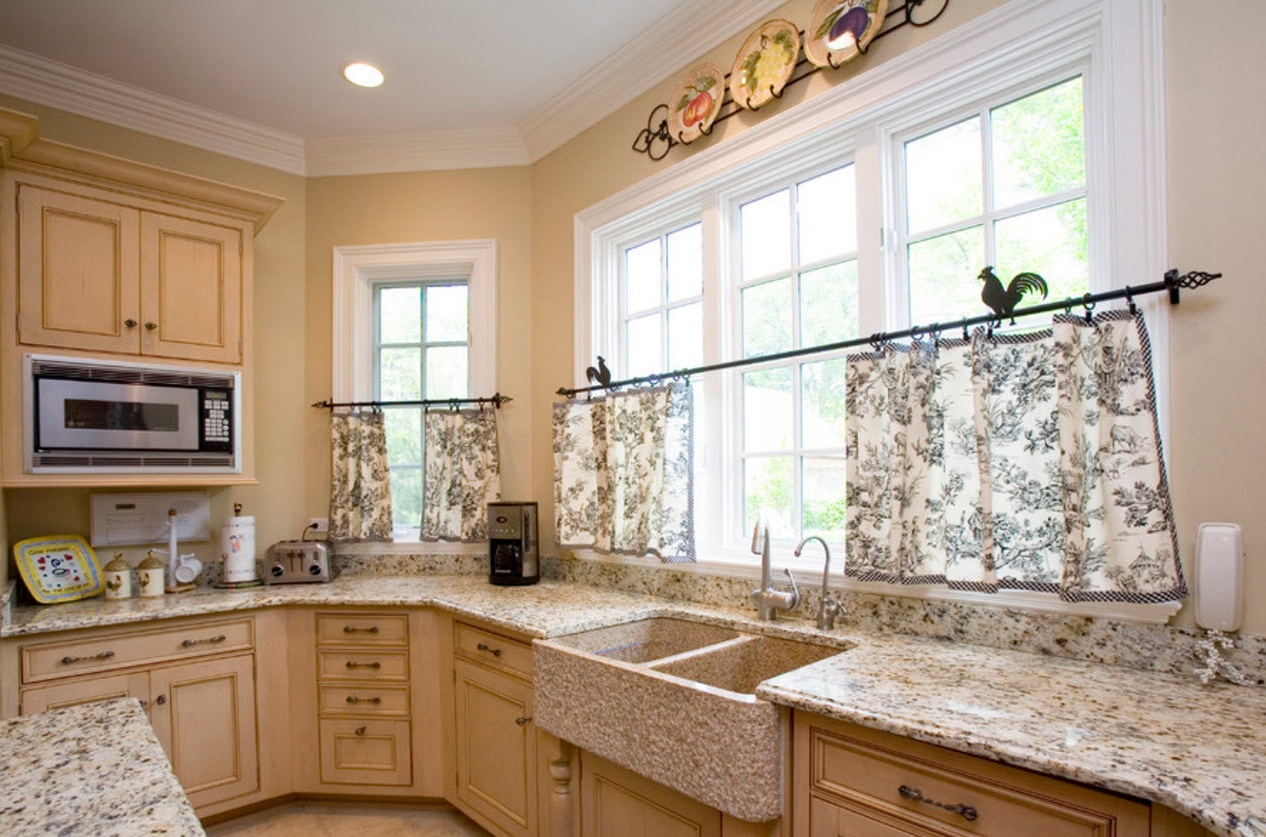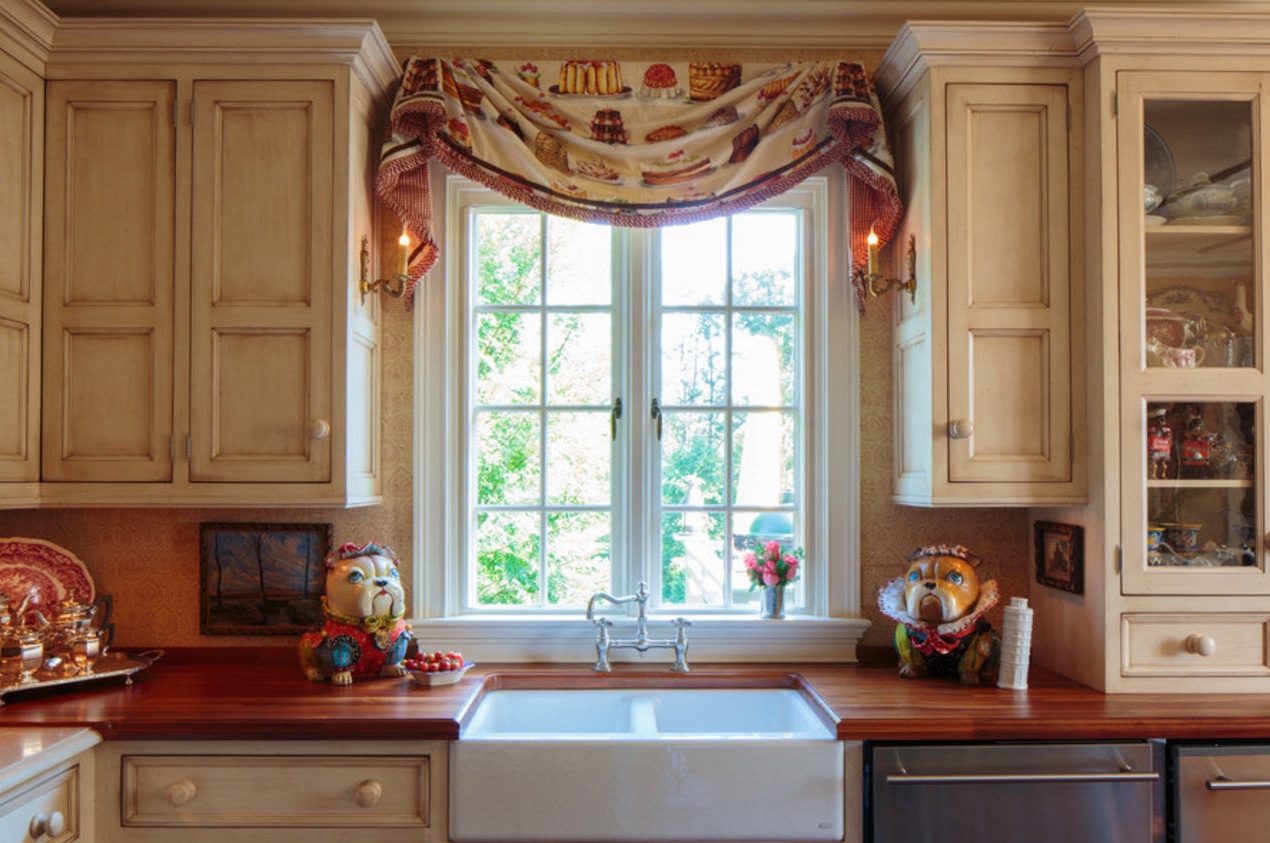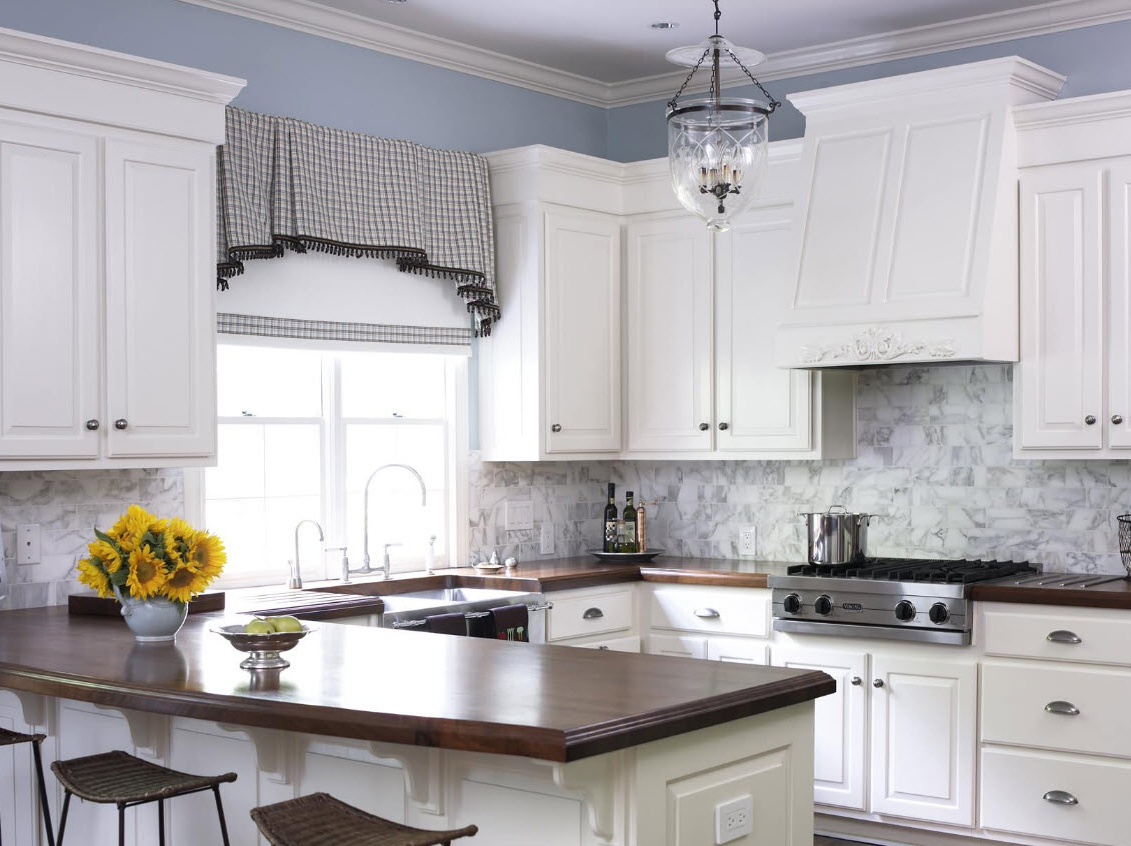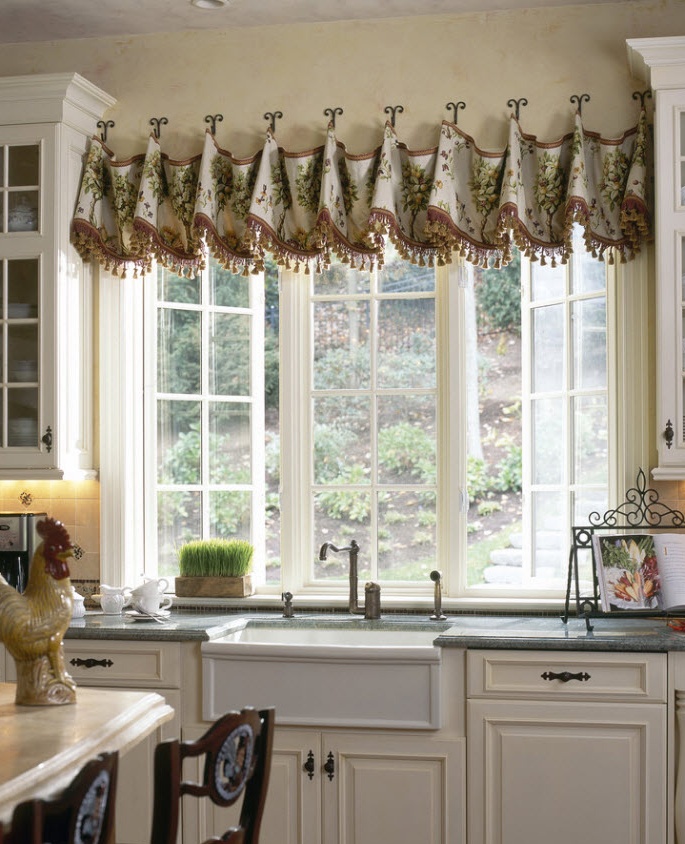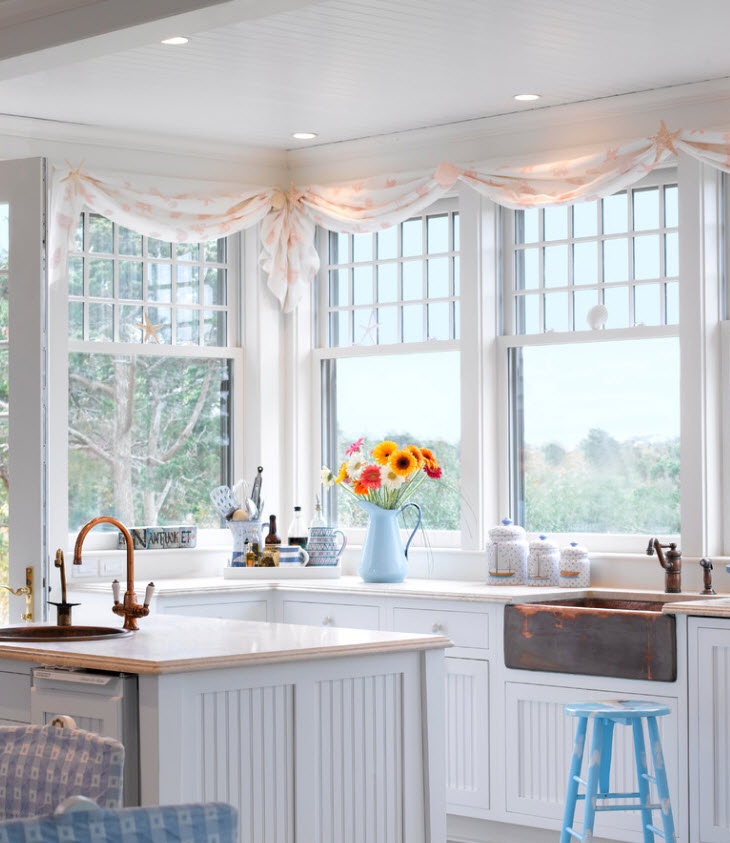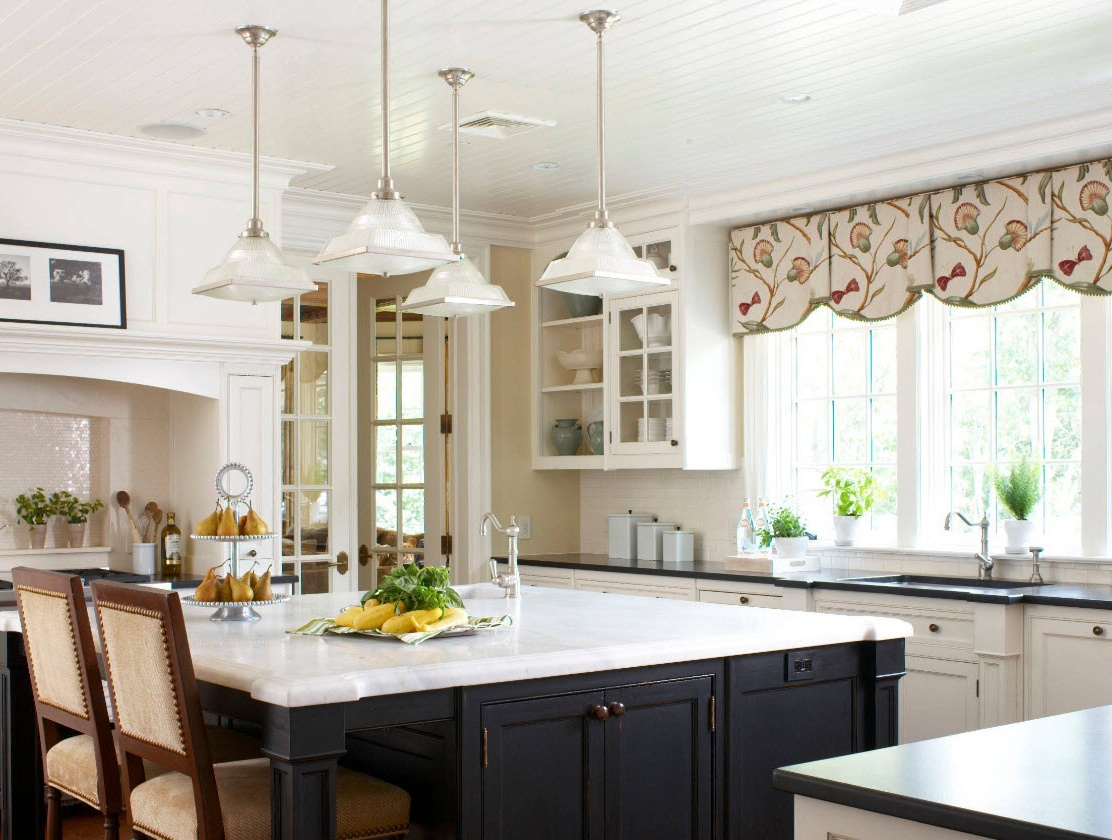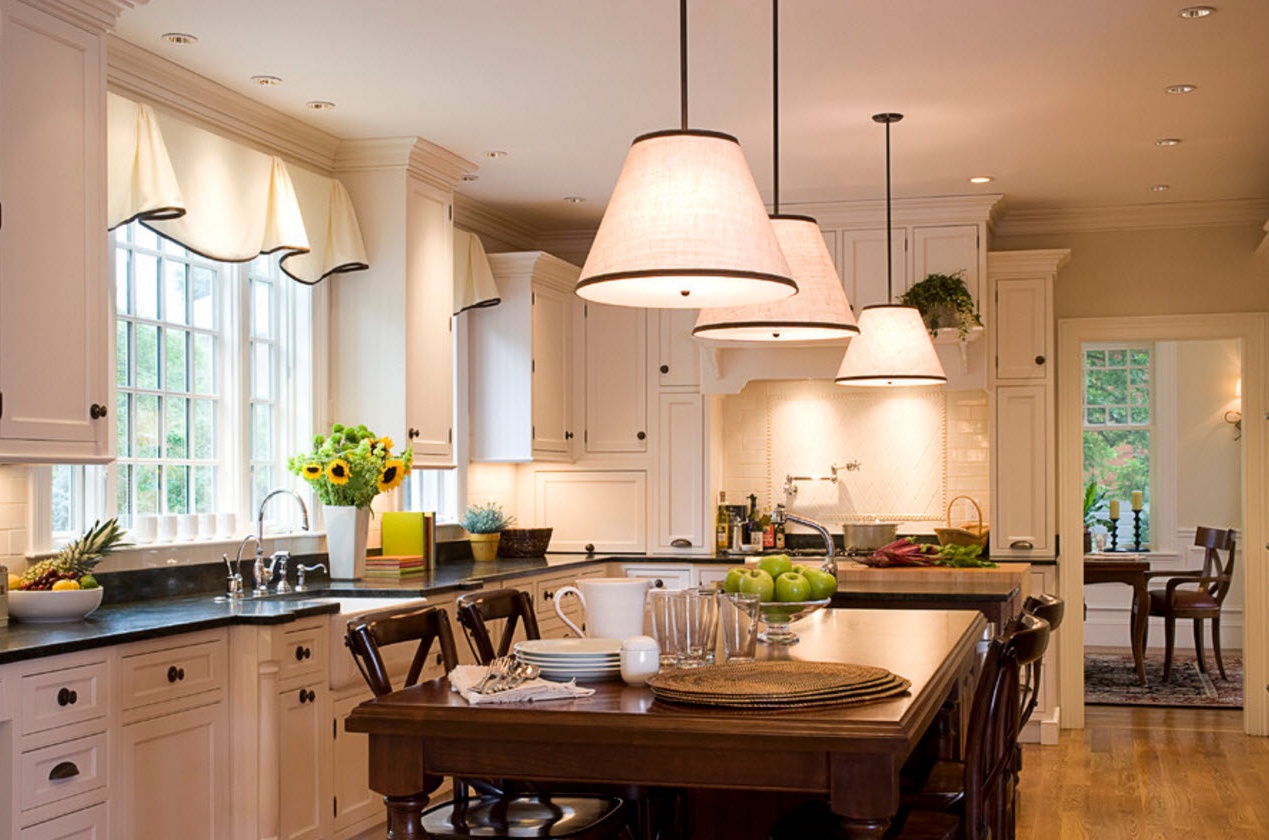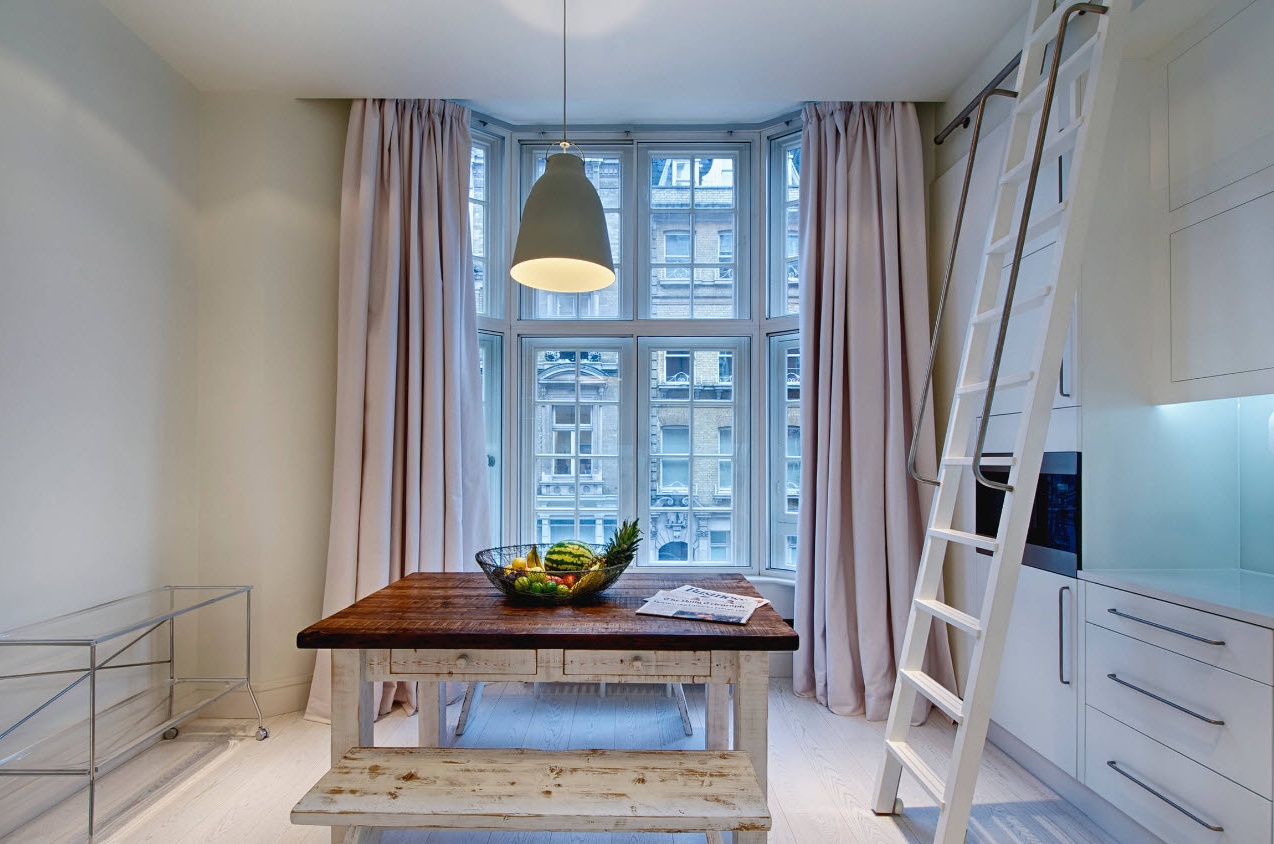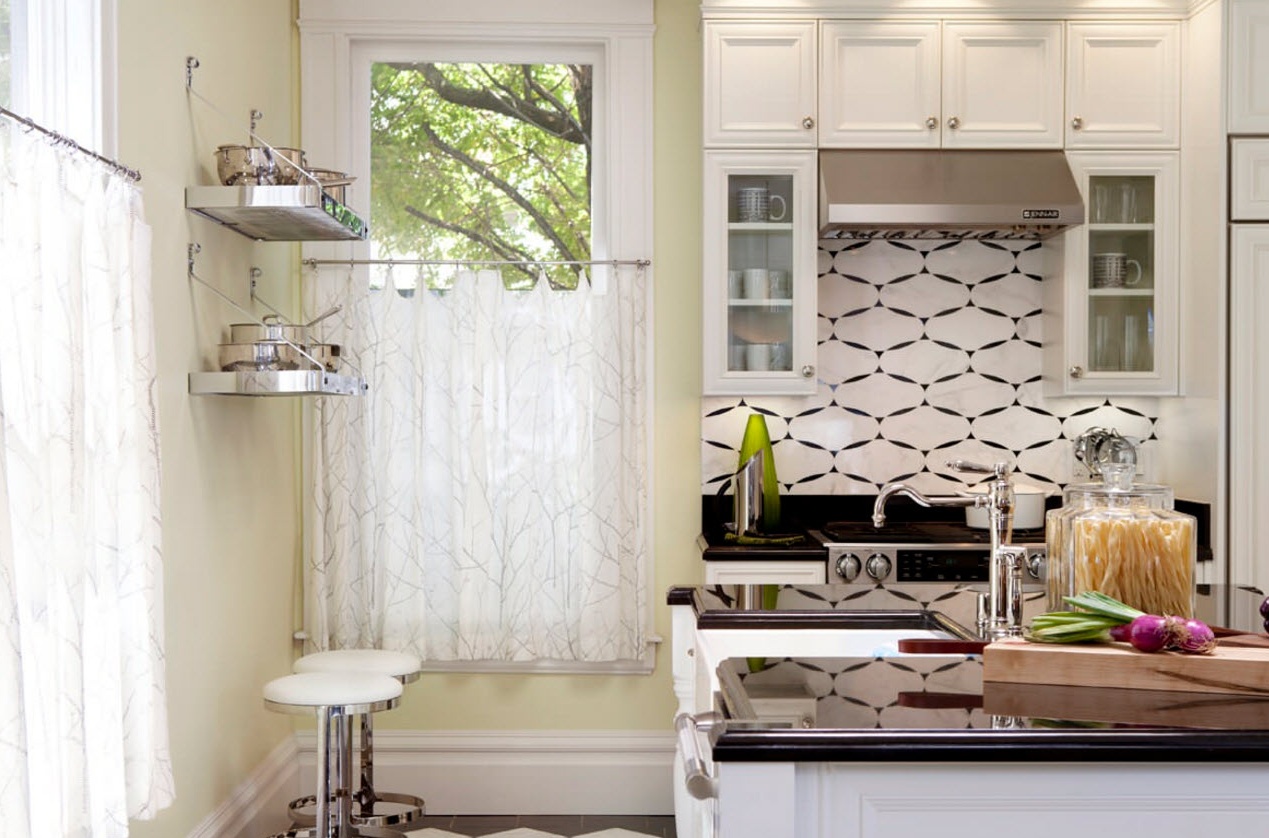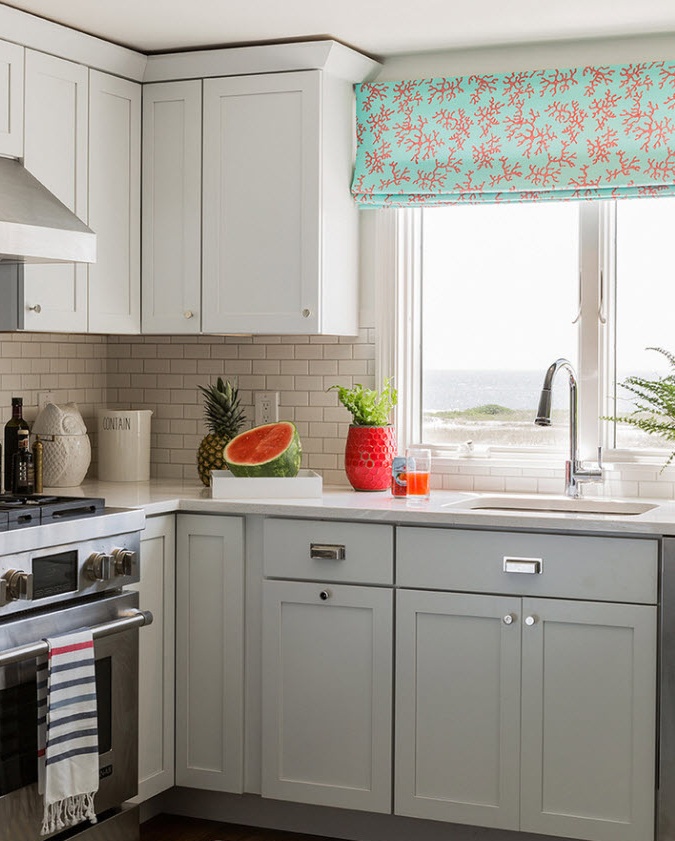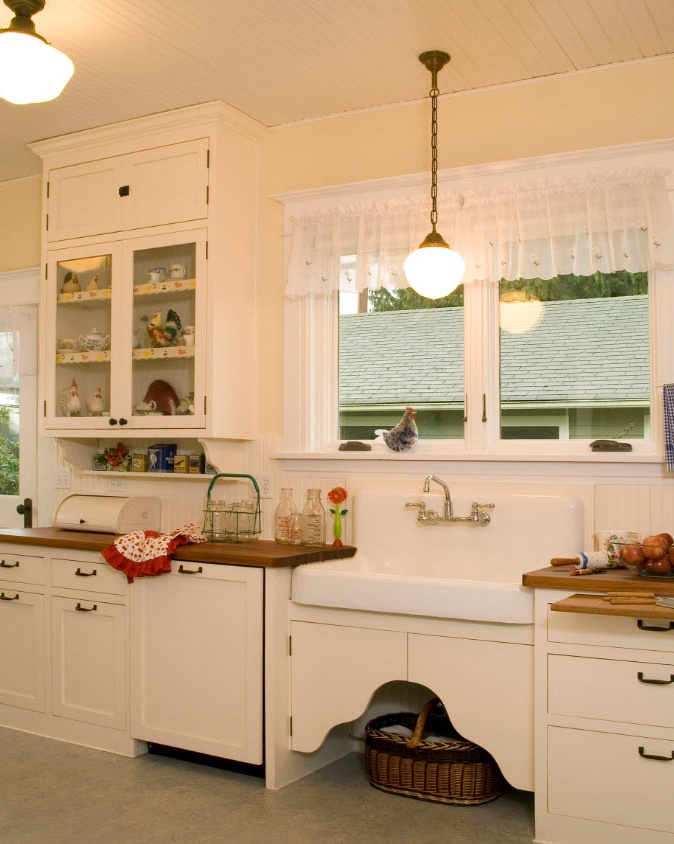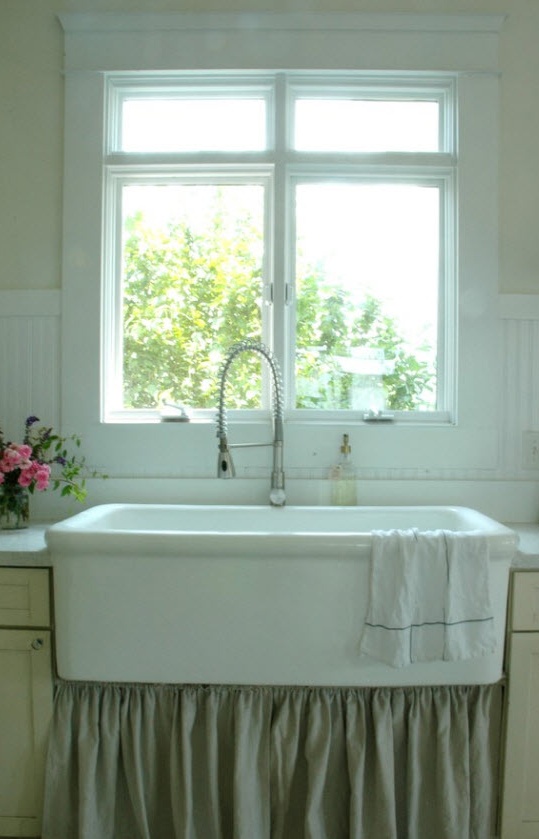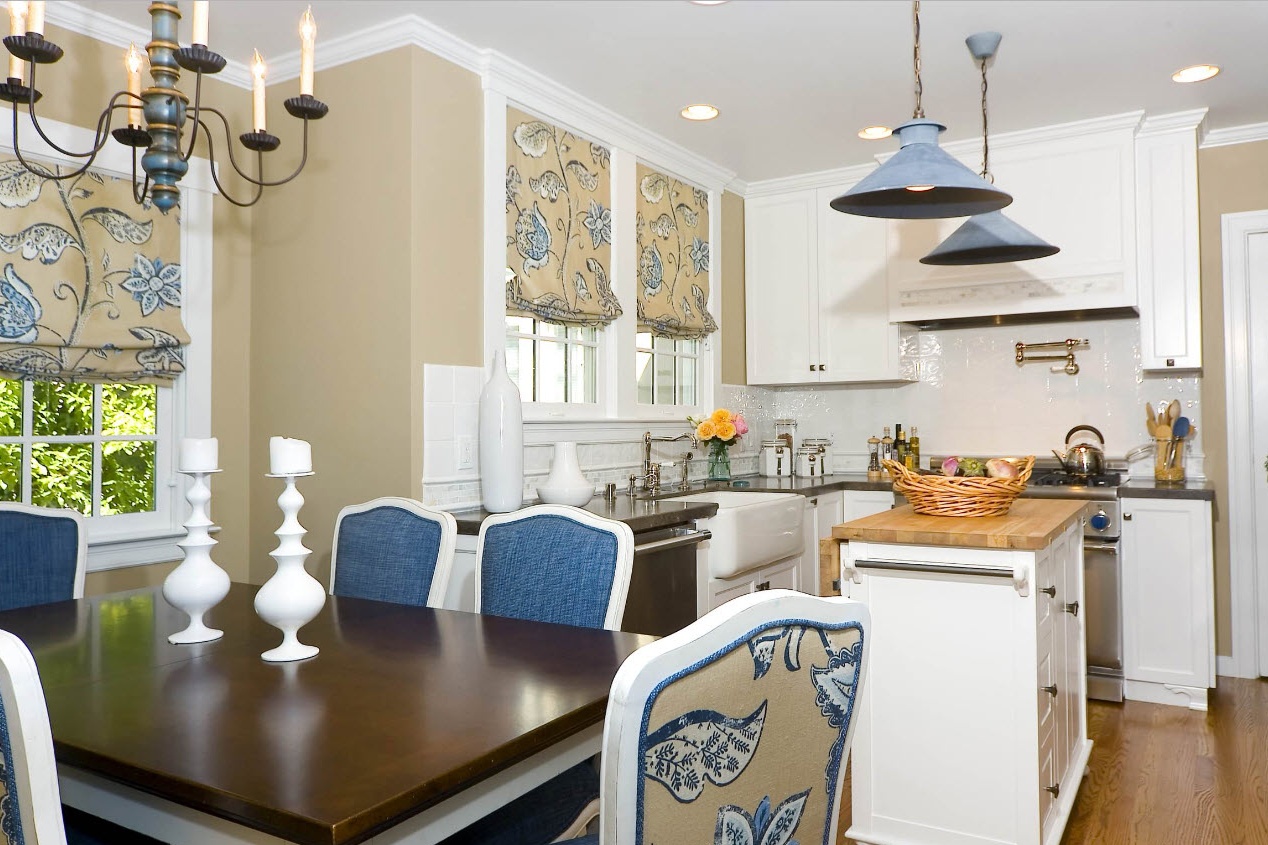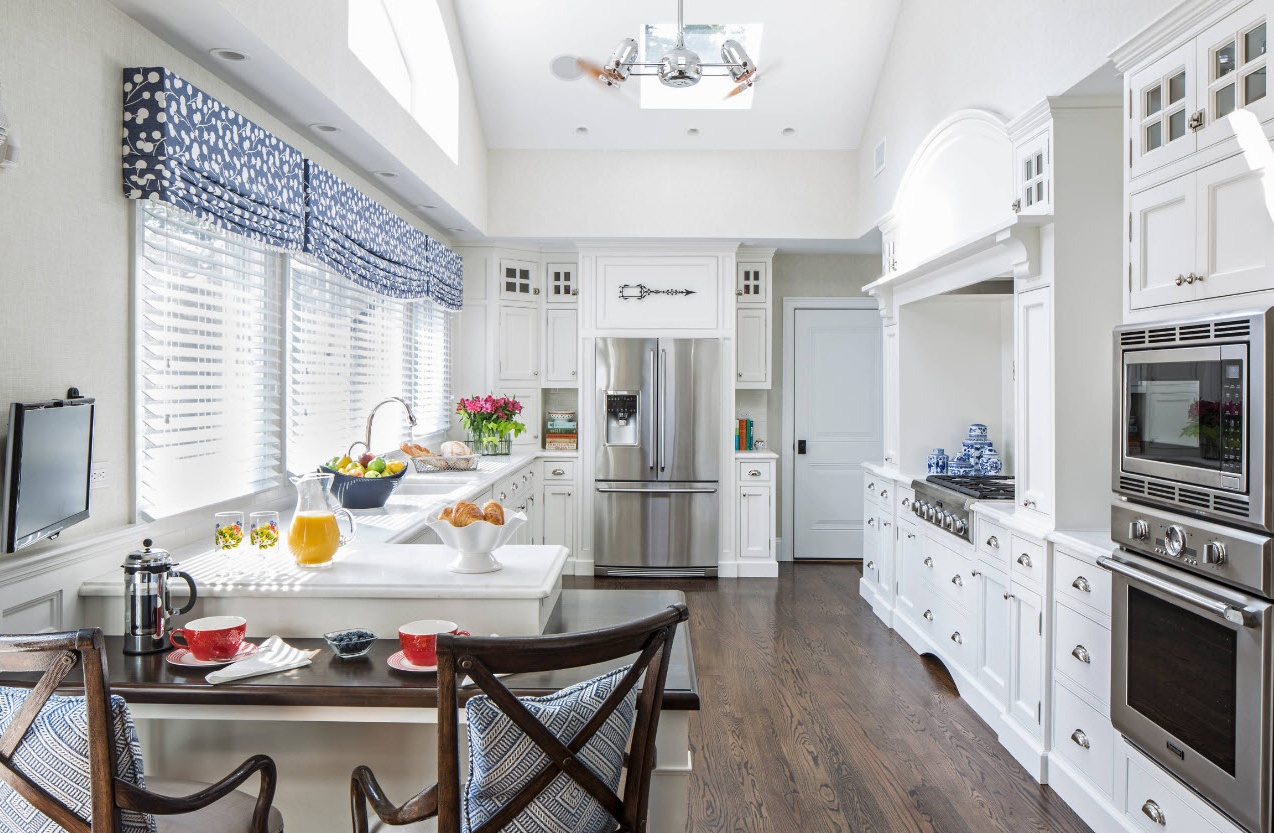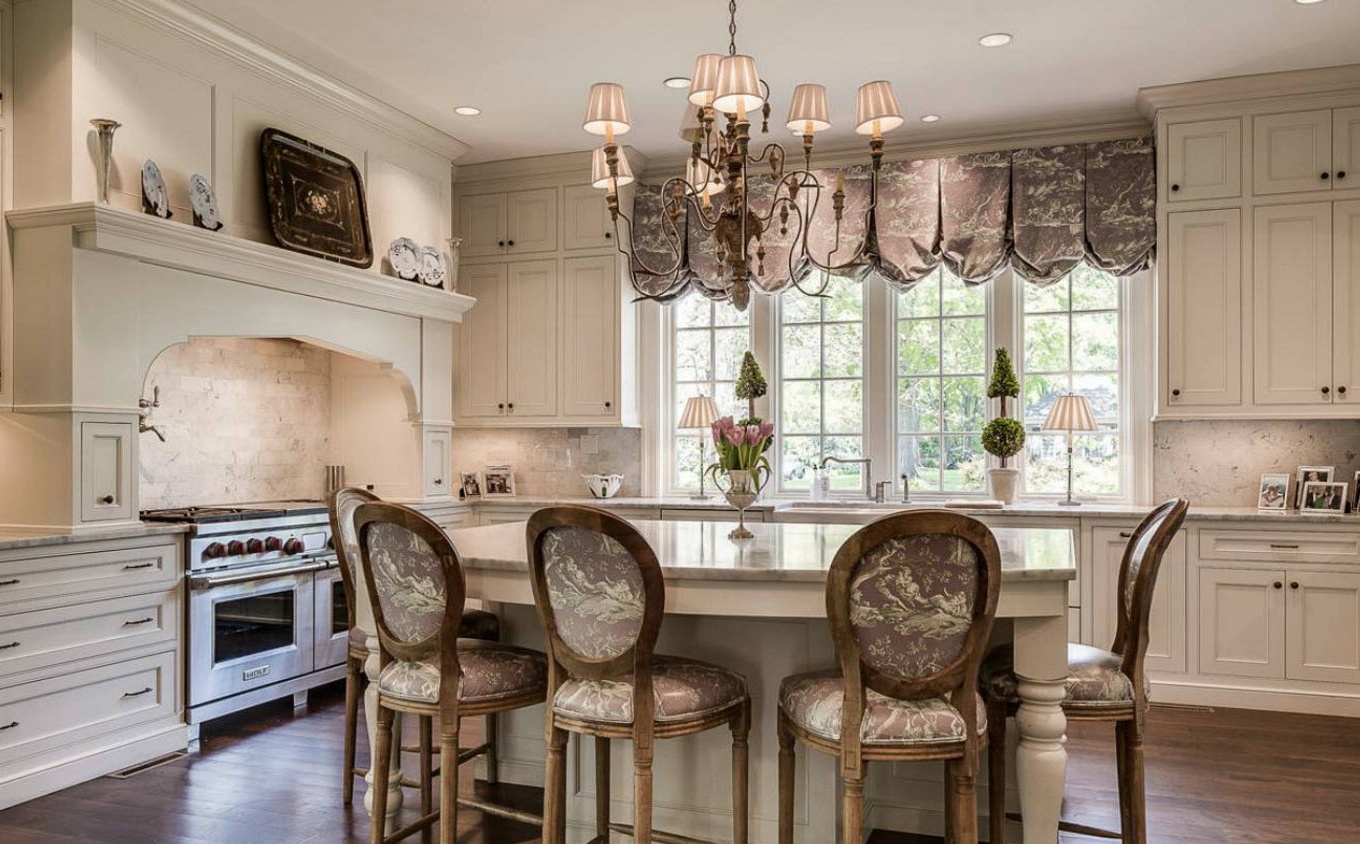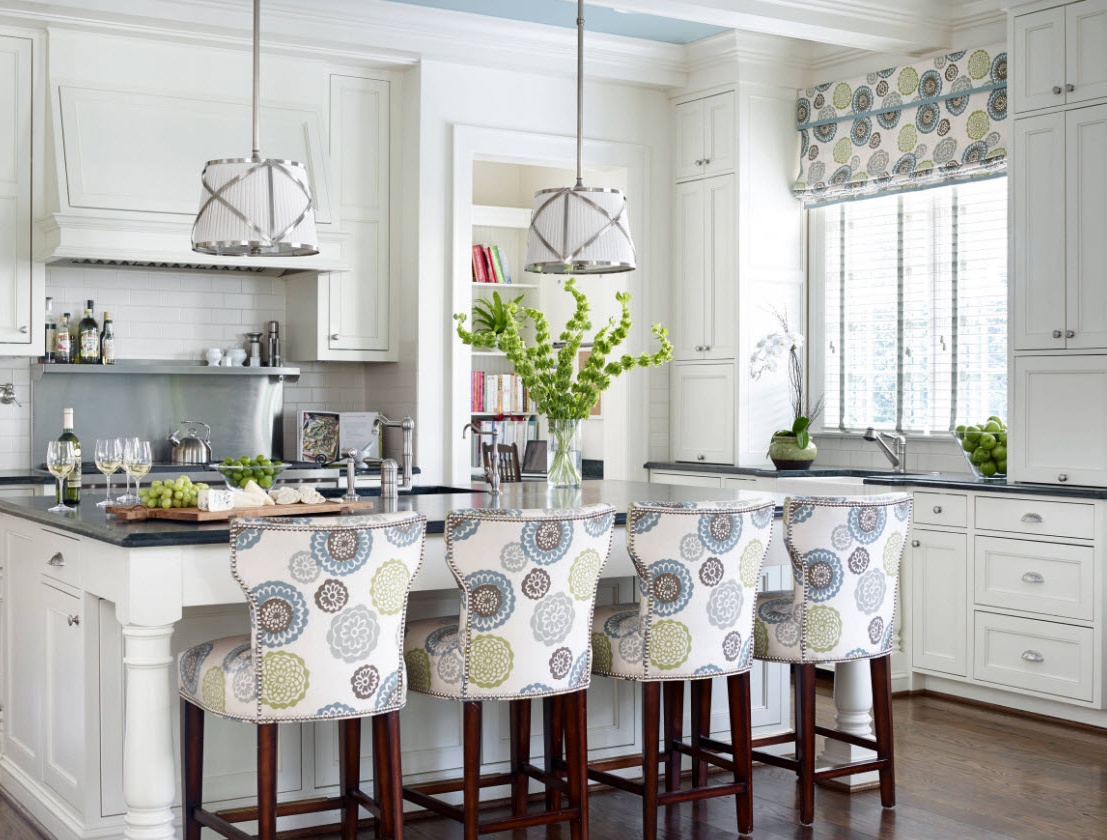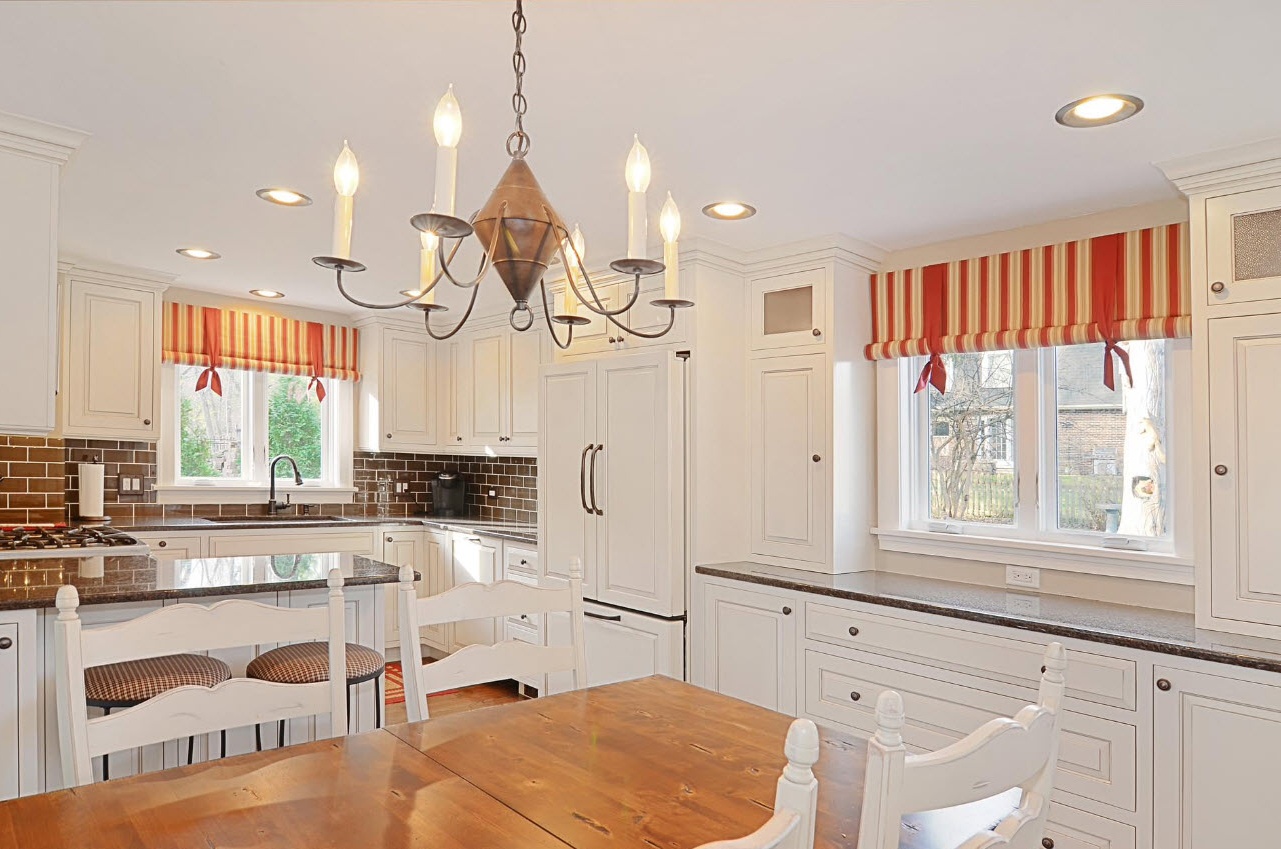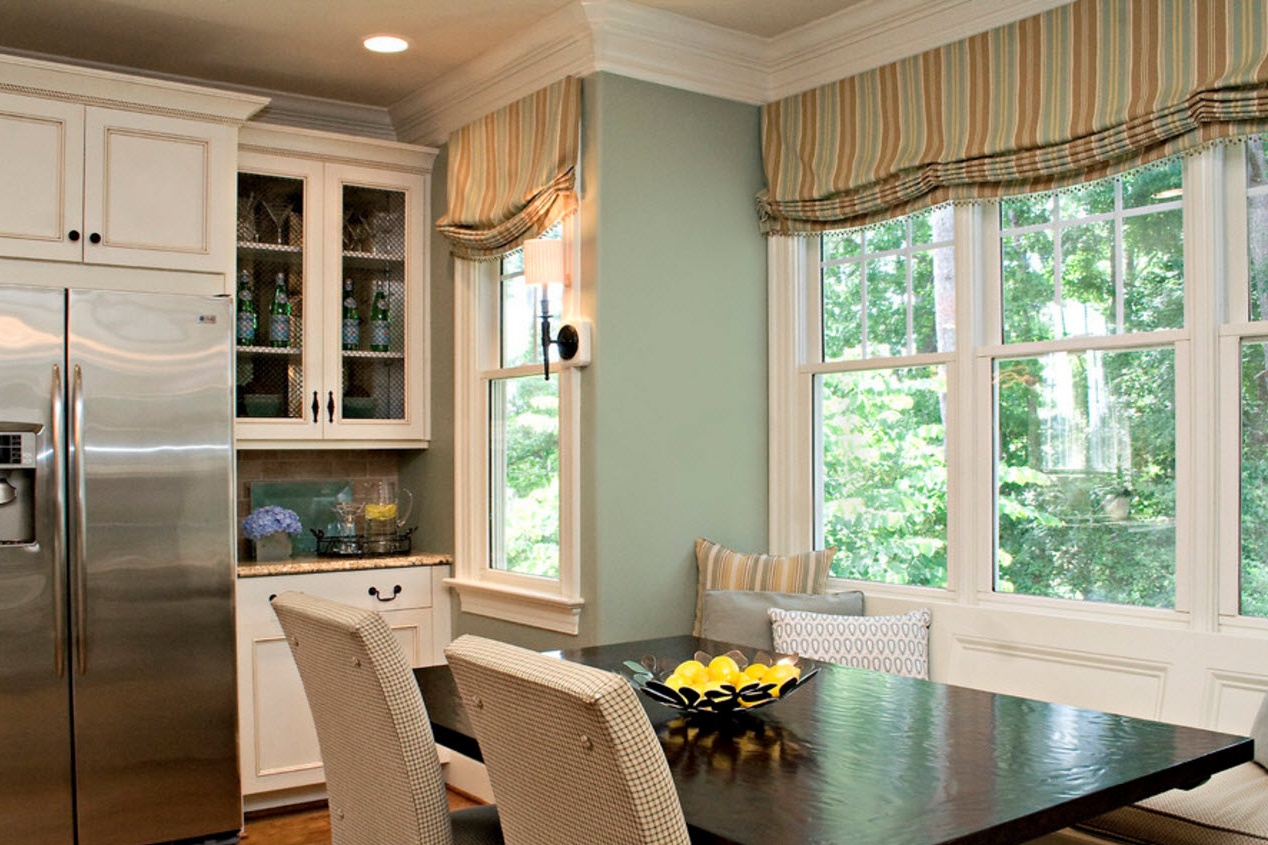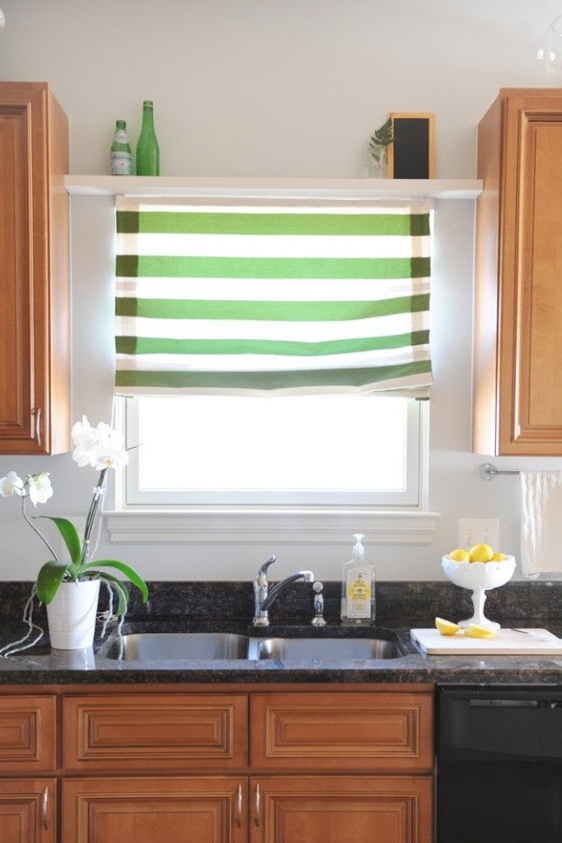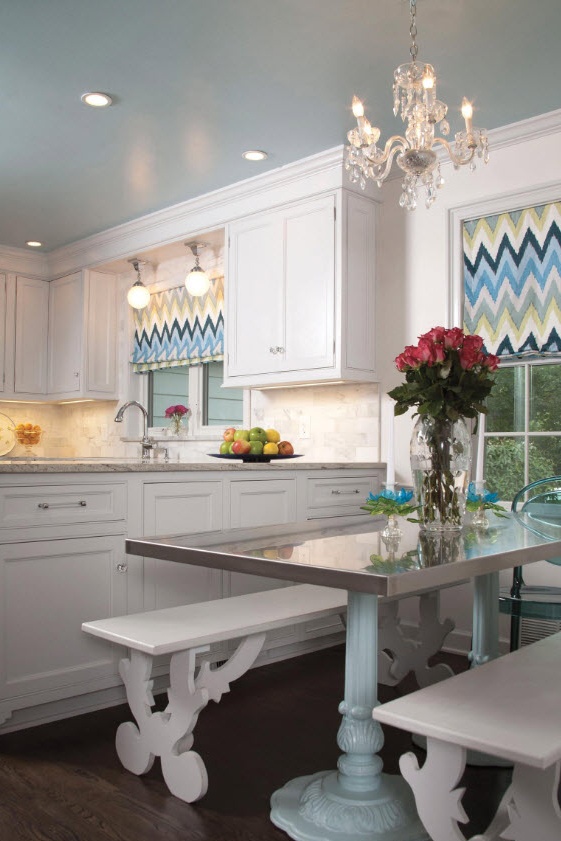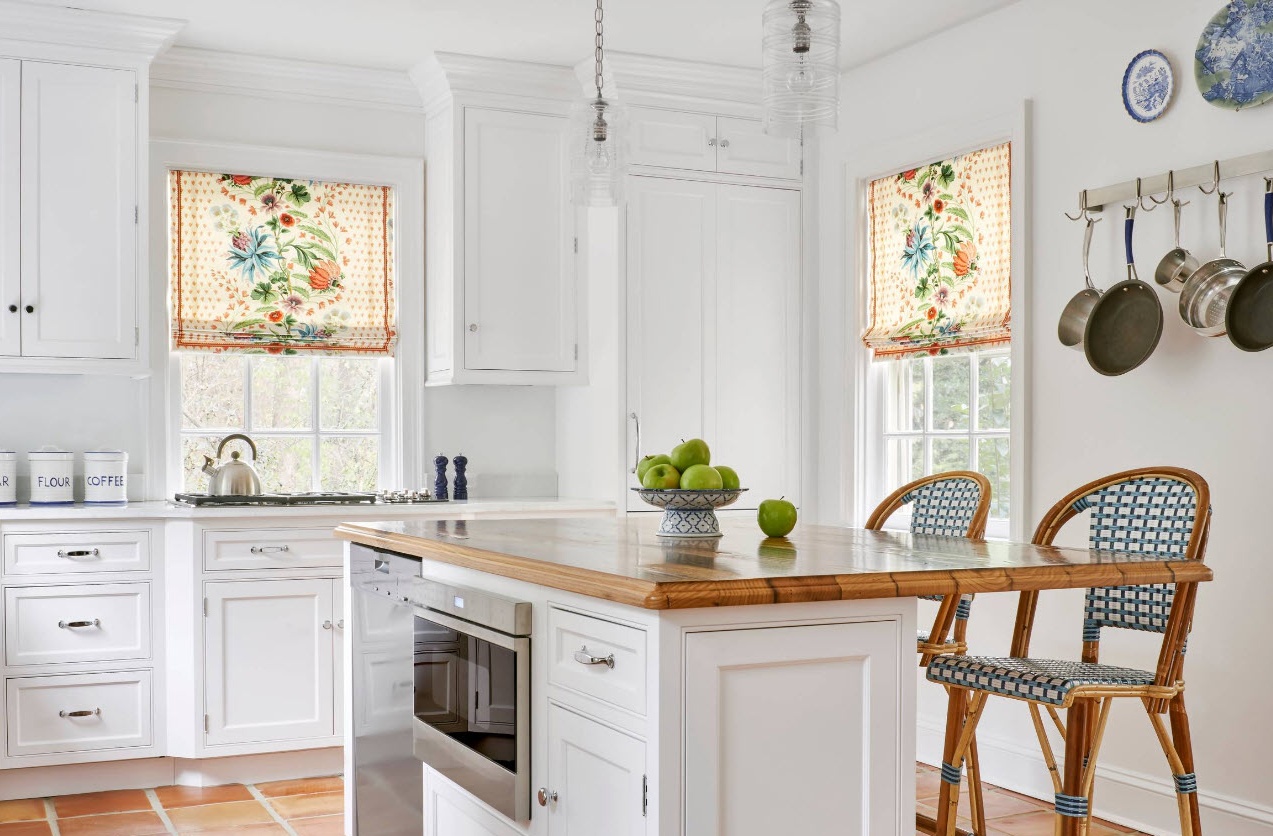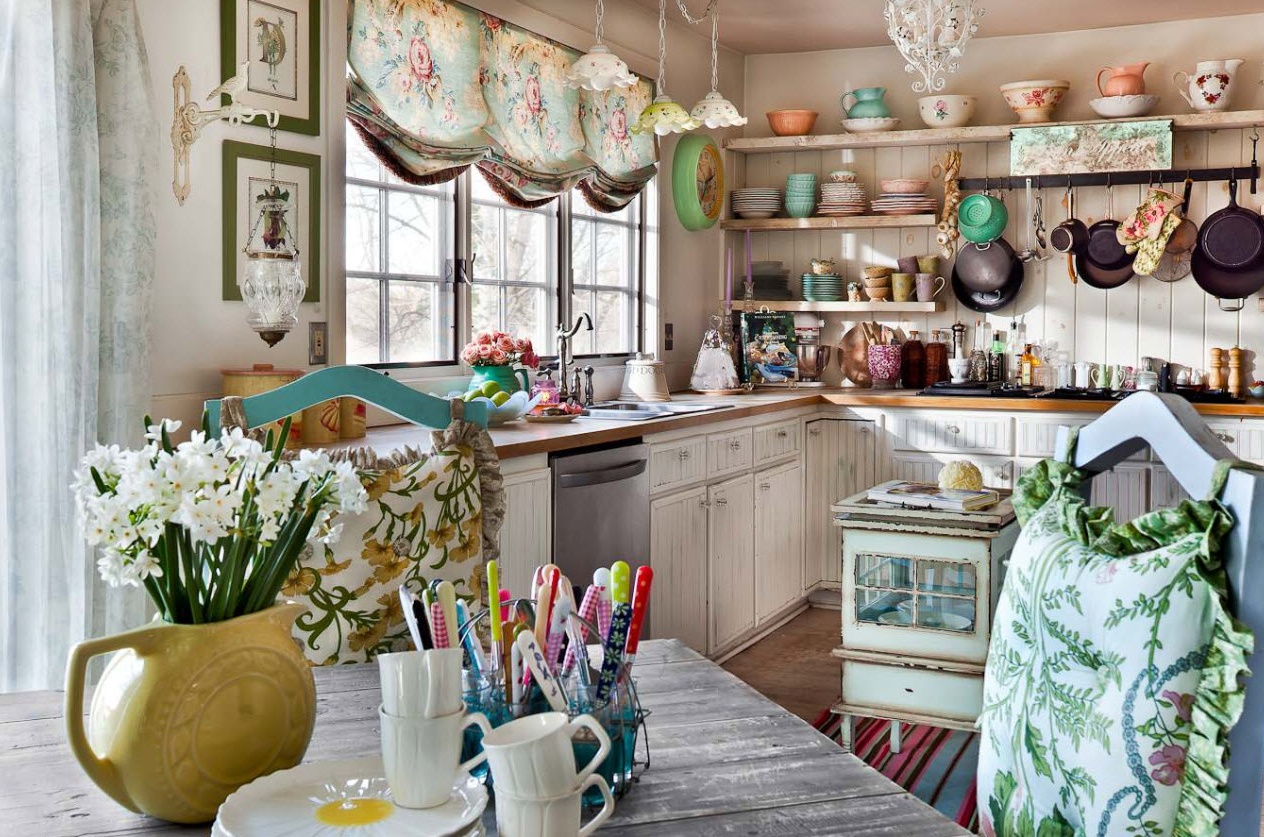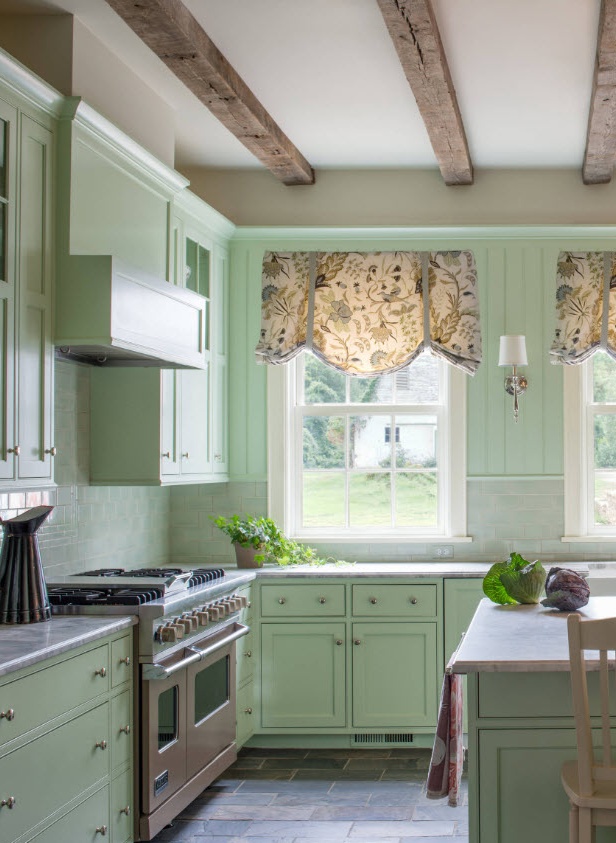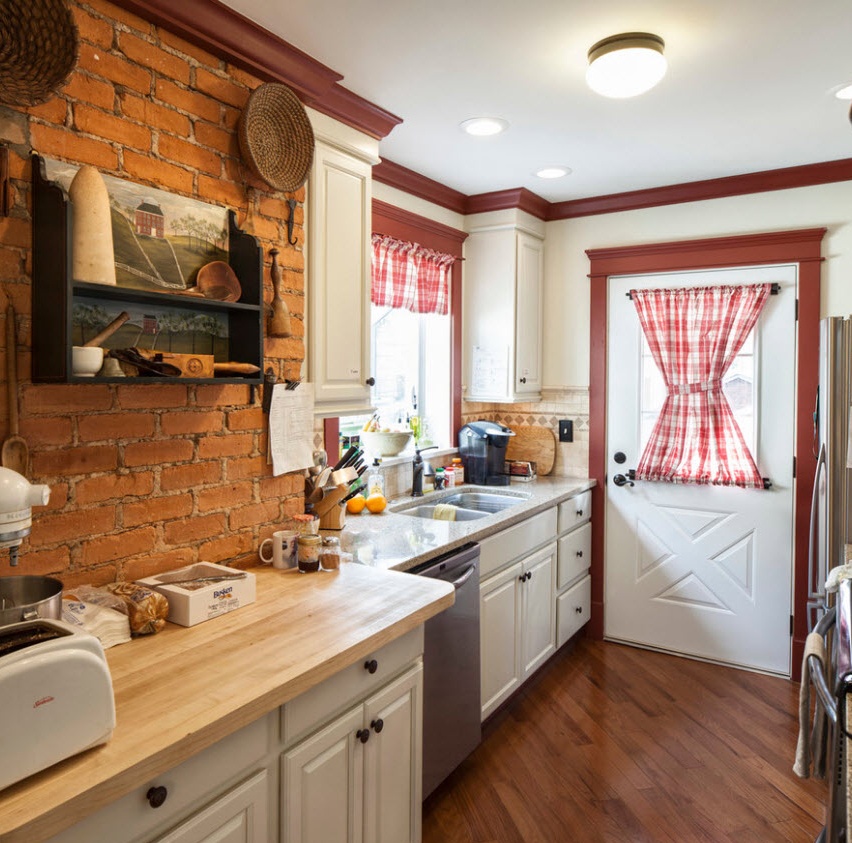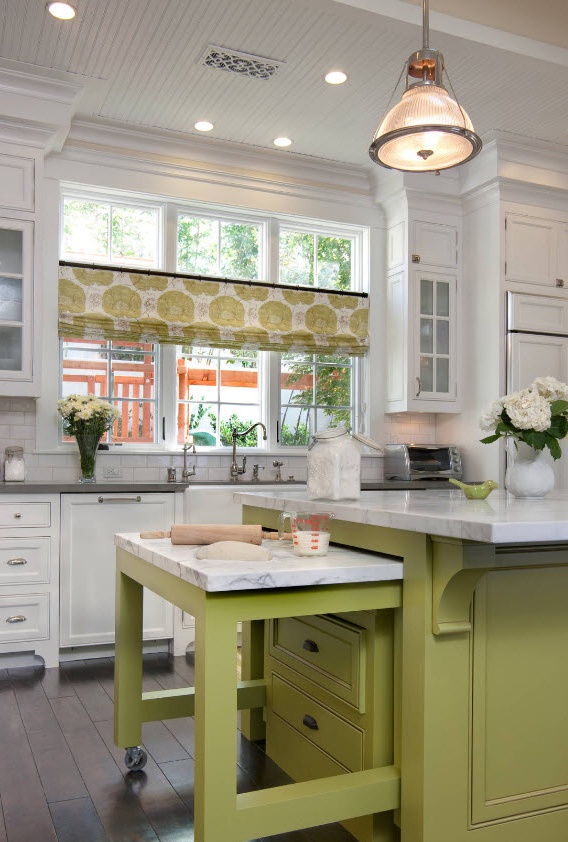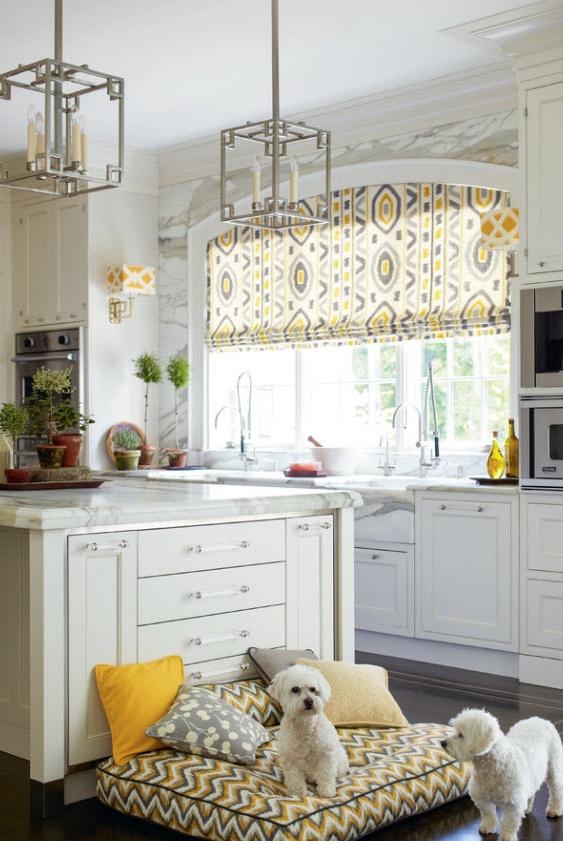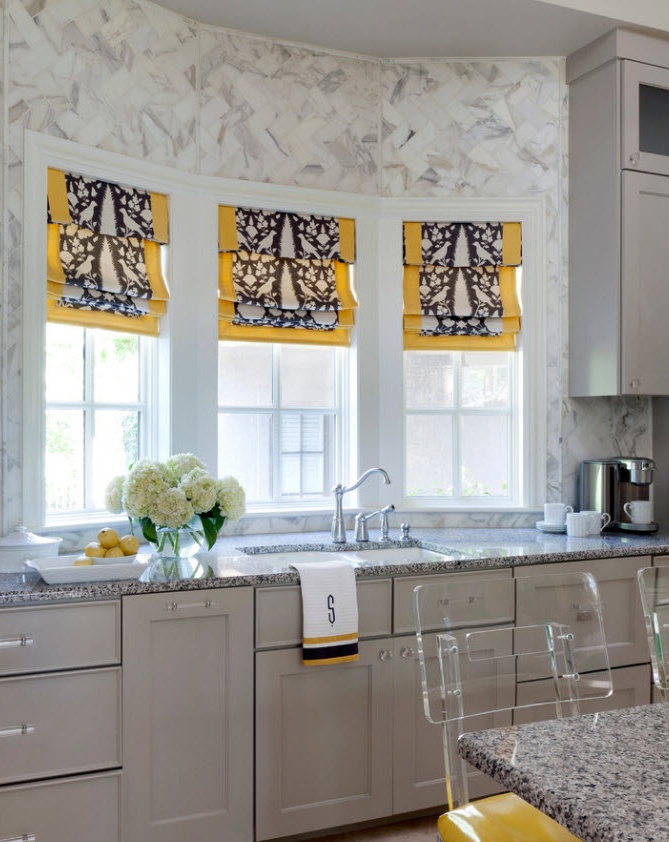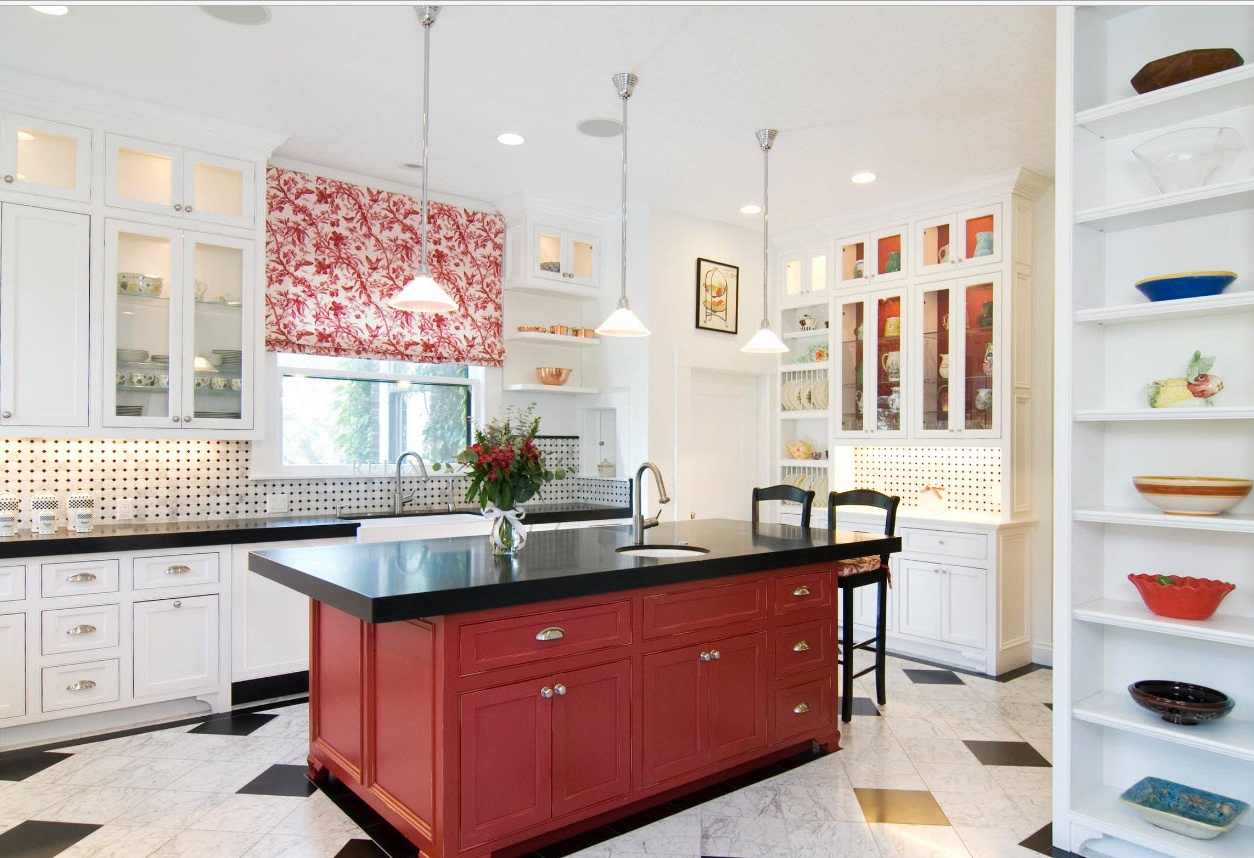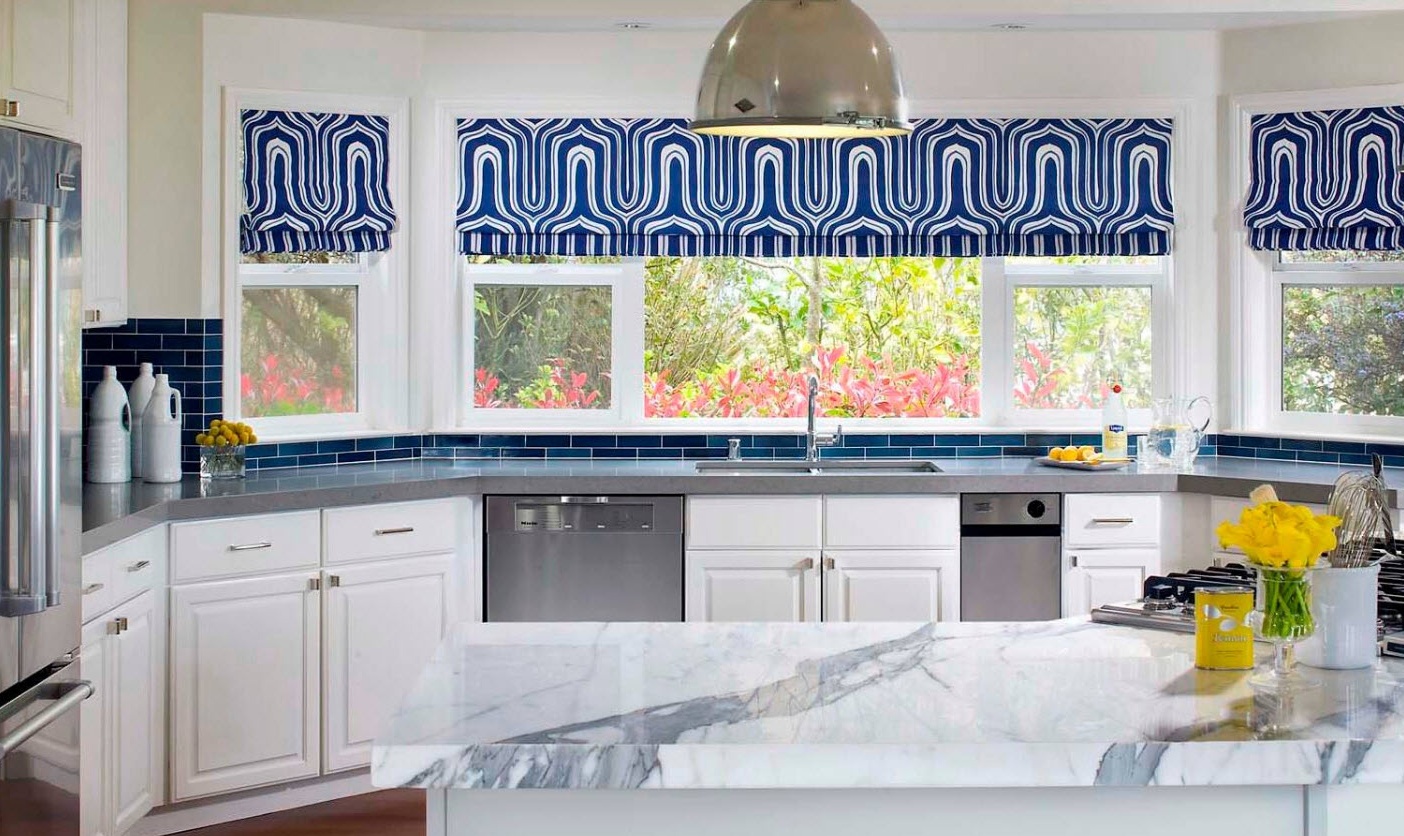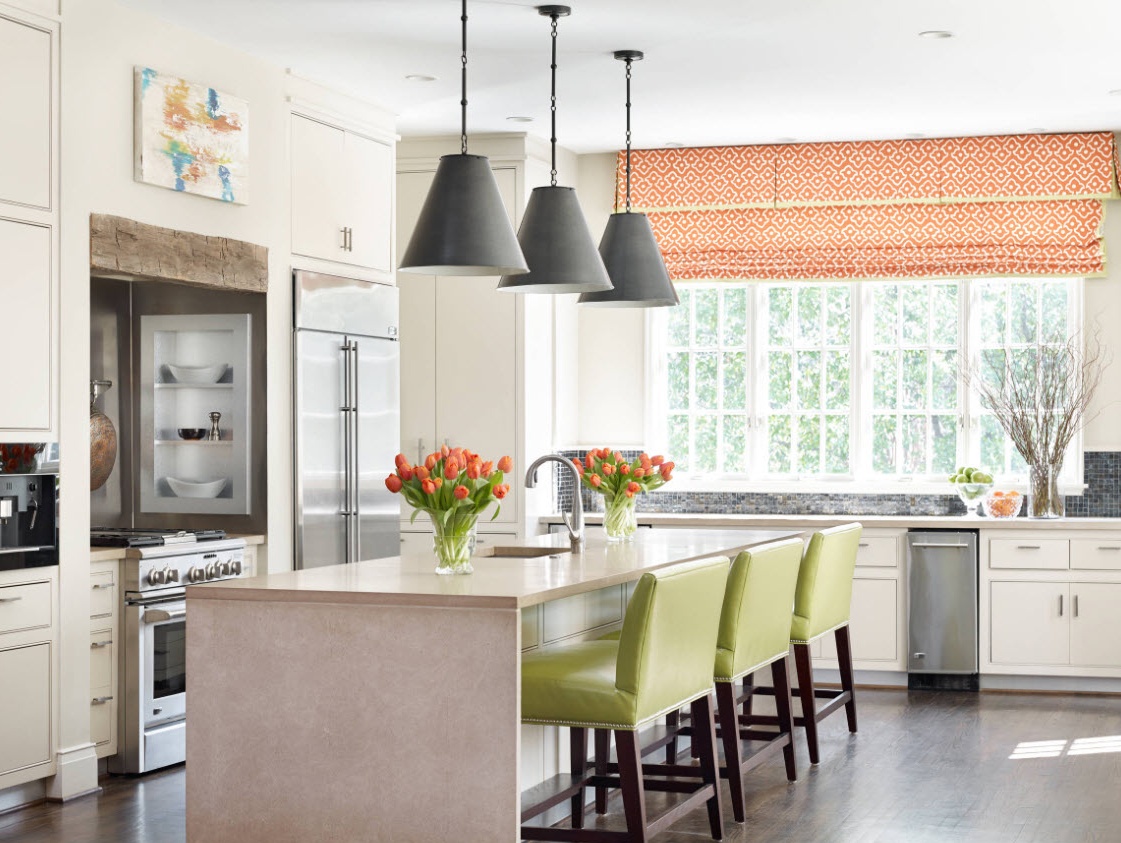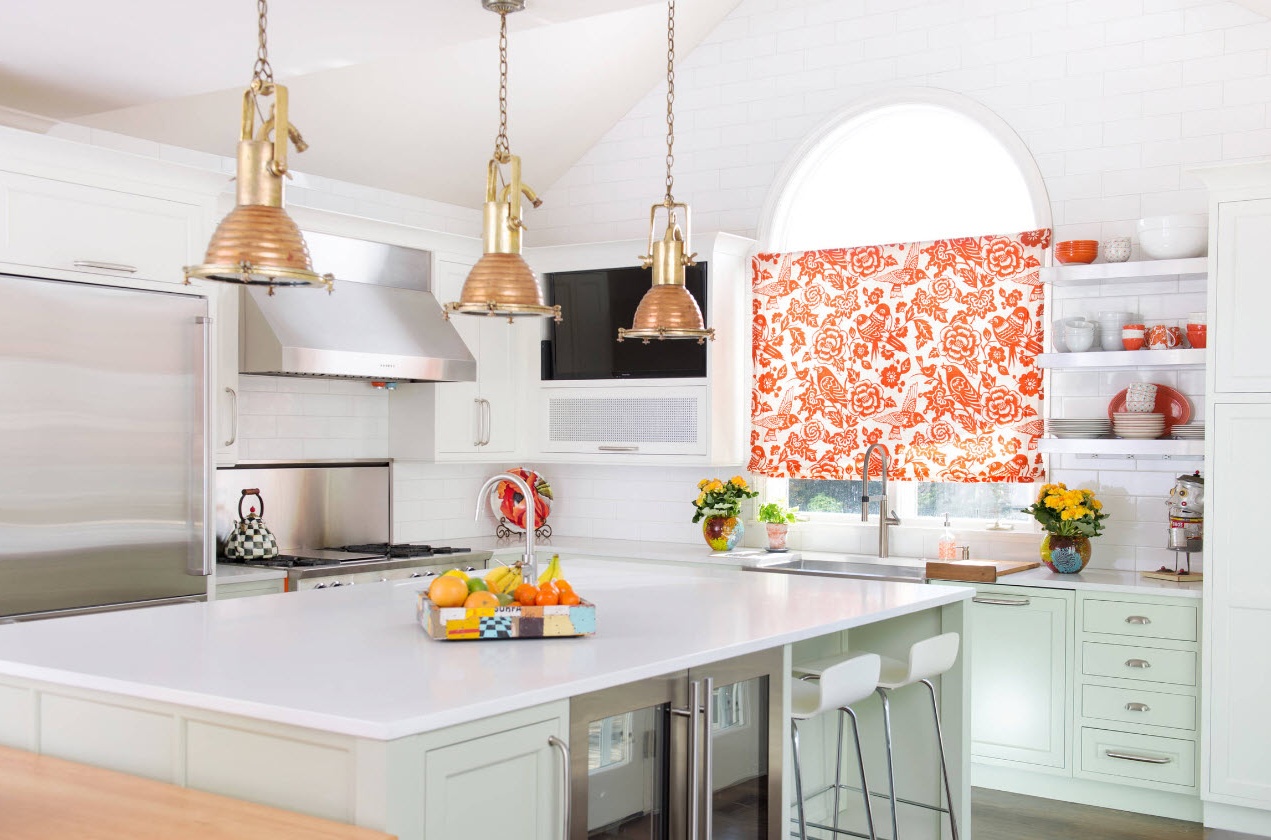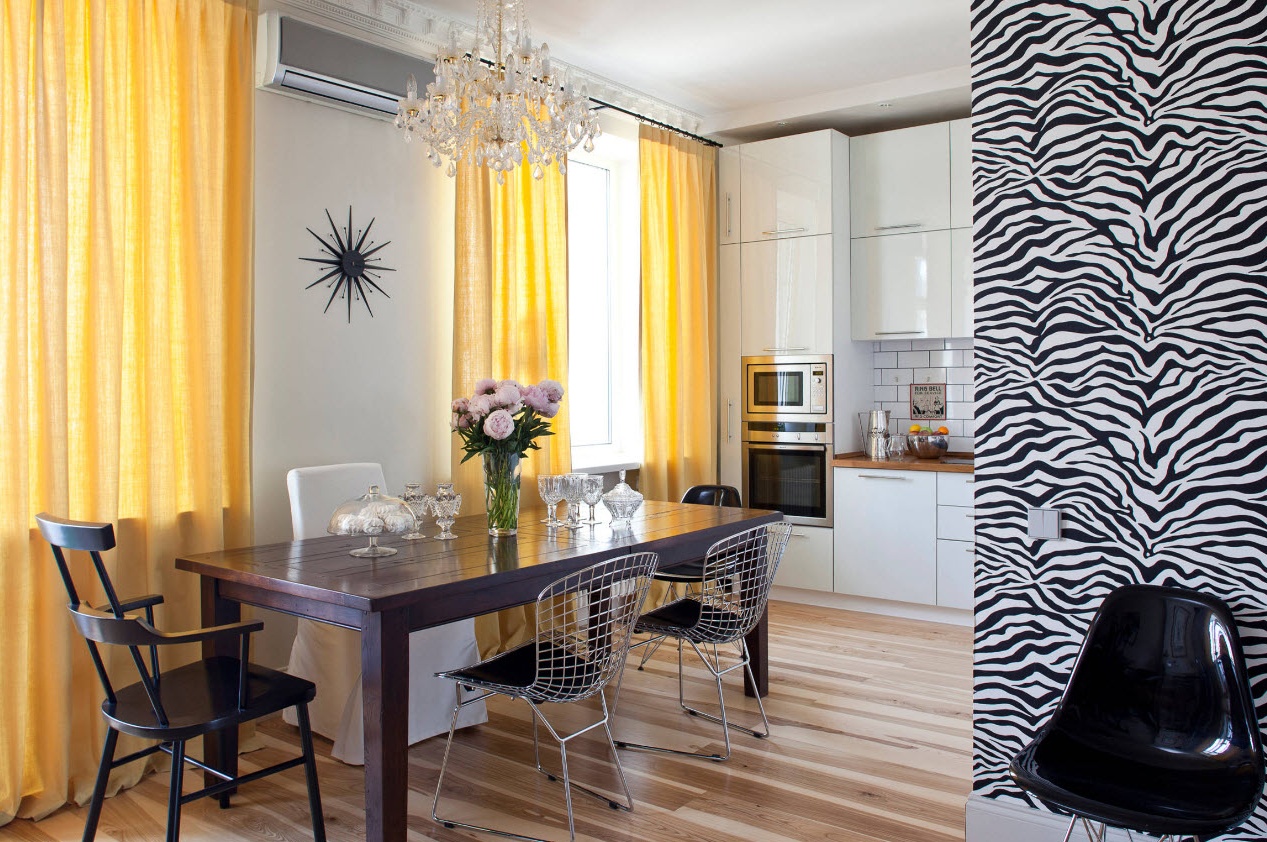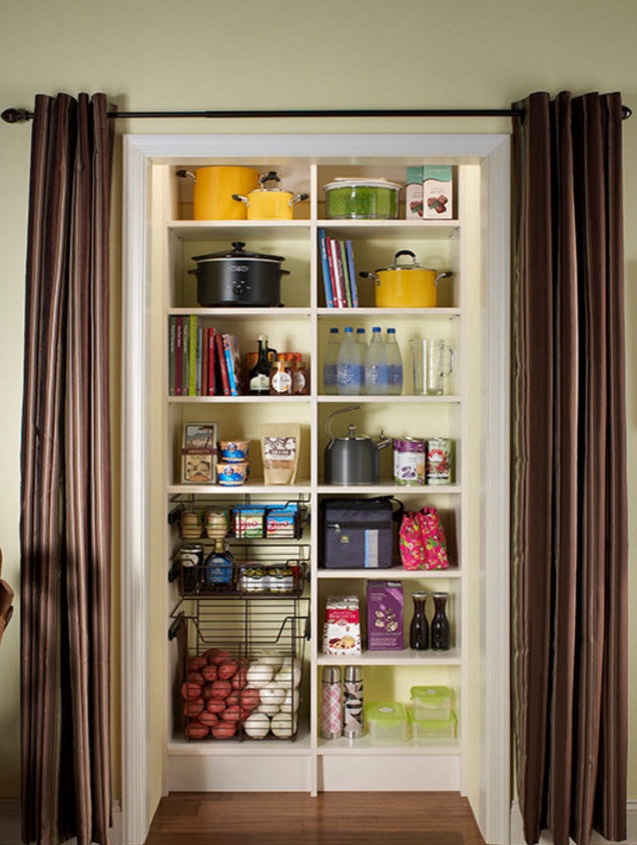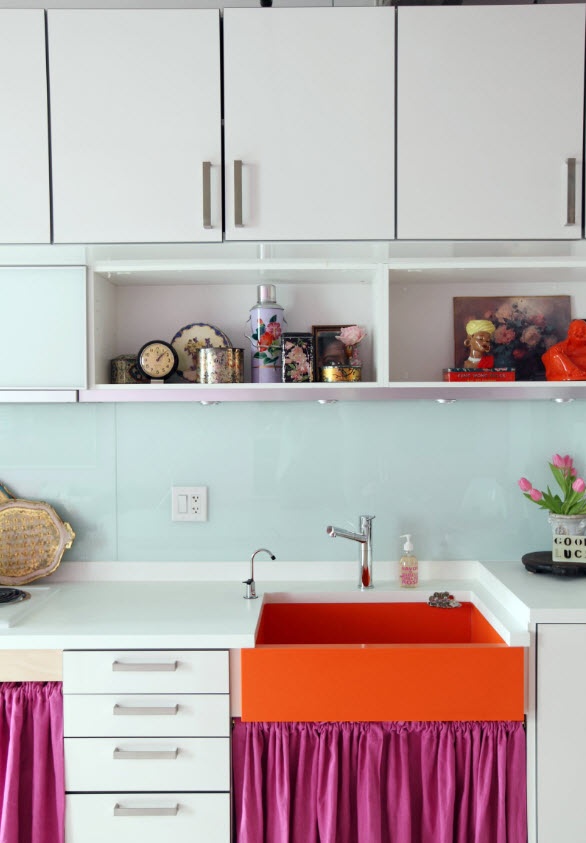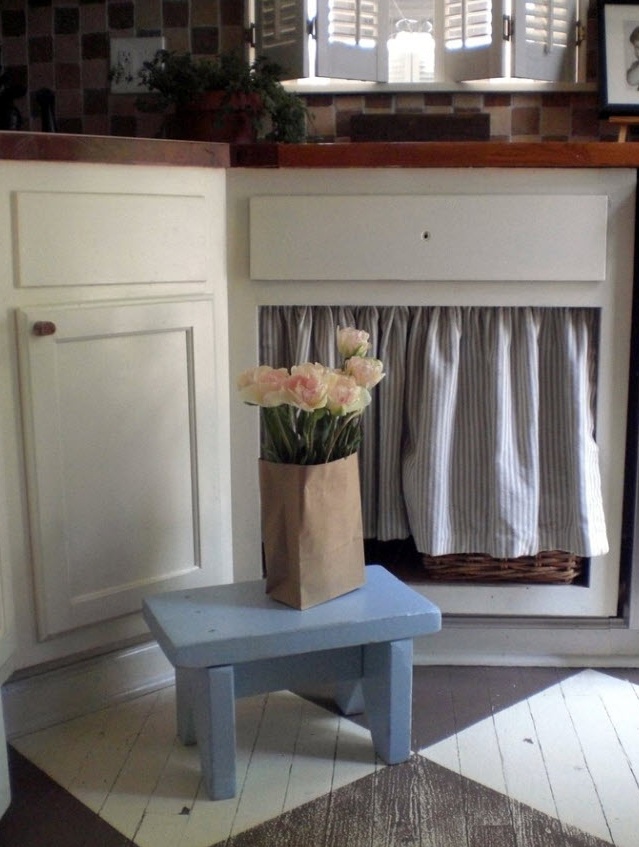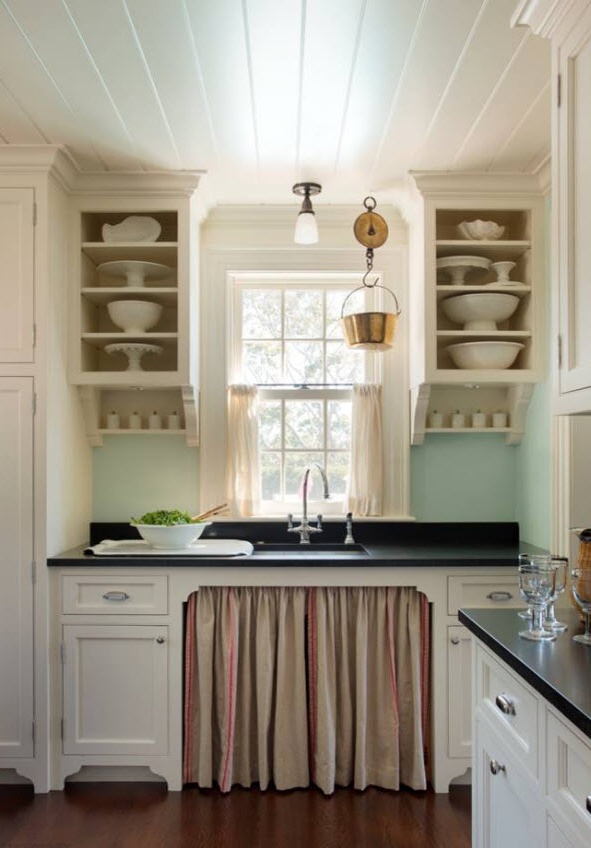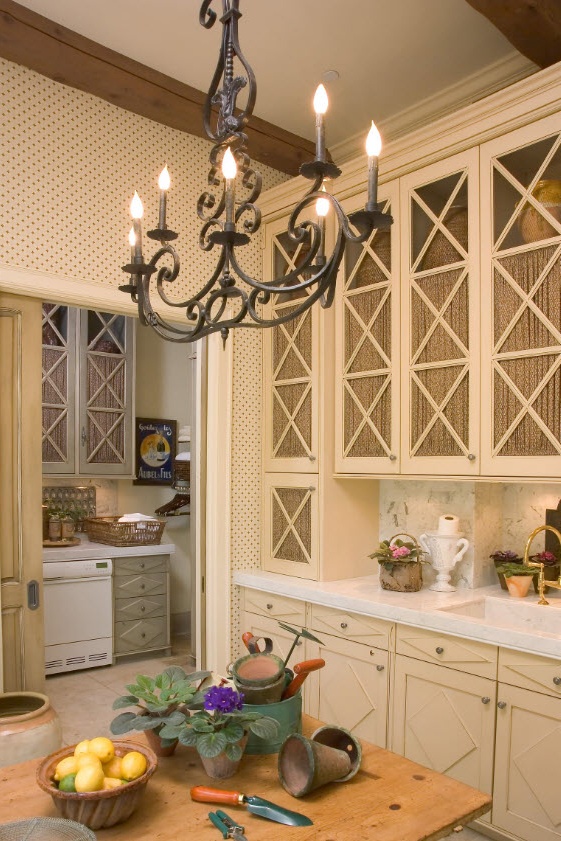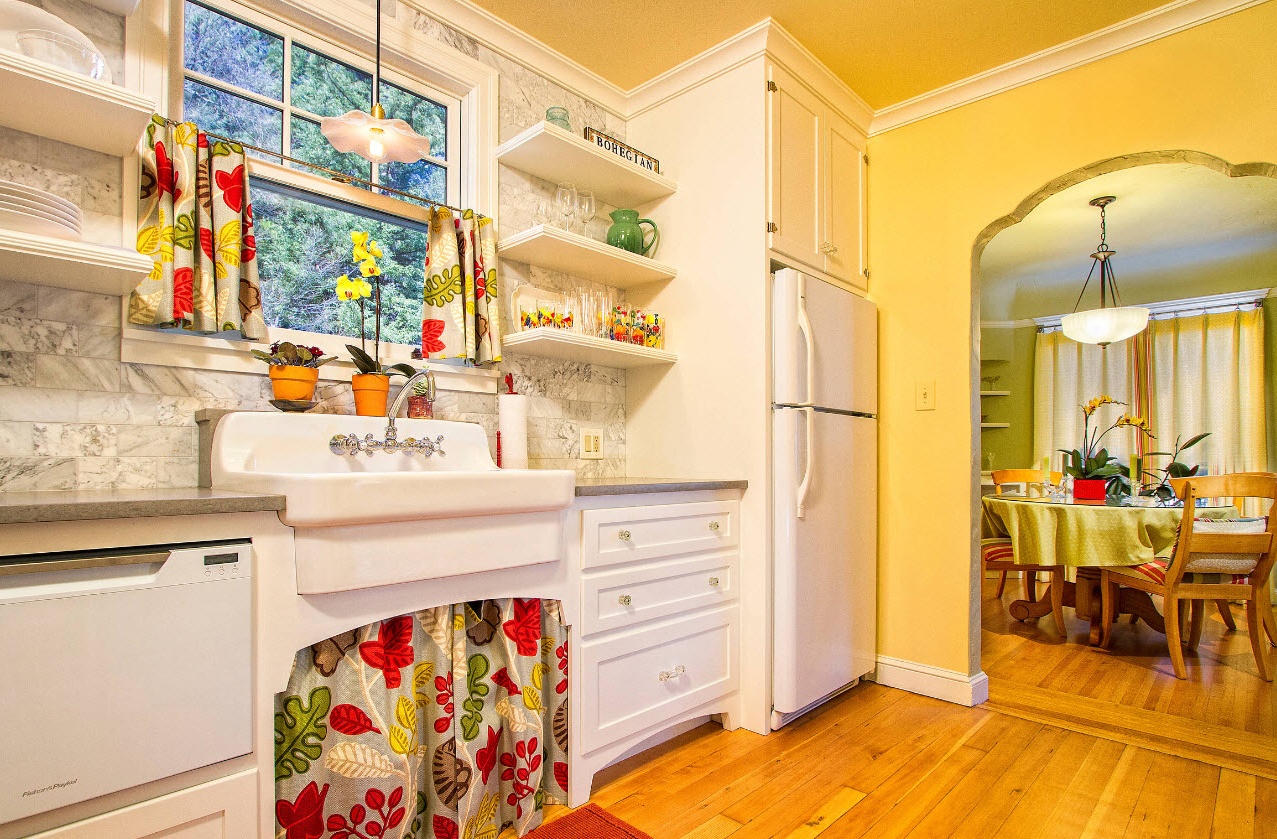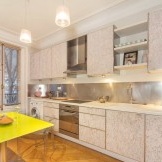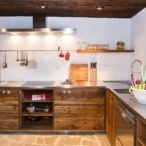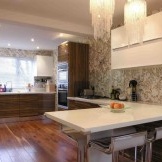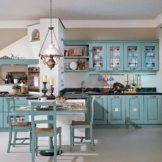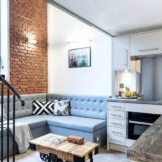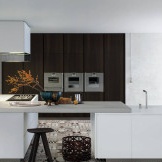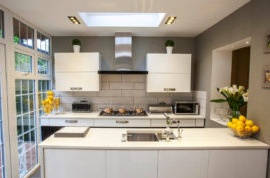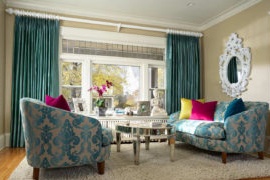Curtains for the kitchen - trends 2018
A nice finishing touch in shaping the kitchen interior is the choice of drapery for windows. Textiles often become the necessary element for creating a truly cozy, relaxing, hospitable atmosphere in which anyone will like not only to cook food and enjoy absorbing it, but also to receive the closest guests and arrange family gatherings. Only at first glance it might seem that the choice of drapery for kitchen windows is as pleasant as quick. It is necessary to determine the type of material, make a color decision, stylistic, take into account the properties of the fabric in use and the possibility of cleaning the sheets, because the kitchen room has its own exceptional microclimate.
Before you start choosing
Modern manufacturers of fabrics and ready-made solutions for window drapery offer us such a wide range of options that it is not difficult to lose your head from the abundance of models, colors and prints. And to order you can make a textile design of kitchen windows of any style. Before you start looking for the perfect option, you must consider the factors that influence the selection of textiles specifically for such a peculiar and multifunctional room, like a kitchen:
- high humidity;
- constant temperature changes;
- the possibility of droplets of hot fat getting on the surface (it is not always possible to get rid of it using a hood);
- the smell of cooking.
Also, at the preparatory stage, it is necessary to outline the range of functions that kitchen curtains will perform:
- Sun protection;
- fencing of the room from prying eyes;
- exclusively decorative function;
- a connecting element between the main "participants in the interior" (harmony in color, texture or manner of execution).
So, to make the perfect choice, you will need to decide on:
- curtain model (execution method, form);
- type of fabric (texture, density, performance);
- color (plain or with print);
- price category (you can find analogues of natural fabrics that differ significantly not only in their properties, but also in cost).
Decide on the model of curtains
The choice of curtain model is mainly determined by the following factors:
- the size of the room;
- dimensions and shape of the window;
- the location of the building relative to the cardinal points;
- stylistic performance of the interior;
- personal preferences of the owners.
Classical (traditional) model
Classic, as you know, is always in fashion. Therefore, the use of two direct paintings as a textile decor for windows will be relevant for many years. If in the bedroom and living room the traditional curtains most often consist of two thick curtains that complement the light tulle (translucent veil), then in the kitchen room you can drape the window with linen and no additions at all.
Traditional curtains can differ not only in the length of the products (to the floor or to the windowsill), but also in the way of fastening:
- on clothespins;
- on loops;
- on the clamps;
- on grommets (from plastic or metal);
- on the ties.
Traditional curtains can often be paired with other models of textile decor for windows. For example, if in the kitchen space there are windows of various modifications, a balcony unit or doors leading to the back patio, then it is logical to use different models of curtains for different window openings (but most often made of the same fabric). Classical curtains are easily combined with rolled, in the style of "cafe", curtains and blinds.
Classic curtains are often combined with bamboo blinds. In this case, the traditional curtain model acts more as a decor, in bamboo paintings serve to protect from the sun and prying eyes.
Small blinds on the grommets can become an adornment of your kitchen window. Plastic or metal rings are a practical way of fastening. Curtains easily move along the cornice. The appearance of the window drapery is at the same time laconic and modern, harmoniously fits into almost any stylistic design of the kitchen.
Curtains
A light curtain is another version of the classic design of a horse in the kitchen space. For sewing curtains can be used:
- tulle;
- organza;
- veil;
- mesh fabric;
- lace;
- Kisei
- any other airy fabric.
Curtains can have a traditional length - from the cornice to the floor, or reach only the windowsill. They can be used as the main element of window decor, or in an ensemble with blinds, roller blinds and other types of curtains.
If you have a spacious kitchen with a panoramic window and a beautiful view behind it, then it is logical to use the maximum amount of sunlight that can penetrate into the room and not block its way with dense textile. A thin translucent tulle would be a great option. Some designers propose to completely leave the window opening without drapery or restrict to a decorative frame.
Roman or roller blinds
Rolled fabric curtains are incredibly popular at the moment. The versatility and laconicism of the design allows this element of drapery to integrate seamlessly into any interior. Roman curtains are ideal for a kitchen room, because most often the windows in the kitchen are medium and small. This model of curtains does not lose its popularity because:
- simple and concise in execution;
- convenient and functional;
- perfectly protects the room from the sun and prying eyes;
- can be made of various types of fabrics (while the consumption of material will be optimal for a particular window);
- It can be combined with other models of curtains, curtains and blinds;
- It can be controlled manually or by electric drive (from the remote control).
According to the method of execution, all Roman curtains can be divided into three groups:
- classic
- cascading;
- frameless.
Classic version the most popular. Such curtains are a flat canvas (most often made of dense fabric), which is collected by uniform horizontal folds when lifting (in the expanded version it looks like a regular fabric rectangle). The fabric is attached to the frame of slats, tubes or plates. Curtains can be plain or with a pattern. Even combined options are often found in modern design projects of kitchen facilities.
Cascading curtains even when fully extended, they appear in the form of a web with evenly distributed horizontal folds. The model looks more elegant than the classic version, but the fabric for its manufacture will require much more.
Frameless Roman Curtains made without rails or plates. The fabric is collected in horizontal folds using ribbons, braid or just a machine stitch. It is this type of fastening of fabric rolled curtains that has become the prototype of the classic version, which is so widely used today. Frameless curtains can be made from any type of fabric, even light, airy.
Cafe-style curtains
Such curtains or curtains could indeed be found in the interior of the cafe - the fabric covers only the bottom of the window (half or third). On the one hand, light enters the window almost unhindered and spreads throughout the room, on the other hand, the space is protected from prying eyes. If your kitchen is located on the ground floor, this method of drapery windows may be a good option. Moreover, the light in the homes of the first level is often not enough, it is covered by trees, shrubs, structures.
Curtains in the style of "cafe" can be made of both dense fabrics, and light, translucent - the weight depends on the functions that you regret to give them.There are also no restrictions in the variations of color performance - monophonic options, with a pattern, decor in the form of braid, brushes, ruffles - it all depends on the design style of the entire kitchen space.
Curtains for decor only
There is another type of drapery for the kitchen window, which is most often used exclusively for decoration. In rare cases, a small piece of fabric, specially fixed in the upper part of the window, is used to mask the flaws in the installation of the window unit or the nuances of decoration. This can be a lambrequin, cascadingly attached to the cornice fabric or just a small piece of textile thrown over the bar.
Choosing a fabric for the kitchen
For practical housewives, sellers in modern stores of ready-made kitchen solutions offer the most practical options - fabrics with special impregnation, which allows them not to absorb odors, repel droplets of fat, dust and dirt, do not fade in the sun. But how beautiful is this drapery? Is it able to bring a touch of warmth to create a truly cozy atmosphere? It’s up to you to decide, especially considering that caring for modern paintings is not easy. We offer fabric options that can be used in kitchen spaces of different sizes, with windows of various modifications and for a master purse of different sizes:
- linen;
- silk;
- polyester;
- tulle;
- organza;
- cotton (chintz).
When choosing a fabric, it is also important not to forget about fire safety. If the window is near a gas stove, it is necessary to minimize the likelihood of a fire. It is better to give preference to natural fabric, which does not flare up at the slightest contact with the flame.
Color scheme for kitchen curtains
The choice of the color of the textile design for the window in the kitchen will depend on the following factors:
- the color scheme of the room - the tone of the walls and facades of the kitchen;
- your desire to make the design of the horse invisible, harmoniously merging into the overall picture of the interior or accent, attracting attention;
- if the curtain fabric is with a pattern, you can duplicate it in the upholstery of chairs or stools (seats and backs), the design of the dining table (tablecloth, walkway, individual rugs or napkins).
Printed Curtains
In the field of manufacturing or purchasing ready-made solutions for kitchen windows, it is not easy to distinguish favorites among the options for coloring, pattern and ornament. Fabric with vertical stripes does not lose its popularity. Thanks to this print, the window visually increases in height, "adding" centimeters to the room itself. If the walls of the kitchen are plain, then the stripes on the curtains can be contrasting in color.
Horizontal stripes help visually increase the width of a small window.
Geometric and abstract prints are also popular. It all depends on what size your kitchen is and in what color scheme it is decorated. In a spacious room there are much more options for maneuver with a large and bright pattern of textile for windows. But even in a small kitchen, you can use fabric with an ornament, a pattern, if the wall decoration is done in a light tone and the execution of the kitchen facades is also not different in brightness.
If you design your kitchen in the country or Provence style, it is with the help of textiles that you can largely convey the main features of the stylistics. A fabric in a small or medium-sized flower will definitely indicate the style of the interior - it is these colors that allow you to bring a cozy and relaxing atmosphere to the design of the kitchen space.
Similarly, the effect can be achieved if you use a print in a cage. For many of our compatriots, checkered fabric is always associated with cafe interiors. But a lot depends on the color scheme and the size of the cell.
The print on the curtains can be used as a connecting element. For example, in a kitchen interior decorated in neutral or light colors, the only bright spot is a kitchen apron, a tablecloth on a dining table or bar stools.If the same bright color is used in window textiles, then the overall picture of the kitchen room becomes more harmonious.
Or you can use the fabric decoration of the kitchen windows as an accent element - the only bright spot on a light (or neutral) background. After all, curtains are much easier to replace than furniture or decoration. You can get a new interior (at least with a different mood) by replacing just one design element.
Curtains not only for windows
Curtains and curtains in the kitchen space can be used not only for drapery windows, but also as a curtain for cabinets (built-in or mobile), pantry, space under the sink, behind glass inserts of kitchen facades and many other corners of the kitchen that the owners would like to hide from eye of guests who may be in the cooking room. Such curtains and curtains can be executed in the same way as drapery for windows, or they can differ in the type of fabric and color scheme - it all depends on what interior items are destined to be accents.

